Integrate HTTP Request with 1000+ apps and services
Unlock HTTP Request’s full potential with n8n, connecting it to similar Development apps and over 1000 other services. Automate productivity workflows by scheduling tasks, managing project timelines, and tracking progress across platforms. Create adaptable and scalable workflows between HTTP Request and your stack. All within a building experience you will love.

Create workflows with HTTP Request integrations
0 integrations
Google Sheets
Gmail
OpenAI
Slack
Telegram
Airtable
Google Drive
Microsoft Excel 365
Notion
Supabase
Discord
Postgres
MySQL
GitHub
Google Calendar
MongoDB
Microsoft SQL
OpenWeatherMap

GraphQL
HubSpot
X (Formerly Twitter)
Mautic
Baserow
Redis
Pushover
SendGrid
Jira Software
ClickUp
Trello
AWS S3
Twilio
Todoist
Pipedrive
Nextcloud
Microsoft Outlook
Mattermost
Facebook Graph API
WooCommerce
NocoDB
Google Docs

S3
Spotify
ActiveCampaign
MQTT
Home Assistant
WhatsApp Business Cloud

Google Contacts

YouTube
RabbitMQ
RocketChat
TheHive
Salesforce
Microsoft Teams
Mailgun

Matrix
Dropbox

Google Cloud Firestore
Mailchimp
Asana
Wordpress

Gotify
Mailjet
Elasticsearch
Google BigQuery
Stripe
Microsoft OneDrive
Monday.com
CoinGecko
Zendesk
APITemplate.io

Shopify

Line
AWS Lambda
Kafka

NASA
GitLab
Brevo
Customer Datastore (n8n training)
Microsoft To Do
Pushbullet
AWS SES
Webflow
Odoo
SeaTable

Phantombuster
Bubble
Google Tasks
AWS DynamoDB
DeepL
Google Analytics
Coda
Zoho CRM

Google Translate
Google Chat
Clockify
Raindrop
Zoom
Snowflake
Cortex
Grist
Dropcontact
Lemlist
Strapi
Bitly
ERPNext
Google Slides
Wise
Google Workspace Admin

Yourls

Philips Hue
Xero
AWS SNS
Freshdesk
UptimeRobot
One Simple API
Ghost
Zulip

Pushcut
QuickBooks Online
Wekan
Customer.io
Zammad
Metabase
Jenkins
PagerDuty
Customer Messenger (n8n training)
urlscan.io

Hacker News
Linear
MailerLite

FileMaker

Sendy
seven
Taiga

Harvest
Mandrill
Mindee
AWS SQS

Keap
Google Cloud Realtime Database
Grafana
Onfleet
Discourse
Strava

Medium
Magento 2

Box

Bannerbear
ConvertKit
HighLevel
ServiceNow
Invoice Ninja

Google Cloud Natural Language

uProc
AWS Transcribe
Help Scout
MessageBird
TimescaleDB
Sentry.io

QuestDB
AWS Textract
Splunk

BambooHR
Segment
Intercom
Google Cloud Storage
PostBin
Vonage
Plivo

Rundeck
Adalo
Clearbit
AWS Comprehend
Google Perspective

Quick Base

SIGNL4

Peekalink

Webex by Cisco

Paddle
Freshservice
DHL
AWS Rekognition
Cockpit
HaloPSA
Google Ads
Oura
Marketstack

Monica CRM

Contentful
Autopilot
MISP
Freshworks CRM
Kitemaker
MSG91

Beeminder
Action Network

Agile CRM
Microsoft Graph Security
Orbit
E-goi
Emelia

Hunter
PostHog

CrateDB

LingvaNex
Affinity

Chargebee
PayPal
Bitwarden

Automizy
AMQP Sender
KoBoToolbox
Demio
GoToWebinar
Mocean

Iterable
AWS Certificate Manager

Twist

SyncroMSP

Salesmate

Disqus
Google Books
Microsoft Dynamics CRM
ProfitWell
SecurityScorecard
Venafi TLS Protect Cloud
Cloudflare
Tapfiliate
Netlify

GetResponse
AWS ELB
CircleCI
Humantic AI

Stackby
Venafi TLS Protect Datacenter
Elastic Security

Spontit
Flow

Twake

Brandfetch

Uplead

Unleashed Software
Drift

TravisCI
Copper

OpenThesaurus
Netscaler ADC
Vero
Storyblok
Mailcheck
Npm
QuickChart
Perplexity
Microsoft Entra ID
Mistral AI
JWT
Azure Storage
Google Gemini Chat Model
LoneScale
Gong
Okta
Jina AI
Google Business Profile
Microsoft SharePoint
TheHive 5
Azure Cosmos DB
Oracle Database
AWS Cognito
Ldap
Airtop
AWS IAM
crowd.dev
DeepSeek Chat Model
Autobound
AssemblyAI
Greip
PDFMonkey
Outscraper
awork
YepCode

Cloudinary
Apify
Oxylabs AI Studio

AlienVault

Carbon Black

Cisco Umbrella
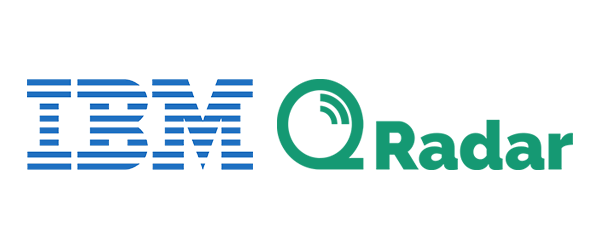
QRadar
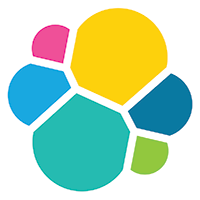
Kibana

ZScaler ZIA
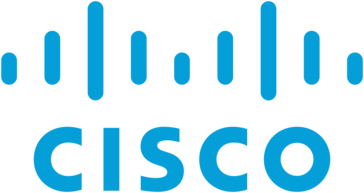
Cisco Secure Endpoint

Cisco Meraki

Fortinet FortiGate

Browse AI

BugReplay

Imperva WAF
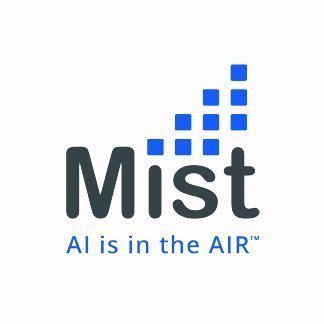
MIST

Sekoia

Miro

LeadBoxer

F5 Big-IP
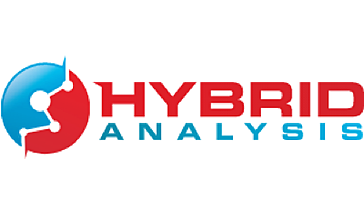
Hybrid Analysis

Mem
Trellix ePO

OpenCTI
Formstack Documents

IdealSpot

Auth0 Management API

Laposta

Microsoft Azure Monitor

Synthesia

SMS Magic

Totango

Myphoner

Radar

Big Data Cloud

ChartMogul
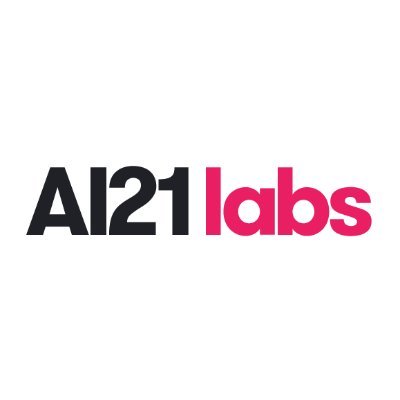
Studio by AI21 Labs

Docparser

Gumroad

Foursquare

Sifter
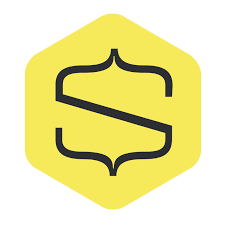
Snipcart
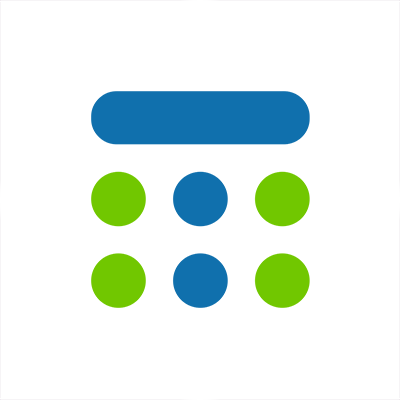
Team Up

Planyo Online Booking
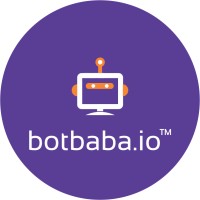
Botbaba

Blockchain Exchange

iAuditor by SafetyCulture
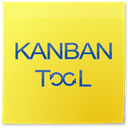
Kanban Tool

Float

Reply.io

Mailmodo

Ritekit
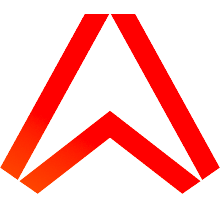
Ably
Product Hunt
Caspio

Reply

Missive
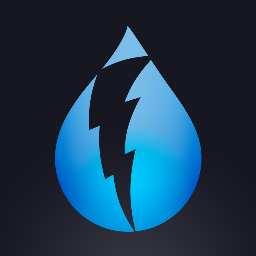
DarkSky API

Marketplacer

ecwid

GoDaddy

Handwrytten

Mixpanel

Confluence

SuiteDash

Nozbe Teams
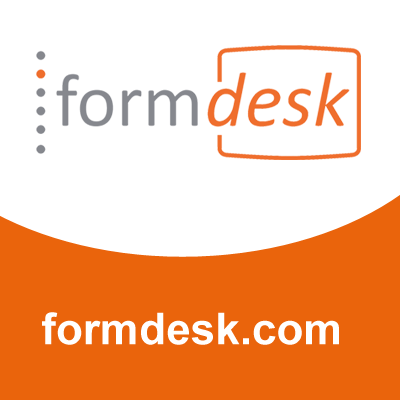
Formdesk

Workast

Canvas

Landbot

Klaviyo

Order Desk

Survicate

CleverReach

VivifyScrum

Helcim

Nusii Proposals

Spondyr

Unisender

Papyrs

Snapdocs


ChargeOver

Verifalia

Chatrace

Tilda

ApiFlash

Daffy

Cloud Convert

Imgur
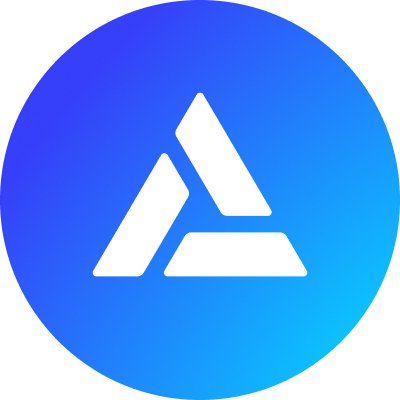
Alchemy

Crisp

AdRoll
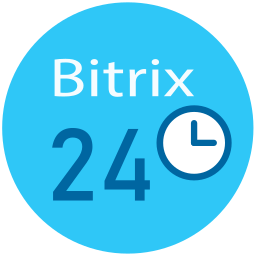
Bitrix24

Mav

Gender API

Zoho Desk

Gitea

ShipStation

Occasion

Docupilot
Headless Testing

RAWG Video Games Database

Linkish

Let's Enhance

Benchmark Email
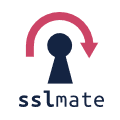
SSLMate — Cert Spotter API

Hugging Face

WuBook RateChecker

Bandwidth

Project Bubble (ProProfs Project)
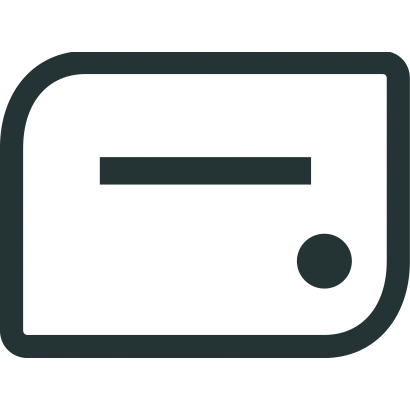
Accredible

TinyURL

Simplero

Gatekeeper

Smaily

Giphy

Miestro
ScrapeNinja

BunnyCDN

WebinarJam

Fluent Support

Harry Potter API

Trengo

SportsData

Dokan
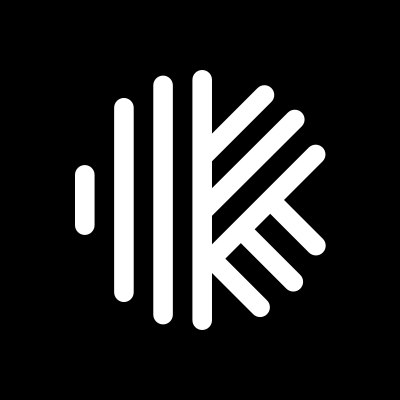
Karbon

Amilia
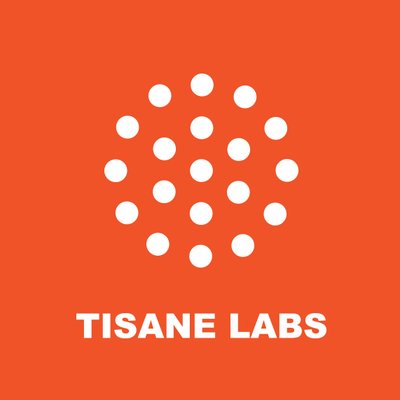
Tisane Labs
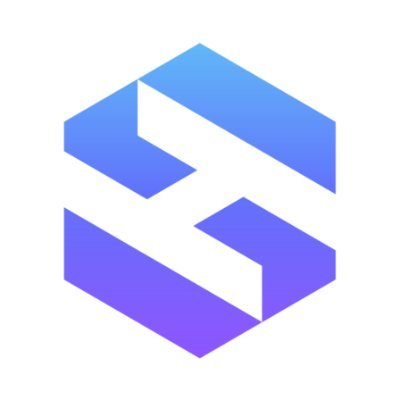
SimpleHash

Linode

Active Trail

Launch27

Teamgate
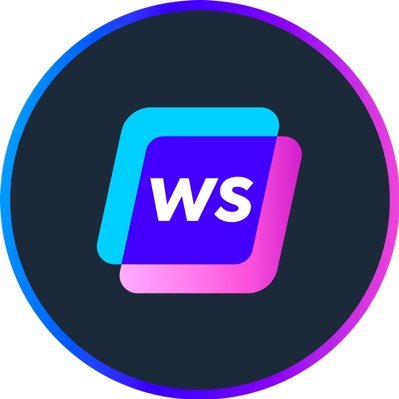
Writesonic

UpKeep

Instabot

Nightfall.ai

Datarobot

InfluxDB Cloud

Botstar

WOXO

IdealPostcodes

ConvertAPI

Teamdeck

Zoho Books

ClickSend SMS

Gravity Forms

Brex

ReCharge
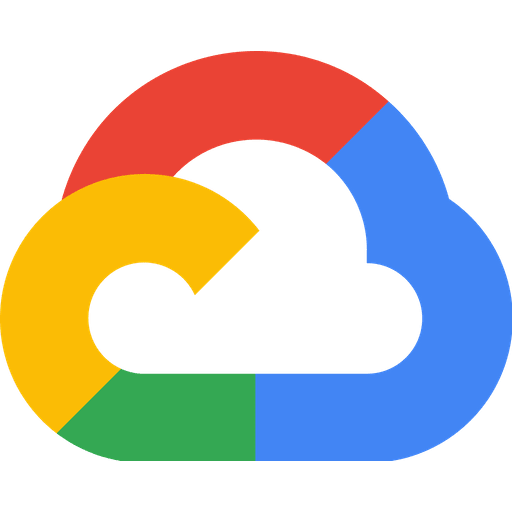
Google Cloud

Mux

Metatext.AI Inference API
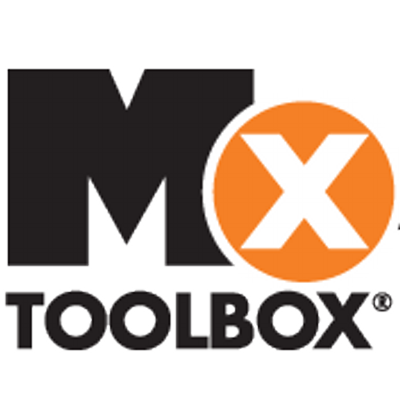
Mx Toolbox

Klazify

Supportivekoala

Thankster

Short.io
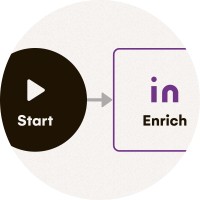
LaGrowthMachine
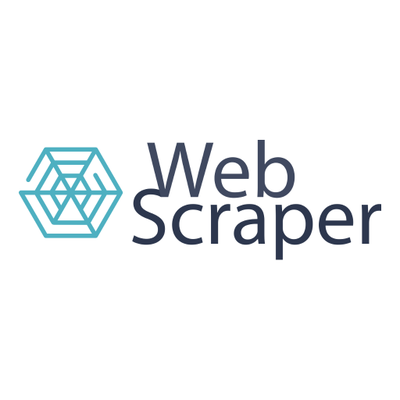
WebScraper.IO
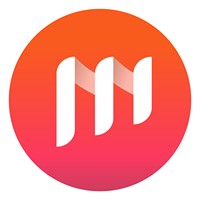
Mailify
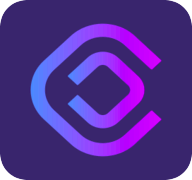
Cloudlayer

Guru

GoCanvas

Dock Certs

DeTrack
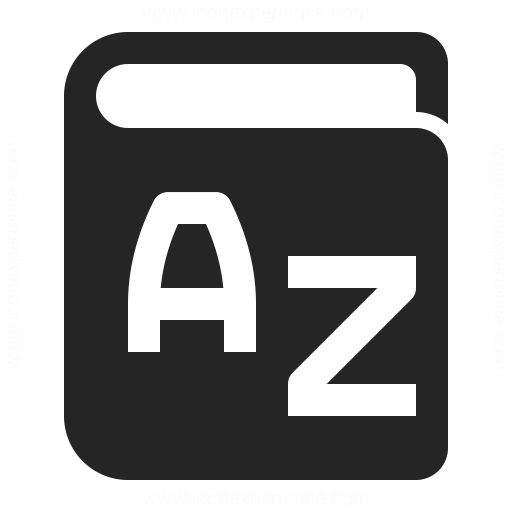
Free Dictionary

quentn
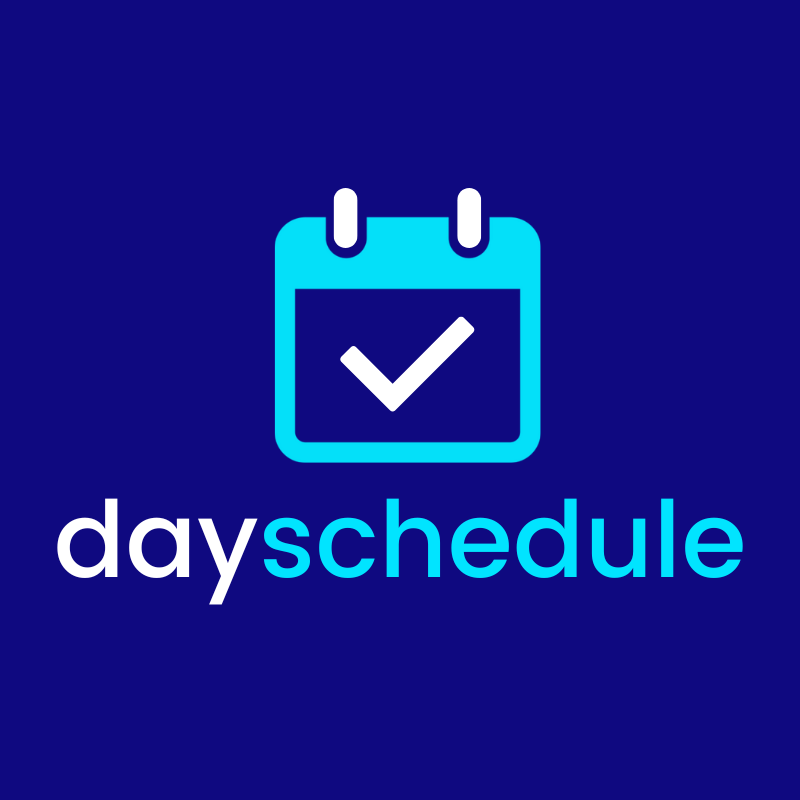
DaySchedule

SurveySparrow

Accelo

Yodiz

ShipHero
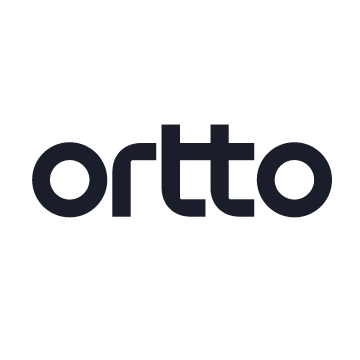
Ortto
3Scribe

Pipefy
Crowdin
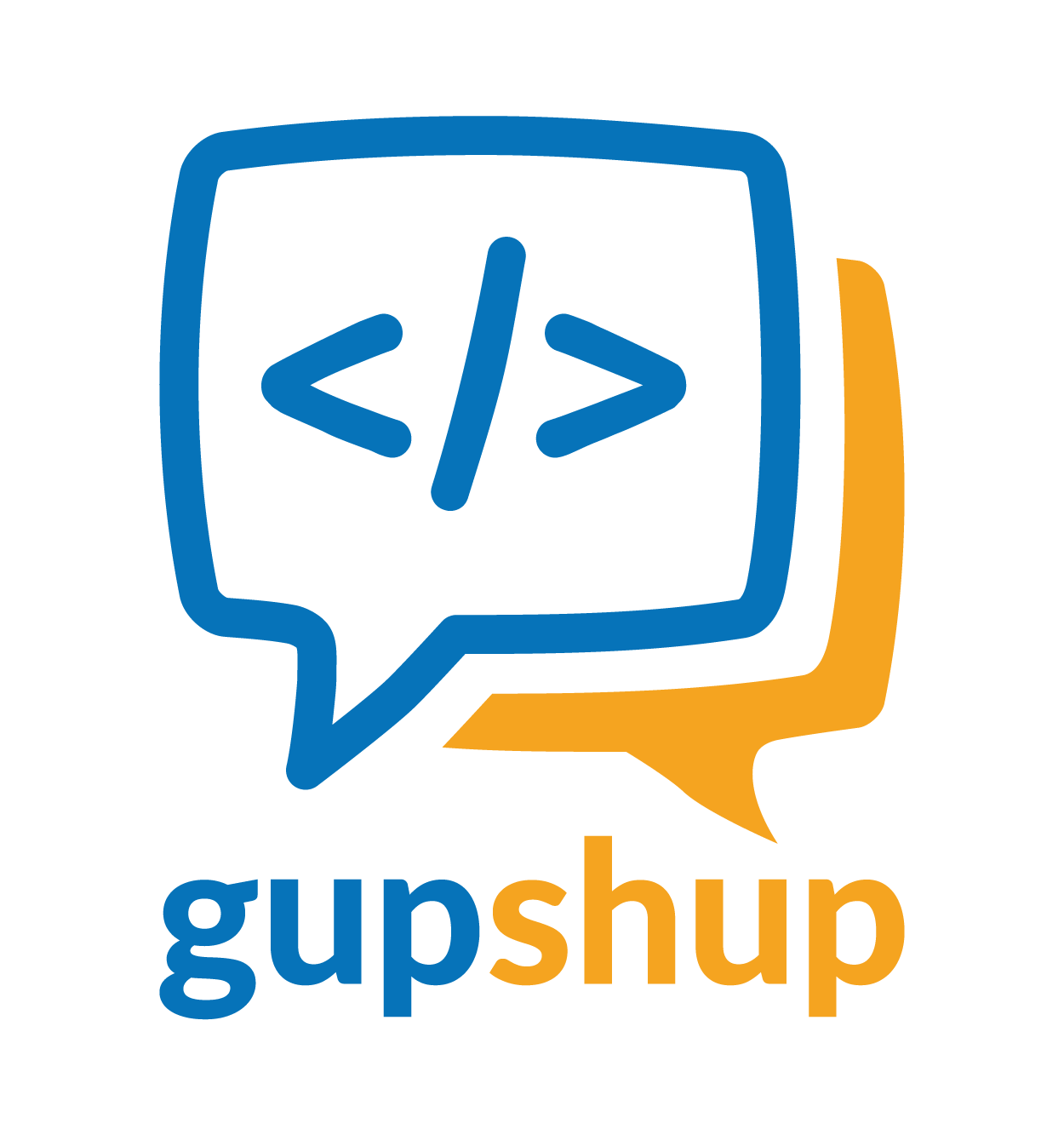
Gupshup

7todos

Badger Maps

TD Ameritrade

WatchSignals

ISN

Corsizio
Mastodon

Forms On Fire

Accuranker

Rewardful

Amazon

Plecto

SimpleTexting

Deepgram

LIME Go

SimpleKPI

Formsite

TurboHire

TalentLMS
Capsule
Envoy

Pirate Weather

Platform.ly

Textgain

Salesmsg

Mews

LiveAgent

College Football Data
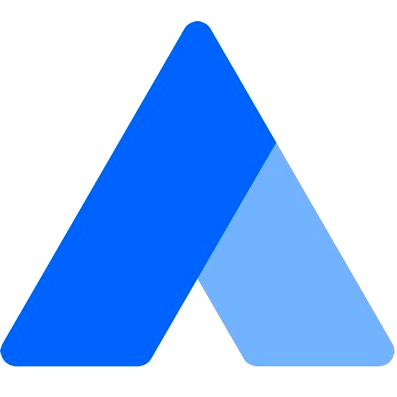
Acquire

KnowBe4

Cloze

PaperForm
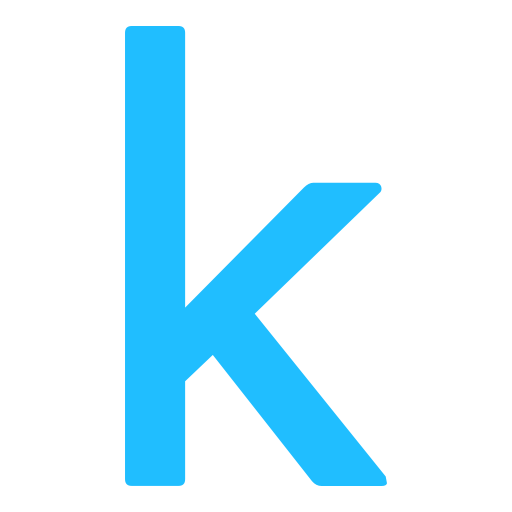
Kaggle

Switchboard

Zonka Feedback

MoonClerk

Copy.ai

Qualaroo

Unbounce

HUB Planner

Sales Simplify

Signaturit

Mailersend

DocsBot AI
Omniconvert

GetScreenshot

Focuster

Esendex

Databox

Sierra Interactive

Breezy HR

Relink - URL Shortener

Thrivecart
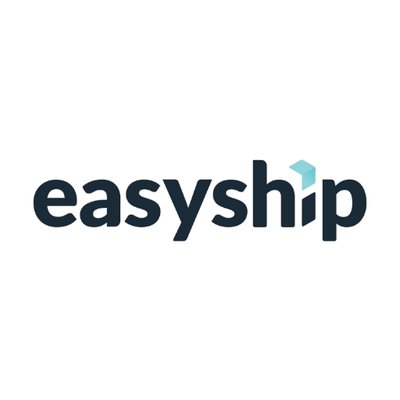
Easyship

HeySummit

AirNow

Planview Leankit
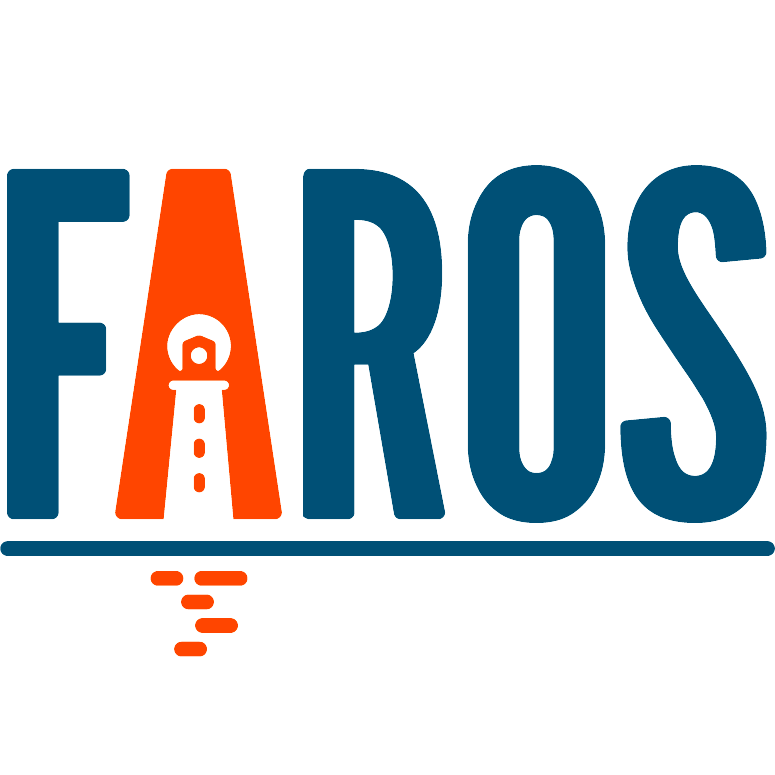
Faros

Lusha

MoonMail

SMS-IT

SwagUp
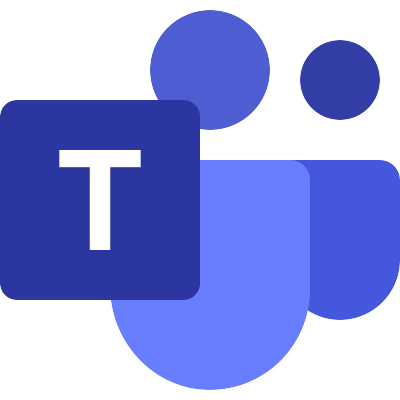
Microsoft Teams Admin

imgbb
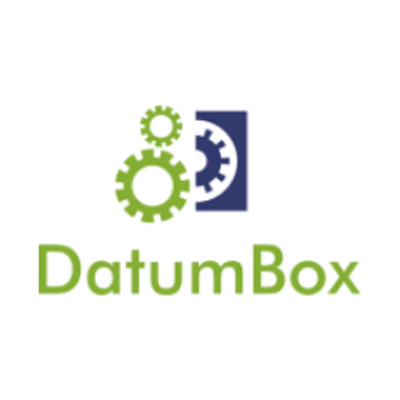
Datumbox

SmartReach

Cisco Webex

Freshping

Chargify
Pivotal Tracker

Fitbit

Marketing Master IO
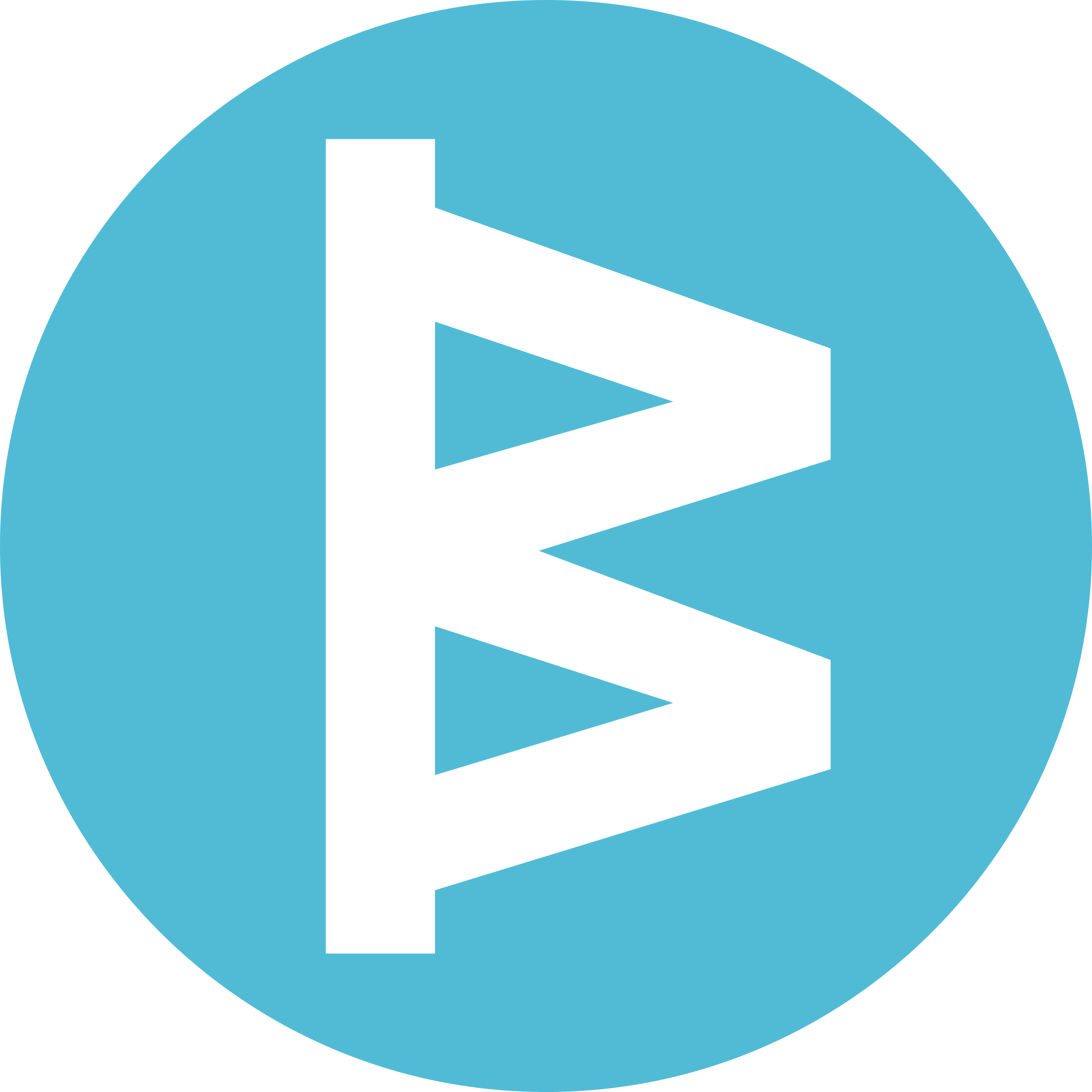
Workboard

Firmao

SnatchBot

RD Station CRM

DigiCert

Sitecreator.io

CalendarHero

Airbrake
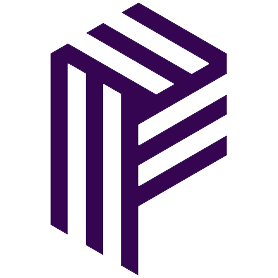
Pusher

Seamless AI

Read AI

Grain

Descript

Fathom

Google AI Studio (Gemini)

HeyGen

TrackVia

Supernormal

Personal AI

Airparser

Dante AI

Relevance AI

TalkNotes

Kraftful

Wonderchat

Browserless

Voicit

Enterpret

AccurAI

CustomerIQ

Google Vertex AI

Botsonic

Superpowered

Blaze

Vowel

Sembly AI

Chatsonic

Predis.ai

My AskAI

echowin

FastBots

The Leap

Nyota

Alphamoon

EmbedAI

Wondercraft

DialZara

Gali

ParsePrompt

Nyckel

Brandblast

Cradl AI

Brain Pod AI

Droxy

OmniMind

Botifier
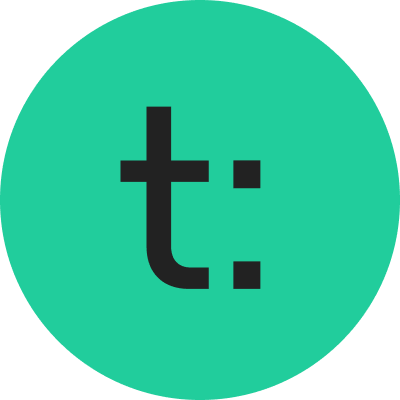
Teachable

Formcarry

ThoughtfulGPT

RoboResponseAI

DocuWriter

Faraday

GPTea

Teknoir

CraftDraft

Convi

Simpleem

RealPhoneValidation

Nuclia

Empsing

Sharly AI

Cloozo

Diddo AI

Knack

Maverick

Google Tables

WizyChat

Salesmaa

bot9

Ninox

AITable.ai

Trevor.io

On2Air

Fusioo

Marcom Robot

InfoLobby

Autom

TiDB Cloud

Clarifai

Vimeo

Pitchly

Solve Data

Sales.Rocks

ApptiveGrid

ScreenshotOne

Passcreator

IndustrySelect

Grid

Persio

IP2Location

LaunchDarkly

HasData

BugHerd

Keygen

Bugpilot

Data Soap

Ipregistry

Gleap

Localazy

ZenRows

TestMonitor

BigML

Lighthouse

BugBug

Ybug

Bugfender

Lokalise

Transifex

Kadoa

Venly

Cryptolens

Alerty

Rootly

KEYZY

BrowserStack

LambdaTest

Chekhub

NMKR

Flotiq

Spike

Evolphin Zoom

Impira

Tuulio

Pulsetic

Relysia

Robolytix

Starton

Diffy

Lucidchart

Phrase

Flagship

Eartho

Dasha

Toket

CloudBoost

Cloud 66

LoginRadius

Jasper

OffAlerts

CloudShare
Luciq (formerly Instabug)

BLOOCK

Cronly

DevCycle

Rollbar

Tierion

Engati

ncScale

TextMagic

BugShot

AbuselPDB
Sellix

Evervault

Reverse Contact

TextKit

Databricks

Eden AI

Growbots

Claude

AltText.ai

PromptHub

IntakeQ

Jama

Adobe

Apiary

Codefresh

Buildkite

TextCortex AI

Prospe AI

The Customer Factor

Timetonic

Clappia

elmah.io

Code Climate

Domo

PractiTest

Botium Box
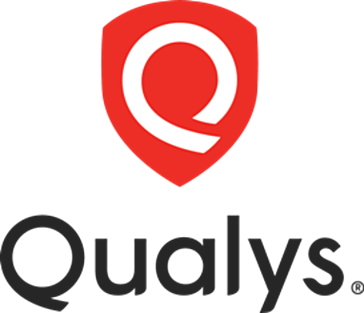
Qualys

Leadpops

Invoiced
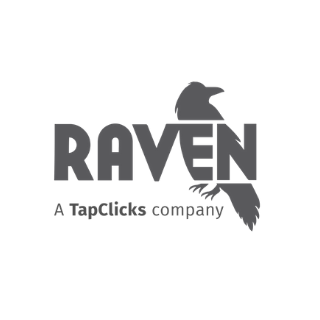
Raven Tools

OPN (formerly Omise)

Nanonets OCR

Recorded Future

Better Proposals

Patreon

CrowdStrike

Shuffler
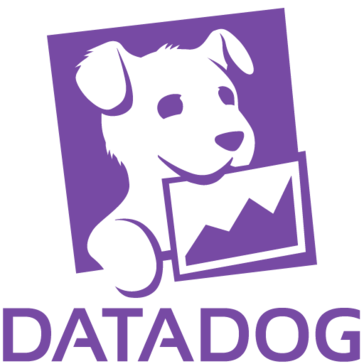
Datadog

Filescan

Iris Dfir

Malcore
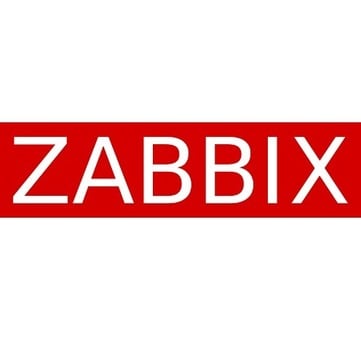
Zabbix

Roboflow

Search And Save
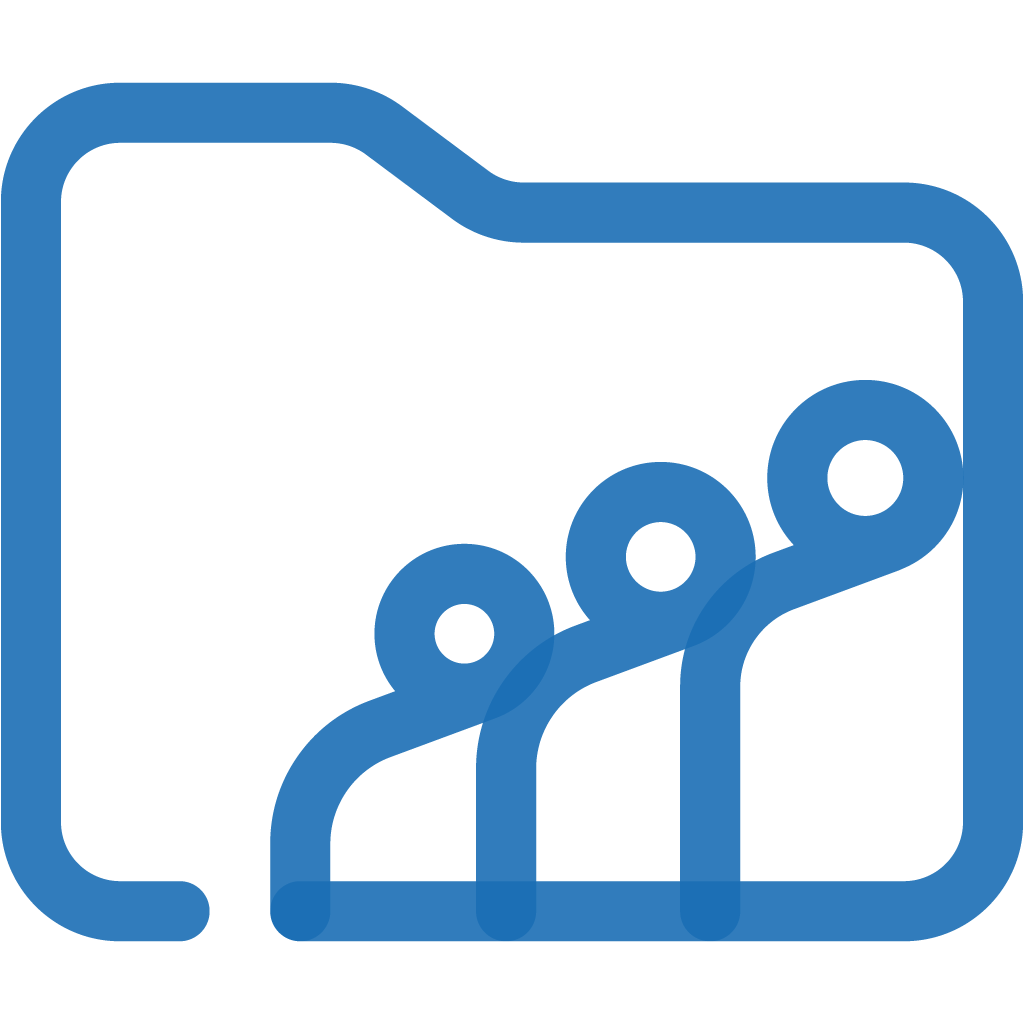
Zoho WorkDrive

Whal3s
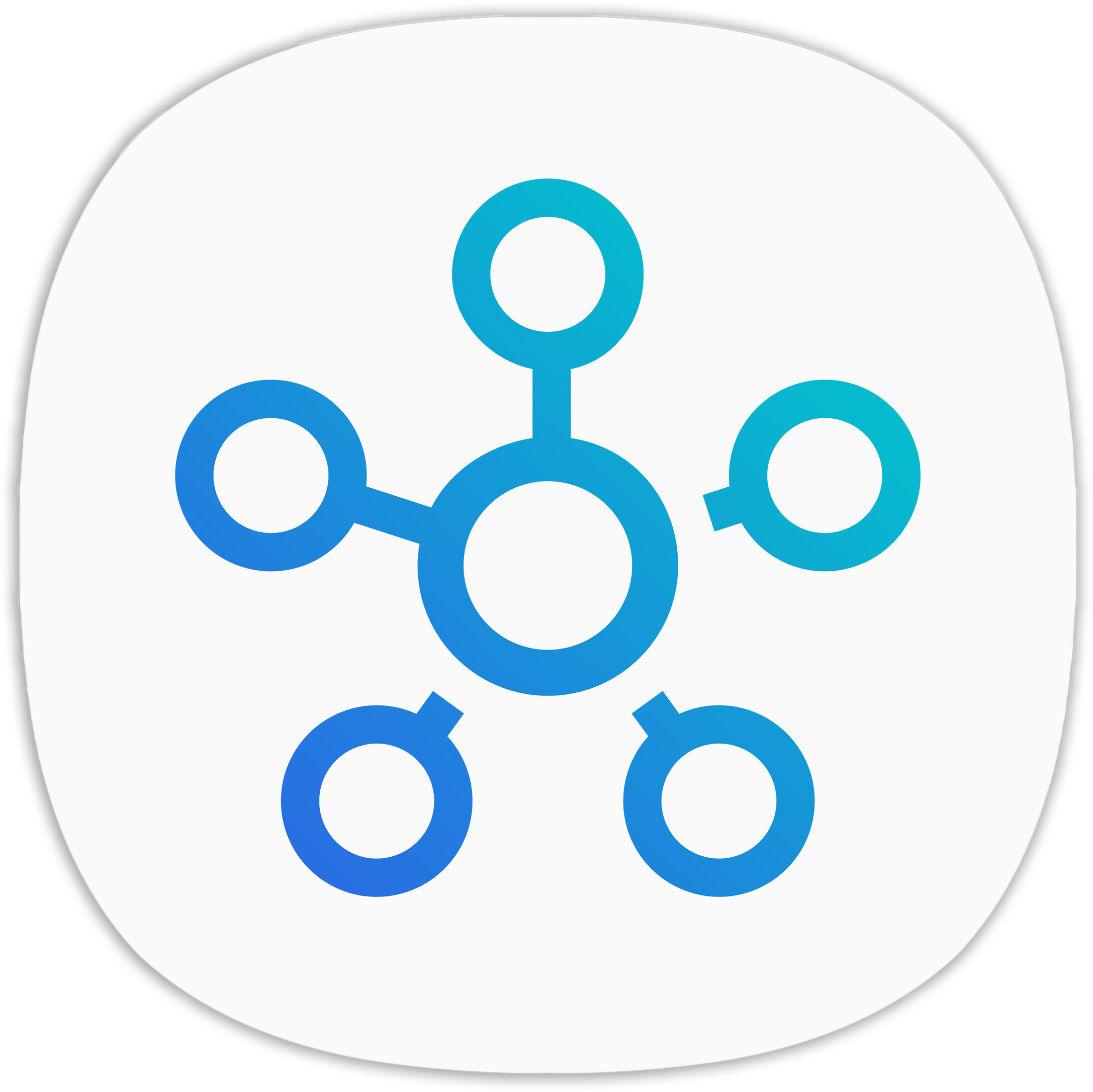
Samsung SmartThings

Syncly

Redash

Microsoft Entra ID (Azure Active Directory)

VirusTotal
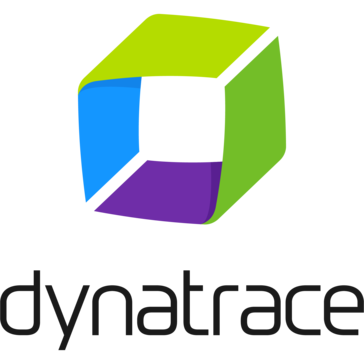
Dynatrace
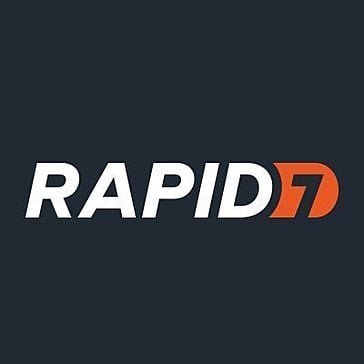
Rapid7 InsightVM

Big Cartel

Abstract

CrowdPower

BrandMentions

Chatbase
Calendly

Chaindesk

Waveline Extract

Draftable
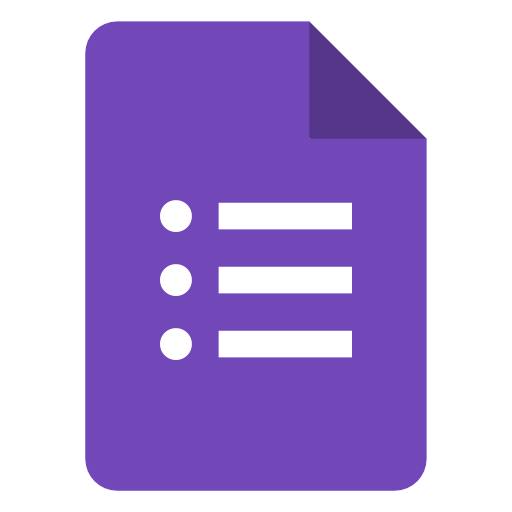
Google Forms

Confluent

Chatling

OCRSpace

Cody

SignRequest

Enormail

IPInfo

Microsoft Dynamics 365 Business Central API

Morph

Pinboard

Paymo

Passslot

Route4Me

Prodia

QuintaDB

Specter

Spydra
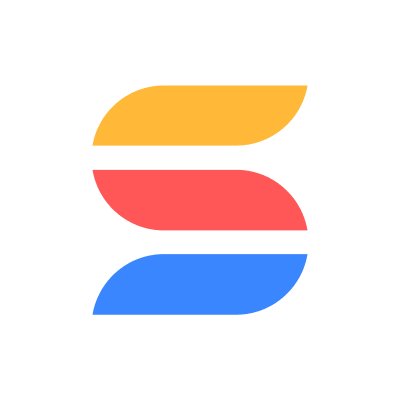
SmartSuite

Statuscake

FullContact

AnnounceKit

UserVoice

Token Metrics

WhatConverts

Woodpecker.co

SiteSpeakAI

Stammer.ai

Xtractly

Hansei

ChatMasters

Libraria

Retable

Omeda

SimpleLocalize

Ycode

Pinata

Crossmint

Ideta

Tuskr

One AI

ConfigCat

UptimeToolbox

ParseHub
Documentation
Popular ways to use the HTTP Request integration
Building Your First WhatsApp Chatbot
Scrape and summarize webpages with AI
✨🤖Automate Multi-Platform Social Media Content Creation with AI
AI agent that can scrape webpages
Generate AI Viral Videos with Seedance and Upload to TikTok, YouTube & Instagram
Generate AI Videos with Google Veo3, Save to Google Drive and Upload to YouTube
Pulling data from services that n8n doesn’t have a pre-built integration for
Fully Automated AI Video Generation & Multi-Platform Publishing
Scrape business emails from Google Maps without the use of any third party APIs
Generate & Auto-post AI Videos to Social Media with Veo3 and Blotato
Build Your First AI Data Analyst Chatbot
Analyze Landing Page with OpenAI and Get Optimization Tips
AI-Powered WhatsApp Chatbot for Text, Voice, Images, and PDF with RAG
Create a Branded AI-Powered Website Chatbot
Generate Leads with Google Maps
Automated Web Scraping: email a CSV, save to Google Sheets & Microsoft Excel
AI-Powered Social Media Content Generator & Publisher
Clone Viral TikToks with AI Avatars & Auto-Post to 9 Platforms using Perplexity & Blotato
AI-Powered WhatsApp Chatbot 🤖📲 for Text, Voice, Images & PDFs with memory 🧠
Create & Upload AI-Generated ASMR YouTube Shorts with Seedance, Fal AI, and GPT-4
Respond to WhatsApp Messages with AI Like a Pro!
Learn n8n Basics in 3 Easy Steps ✨
AI-Powered Short-Form Video Generator with OpenAI, Flux, Kling, and ElevenLabs
Scrape and store data from multiple website pages
Back Up Your n8n Workflows To Github
AI-Powered Multi-Social Media Post Automation: Google Trends & Perplexity AI
OpenAI GPT-3: Company Enrichment from website content
Generate AI Viral Videos with VEO 3 and Upload to TikTok
Generate Instagram Content from Top Trends with AI Image Generation
Flux AI Image Generator
Write a WordPress post with AI (starting from a few keywords)
Personalize marketing emails using customer data and AI
Generate AI viral videos with NanoBanana & VEO3, shared on socials via Blotato
AI Agent To Chat With Files In Supabase Storage
Lead Generation System: Google Maps to Email Scraper with Google Sheets Export
Free AI Image Generator - n8n Automation Workflow with Gemini/ChatGPT
Autonomous AI crawler
Host Your Own AI Deep Research Agent with n8n, Apify and OpenAI o3
Automated Stock Analysis Reports with Technical & News Sentiment using GPT-4o
Telegram AI bot with LangChain nodes
✨🩷Automated Social Media Content Publishing Factory + System Prompt Composition
Build an MCP Server with Google Calendar and Custom Functions
Summarize YouTube Videos from Transcript
Proxmox AI Agent with n8n and Generative AI Integration
AI Youtube Trend Finder Based On Niche
AI Voice Chatbot with ElevenLabs & OpenAI for Customer Service and Restaurants
🔍🛠️Generate SEO-Optimized WordPress Content with AI Powered Perplexity Research
Scrape business leads from Google Maps using OpenAI and Google Sheets
Google Maps Scraper
Hacker News to Video Content
Analyze Any Website with OpenAI And Get On-Page SEO Audit
Scrape recent news about a company before a call
Phishing Analysis - URLScan.io and VirusTotal
🤖 Telegram Messaging Agent for Text/Audio/Images
Ultimate Scraper Workflow for n8n
Automate SEO-Optimized WordPress Posts with AI & Google Sheets
AI Powered Web Scraping with Jina, Google Sheets and OpenAI : the EASY way
AI marketing report (Google Analytics & Ads, Meta Ads), sent via email/Telegram
Automate Content Generator for WordPress with DeepSeek R1
AI-Powered Stock Analysis Assistant with Telegram, Claude & GPT-4O Vision
🤖 AI content generation for Auto Service 🚘 Automate your social media📲!
Upload to Instagram, Tiktok & Youtube from Google Drive
🎓 Learn API Fundamentals with an Interactive Hands-On Tutorial Workflow
Invoice data extraction with LlamaParse and OpenAI
Community Insights using Qdrant, Python and Information Extractor
Automated AI Content Creation & Instagram Publishing from Google Sheets
Automated Job Applications & Status Tracking with LinkedIn, Indeed & Google Sheets
Complete business WhatsApp AI-Powered RAG Chatbot using OpenAI
Create an RSS feed based on a website's content
Publish WordPress Posts to Social Media X, Facebook, LinkedIn, Instagram with AI
HR & IT Helpdesk Chatbot with Audio Transcription
Build a PDF Document RAG System with Mistral OCR, Qdrant and Gemini AI
Parse and Extract Data from Documents/Images with Mistral OCR
AI-Generated LinkedIn Posts with OpenAI, Google Sheets & Email Approval Workflow
Generate Text-to-Speech Using Elevenlabs via API
AI Voice Chat using Webhook, Memory Manager, OpenAI, Google Gemini & ElevenLabs
🐋DeepSeek V3 Chat & R1 Reasoning Quick Start
Automated Content Generation & Publishing - Wordpress
Automate Product Training & Customer Support via WhatsApp, GPT-4 & Google Sheets
🔍 Perplexity Research to HTML: AI-Powered Content Creation
✨ Vision-Based AI Agent Scraper - with Google Sheets, ScrapingBee, and Gemini
Dynamically generate a webpage from user request using OpenAI Structured Output
Working with Excel spreadsheet files (xls & xlsx)
Invoices from Gmail to Drive and Google Sheets
Voice-Based Appointment Booking System with ElevenLabs AI and Cal.com
Building RAG Chatbot for Movie Recommendations with Qdrant and Open AI
Lead Generation Agent
Actioning Your Meeting Next Steps using Transcripts and AI
ChatGPT Automatic Code Review in Gitlab MR
Generating Keywords using Google Autosuggest
Extract text from PDF and image using Vertex AI (Gemini) into CSV
Effortless Email Management with AI-Powered Summarization & Review
Build a Chatbot, Voice and Phone Agent with Voiceflow, Google Calendar and RAG
Publish image & video to multiple social media (X, Instagram, Facebook and more)
Scrape and summarize posts of a news site without RSS feed using AI and save them to a NocoDB
Automated YouTube Video Scheduling & AI Metadata Generation 🎬
🤖 Create a Documentation Expert Bot with RAG, Gemini, and Supabase
Chat with GitHub API Documentation: RAG-Powered Chatbot with Pinecone & OpenAI
Search LinkedIn companies, Score with AI and add them to Google Sheet CRM
Auto-Generate SEO Blog Posts with Perplexity, GPT, Leonardo & WordPress
Generate Youtube Video Metadata (Timestamps, Tags, Description, ...)
Social Media Analysis and Automated Email Generation
WebSecScan: AI-Powered Website Security Auditor
Automate Sales Cold Calling Pipeline with Apify, GPT-4o, and WhatsApp
Auto-create and publish AI social videos with Telegram, GPT-4 and Blotato
Content Farming - : AI-Powered Blog Automation for WordPress
API Schema Extractor
Scrape every url on the web without getting blocked by Anti-Bot technologies with Scrappey
Automate Blog Content Creation with GPT-4, Perplexity & WordPress
Open Deep Research - AI-Powered Autonomous Research Workflow
Host your own Uptime Monitoring with Scheduled Triggers
OpenAI examples: ChatGPT, DALLE-2, Whisper-1 – 5-in-1
AI image generator from text built on fal.ai
Talk to your SQLite database with a LangChain AI Agent 🧠💬
Turn YouTube Videos into Summaries, Transcripts, and Visual Insights
Automate Competitor Research with Exa.ai, Notion and AI Agents
Advanced AI Demo (Presented at AI Developers #14 meetup)
Build Custom Workflows Automatically with GPT-4o, RAG, and Web Search
Automate Blog Creation in Brand Voice with AI
Build an AI Powered Phone Agent 📞🤖 with Retell, Google Calendar and RAG
Automated Workflow for Daily LinkedIn Posts Using Notion
AI-Powered Stock Market Summary Bot
5 Ways to Process Images & PDFs with Gemini AI in n8n
🤖🔍 The Ultimate Free AI-Powered Researcher with Tavily Web Search & Extract
Advanced Telegram Bot, Ticketing System, LiveChat, User Management, Broadcasting
Query Perplexity AI from your n8n workflows
Automate Business Lead Scraping from Apify to Google Sheets with Data Cleaning
LinkedIn Job Search: Auto-Match Resume with AI + Cover Letter & Telegram Alerts
Automated Invoice Processing with Telegram, GPT-4o, OCR and SAP Integration
Backup n8n workflows to Google Drive
Generate Logos and Images with Consistent Visual Styles using Imagen 3.0
Allow your AI to call an API to fetch data
AI Telegram Bot Agent: Smart Assistant & Content Summarizer
Generate & Enrich LinkedIn Leads with Apollo.io, LinkedIn API, Mail.so & GPT-3.5
Google Maps business scraper with contact extraction via Apify and Firecrawl
Export Search Console Results to Google Sheets
Website Content Scraper & SEO Keyword Extractor with GPT-5-mini and Airtable
Auto-Create TikTok Videos with VEED.io AI Avatars, ElevenLabs & GPT-4
Technical stock analysis with Telegram, Airtable and a GPT-powered AI Agent
Download TikTok Videos without Watermarks and Upload to Google Drive
AI Timesheet Generator with Gmail, Calendar & GitHub to Google Sheets
Daily News Digest: Summarize RSS Feeds with OpenAI and Deliver to WhatsApp
Generate AI-Powered LinkedIn Posts with Google Gemini and Gen-Imager
Automate Lead Qualification with RetellAI Phone Agent, OpenAI GPT & Google Sheet
Extract Trends, Auto-Generate Social Content with AI, Reddit, Google & Post
Automated Stock Trading with AI: Integrating Alpaca and Google Sheets
Automate LinkedIn Outreach with Notion and OpenAI
Generate SEO Keyword Search Volume Data using Google API
AI-Powered Information Monitoring with OpenAI, Google Sheets, Jina AI and Slack
AI-powered WooCommerce Support-Agent
✨🔪 Advanced AI Powered Document Parsing & Text Extraction with Llama Parse
Generate video from prompt using Vertex AI Veo 3 and upload to Google Drive
⚡📽️ Ultimate AI-Powered Chatbot for YouTube Summarization & Analysis
Compose reply draft in Gmail with OpenAI Assistant
Create Low-Cost AI Videos with Veo3 Fast and Upload to YouTube & TikTok
Build a Financial Documents Assistant using Qdrant and Mistral.ai
Generate AI Videos from Text with HeyGen and Voice Cloning.
🤖💬 Conversational AI Chatbot with Google Gemini for Text & Image | Telegram
CV Resume PDF Parsing with Multimodal Vision AI
Scrape LinkedIn Job Listings for Hiring Signals & Prospecting with Bright Data
AI-Powered Social Media Amplifier
VEO3 Video Generator with AI Optimization and Google Drive Storage
AI Agent with charts capabilities using OpenAI Structured Output and Quickchart
AI Agent for realtime insights on meetings
🎬 YouTube Shorts Automation Tool 🚀
Build your own CUSTOM API MCP server
Extract Google Trends Keywords & Summarize Articles in Google Sheets
💡🌐 Essential Multipage Website Scraper with Jina.ai
🎨 Interactive Image Editor with FLUX.1 Fill Tool for Inpainting
Extract Instagram Profile Data with Apify and Store in Google Sheets
Generate and Publish Carousels for TikTok and Instagram with GPT-Image-1
Convert YouTube Videos to Shorts with Klap & Auto-Post to Multiple Social Platforms
Convert Image Files (JPG, PNG) to URLs and Reduce File Size for FREE
Generate & Auto-Post Social Videos to Multiple Platforms with GPT-4 and Kling AI
User verification and login using Auth0
Transcribing Bank Statements To Markdown Using Gemini Vision AI
Extract data from resume and create PDF with Gotenberg
Extract & Transform HackerNews Data to Google Docs using Gemini 2.0 Flash
SSL Expiry Alert with SSL-Checker.io
🚀 TikTok Video Automation Tool ✨ – Highly Optimized with OpenAI & Replicate
Visualize your SQL Agent queries with OpenAI and Quickchart.io
LinkedIn Job Finder Automation using Bright Data API & Google Sheets
🤖 Build a Documentation Expert Chatbot with Gemini RAG Pipeline
Extract and process information directly from PDF using Claude and Gemini
AI-Powered Email Automation for Business: Summarize & Respond with RAG
Daily Podcast Summary
Parse Incoming Invoices From Outlook using AI Document Understanding
Crypto Market Alert System with Binance and Telegram Integration
AI Agent to chat with Airtable and analyze data
🌐 Confluence Page AI Chatbot Workflow
Automated Instagram Reels Workflow
Extract & Enrich LinkedIn Comments to Leads with Apify → Google Sheets/CSV
Analyze Email Headers for IP Reputation and Spoofing Detection - Gmail
Binance Spot Trader - Limit & Market Orders via API
Zoom AI Meeting Assistant creates mail summary, ClickUp tasks and follow-up call
Auto-Generate and Post Instagram Reels with Veo3, OpenAI, and Blotato
AI content creation and auto WordPress publishing with Pexels API image workflow
CV Screening with OpenAI
Automated HR Service System with WhatsApp, GPT-4 Classification & Google Workspace
Multiple Websites Monitoring with Notifications including Phone Calls
Track changes of product prices
Generating New Keywords and their Search Volumes using the Google Ads API
Get Google Search Results (SERPs) for SEO Research
Automatic Background Removal for Images in Google Drive
Generate Cinematic Videos from Text Prompts with GPT-4o, Fal.AI Seedance & Audio
Create Animated Stories using GPT-4o-mini, Midjourney, Kling and Creatomate API
Generate Funny AI Videos with Sora 2 and Auto-Publish to TikTok
Automatically Create and Upload YouTube Videos with Quotes in Thai Using FFmpeg
✍️🌄 Your First Wordpress + AI Content Creator - Quick Start
Automated TikTok Video Creation Pipeline with GPT-4o-mini and Sisif.ai
Qualify & Reach Out to B2B Leads with Groq AI, Apollo, Gmail & Sheets
Automate Social Media Content with AI for Instagram, Facebook, LinkedIn & X
Automated Faceless YouTube Video Generator Using Leonardo AI and Creatomate
Easy Image Captioning with Gemini 1.5 Pro
Get your website indexed by Google automatically
Backup your credentials to GitHub
Explore n8n Nodes in a Visual Reference Library
Lead Generation Automate on LinkedIn - Personalisation, Enrichment
Get Qualified Leads in One Click from Apollo to Airtable
Personal Shopper Chatbot for WooCommerce with RAG using Google Drive and openAI
Generate Personalized Sales Emails with LinkedIn Data & Claude 3.7 via OpenRouter
Message on website content changed in Telegram
Daily Newsletter Service using Excel, Outlook and AI
Automate WhatsApp Booking System with GPT-4 Assistant, Cal.com and SMS Reminders
Copy Viral Reels with Gemini AI
Handle pagination in HTTP Requests
Save your workflows into a GitHub repository
Extract And Decode Google News RSS URLs to Clean Article Links
Generate Custom AI Images with OpenAI GPT-Image-1 Model
✨📊Multi-AI Agent Chatbot for Postgres/Supabase DB and QuickCharts + Tool Router
Create new wordpress posts with a featured Image with Airtable
Automated Content Marketing Intelligence with OpenAI, Ahrefs & Multi-platform Integration
Create Social Media Content from Telegram with AI
AI-Powered Research with Jina AI Deep Search
Automated Instagram Comment Replies using Gemini AI with Context-Aware Responses
Scrape Trustpilot Reviews with DeepSeek, Analyze Sentiment with OpenAI
One-Click YouTube Shorts Generator with Leonardo AI, GPT and ElevenLabs
Extract Invoice Data from Google Drive to Sheets with Mistral OCR and Gemini
WordPress - AI Chatbot to enhance user experience - with Supabase and OpenAI
From Google Drive to Instagram, TikTok & YouTube with AI Descriptions & Airtable Tracking
Lead Workflow: Yelp & Trustpilot Scraping + OpenAI Analysis via BrightData
Monitor competitors' websites for changes with OpenAI and Firecrawl
Automatic monitoring of multiple URLs with downtime alerts
Backup your workflows to GitHub
Handling Job Application Submissions with AI and n8n Forms
Enrich Linkedin Profiles from Google Sheets via RapidAPI
Convert text to speech with OpenAI
Amazon Product Search Scraper with BrightData, GPT-4, and Google Sheets
3D Product Video Generator from 2D Image for E-Commerce Stores
Generate & Publish SEO-Optimized WordPress Blog Posts with AI
Automate YouTube Uploads with AI-Generated Metadata from Google Drive
🎨 AI Design Team - Generate and Review AI Images with Ideogram and OpenAI
Auto-Publish Social Videos to 9 Platforms via Google Sheets and Blotato
AI Video Generator with Google Veo3 API (Veo 3 Fast)
Weekly Shodan Query - Report Accidents
Effortless Job Hunting: Let this Automation Find Your Next Role
AI Agent for project management and meetings with Airtable and Fireflies
Build a Weekly AI Trend Alerter with arXiv and Weaviate
Monitor Data Breaches in Real-time with Have I Been Pwned
Convert image to text using GROQ LLaVA V1.5 7B
Pattern for Parallel Sub-Workflow Execution Followed by Wait-For-All Loop
Convert HTML to PDF using ConvertAPI
Automate Sales Meeting Prep with AI & APIFY Sent To WhatsApp
Download a file and upload it to an FTP Server
Translate audio using AI
Demo Workflow - How to use workflowStaticData()
AI-Powered Product Research & SEO Content Automation
Extract Business Leads from Google Maps with Dumpling AI to Google Sheets
Parse PDF with LlamaParse and save to Airtable
🤖 Advanced Slackbot with n8n
Automated video creation using Google Veo3 and n8n workflow
Add text to a downloaded image
Summarize social media activity of a company before a call
Extract emails from website HTMLs
Automated PR Code Reviews with GitHub, GPT-4, and Google Sheets Best Practices
GitLab Merge Request Review & Risk Analysis with Claude/GPT AI
Get CSV from URL and convert to Excel
Build a Tax Code Assistant with Qdrant, Mistral.ai and OpenAI
Create, add an attachment, and send a draft using Microsoft Outlook
Create a Multi-Modal Telegram Support Bot with GPT-4 and Supabase RAG
Real Estate Intelligence Tracker with Bright Data & OpenAI
Share YouTube Videos with AI Summaries on Discord
Telegram Bot with Supabase memory and OpenAI assistant integration
High-Level Service Page SEO Blueprint Report Generator
Enrich FAQ sections on your website pages at scale with AI
Automate Instagram Content Discovery & Repurposing w/ Apify, GPT-4o & Perplexity
Automated Job Hunter: Upwork Opportunity Aggregator & AI-Powered Notifier
AI YouTube Analytics Agent: Comment Analyzer & Insights Reporter
Perform speech-to-text on recorded audio clips using Wit.ai
📈 Receive Daily Market News from FT.com to your Microsoft outlook inbox
Backup workflows to GitHub
Automate Sales for Digital Products & SaaS with AI (GPT-4o)
Push JSON data into an App or to Spreadsheet file
Voiceflow Demo Support Chatbot
Narrating over a Video using Multimodal AI
Turn Google Sheets Ideas into AI Videos with GPT-4o and Fal.AI Veo 3
Recognize invoices / receipts from Google Drive and put them into Google Sheets
Line Message API : Push Message & Reply
URL and IP lookups through Greynoise and VirusTotal
Flux Dev Image Generation (Fal.ai) to Google Drive
Enrich Company Data from Google Sheet with OpenAI Agent and ScrapingBee
Stock Market Technical Analysis with GPT-4o and TradingView for Telegram
Slack AI Chatbot for business team with RAG, Claude 3.7 Sonnet and Google Drive
Multilanguage Telegram bot
LinkedIn Content Creator System
One-way sync between Telegram, Notion, Google Drive, and Google Sheets
Automatic Youtube Shorts Generator
AI Agent to chat with you Search Console Data, using OpenAI and Postgres
Automate & Publish Video Ad Campaigns with NanoBanana, Seedream, GPT-4o, Veo 3
Generate 9:16 Images from Content and Brand Guidelines
Real Estate Lead Generation with BatchData Skip Tracing & CRM Integration
Scrape Latest Github Trending Repositories
Analyze Crypto Market with CoinGecko: Volatility Metrics & Investment Signals
Create Viral Ads with AI: NanoBanana & publish on socials via upload-post
AI Agent To Chat With Files In Supabase Storage and Google Drive
Google Search Console and Analytics Analysis with AI Optimizations
Analyze & Sort Suspicious Email Contents with ChatGPT
Download and post an image on LinkedIn
Firecrawl AI-Powered Market Intelligence Bot: Automated News Insights Delivery
Turn Emails into AI-Enhanced Tasks in Notion (Multi-User Support) with Gmail, Airtable and Softr
Automate PDF Image Extraction & Analysis with GPT-4o and Google Drive
Receive updates from Telegram and send an image
Automate AI News Videos to Social Media with GPT-4o & HeyGen and Postiz
Import JSON data into Google Sheets and CSV file
Auto-Publish YouTube Videos to Facebook & Instagram with AI-Generated Captions
Generate & Publish SEO Articles with Claude AI, Webflow & Image Generation
Daily Financial News Summary with Ollama LLM - Automated Email Report
Auto-Generate Meeting Attendee Research with GPT-4o, Google Calendar, and Gmail
Stock Market Daily Digest with Bright Data Scraping & Gemini AI Email Reports
Build Your Own Image Search Using AI Object Detection, CDN and ElasticSearch
Realtime Notion Todoist 2-way Sync with Redis
Automate Audio/Video Transcription in Any Language with the New ElevenLabs Model
Authenticate a user in a workflow with openid connect
Create Custom PDF Documents from Templates with Gemini & Google Drive
🎥 Analyze YouTube Video for Summaries, Transcripts & Content + Google Gemini AI
Listen on new emails on a IMAP mailbox
KB Tool - Confluence Knowledge Base
Cold Outreach Automation: Scrape Local Leads with Dumpling AI & Call via Vapi
Auto-Generate Virtual AI Try-On Images for WooCommerce with Gemini Nano Banana
🤖 AI Restaurant Assistant for WhatsApp, Instagram & Messenger
Replace Data in Google Docs from n8n Form
Scale Deal Flow with a Pitch Deck AI Vision, Chatbot and QDrant Vector Store
Call analyzer with AssemblyAI transcription and OpenAI assistant integration
Auto-Tag Blog Posts in WordPress with AI
Extract and Clean YouTube Video Transcripts with RapidAPI
Check for Bargain Flights and get notified using Amadeus and Gmail
Split Out Binary Data
Scrape LinkedIn Profiles & Save to Google Sheets with Apify
Daily AI News Translation & Summary with GPT-4 and Telegram Delivery
AI Sales Agent: WhatsApp, FB, IG, OpenAI, Airtable, Supabase Auto-Booking
Generate Invoices, Save to Drive and Send Email to Customer with JS + G Sheets
Send labeled email to a Notion database
Youtube Outlier Detector (Find trending content based on your competitors)
Generate AI Videos with OpenAI Sora 2 & Google Veo 3.1 via Parallel Processing
🔥📈🤖 AI Agent for n8n Creators Leaderboard - Find Popular Workflows
Generate Trend-Based Marketing Videos with Seedance AI, Perplexity, and GPT
Suspicious Login Detection
Generate AI YouTube Shorts with Flux, Runway, Eleven Labs and Creatomate
Automate Hyper-Personalized Email Outreach with AI, Gmail & Google Sheets
Extract post titles from a blog
Author and Publish Blog Posts From Google Sheets
Get information of an image
Find Top-Performing Instagram Reels & Save Insights to Notion with Gemini & Apify
Automated Instagram Comment Response with DMs & Google Sheets Tracking
AI Personal Assistant for Google Tasks
Recipe Recommendations with Qdrant and Mistral
Startup Funding Research Automation with Claude, Perplexity AI, and Airtable
AI-Powered Lead Generation System with Email Personalization and LinkedIn
Resume Screening & Behavioral Interviews with Gemini, Elevenlabs, & Notion ATS
OTX & OpenAI Web Security Check
Automate AI Video Creation & Multi-Platform Publishing with GPT-4, Veo 3.1 & Blotato
Customer Insights with Qdrant, Python and Information Extractor
Build and Update RAG System with Google Drive, Qdrant, and Gemini Chat
Enrich Linkedin profile URLs stored in a Google Sheet
Scrape Latest 20 TechCrunch Articles
AI SEO Readability Audit: Check Website Friendliness for LLMs
Automate Restaurant Marketing & Booking with Excel, VAPI Voice Agent & Calendar
AI-Powered YouTube Shorts Automation: Create & Publish with OpenAI & ElevenLabs
Build Your Own Counseling Chatbot on LINE to Support Mental Health Conversations
API that extracts engaging moments from YouTube videos
Automate SEO Blog Content Creation with GPT-4, Perplexity AI and WordPress
Nano Banana AI Image Editor via Telegram
Generate AI Videos with OpenAI Sora 2 & Upload to Google Drive
Perform SEO Keyword Research & Insights with Ahrefs API and Gemini 1.5 Flash
Get a summary of each podcast in your YouTube playlist daily automatically free
Receipt Scanning & Analysis Workflow
Send Google analytics data to A.I. to analyze then save results in Baserow
Find Content Gaps in Competitors' Websites with InfraNodus GraphRAG for SEO
Automated Stock Sentiment Analysis with Google Gemini and EODHD News API
Read XML file and store content in Google Sheets
Create Product Satisfaction Surveys with Telegram, Google Sheets and AI
Track investments using Baserow and n8n
Bitrix24 AI-Powered RAG Chatbot for Open Line Channels
Create AI Videos with OpenAI Scripts, Leonardo Images & HeyGen Avatars
Auto-Generate WhatsApp Proposals from Voice or Text using GPT & APITemplate
Simplest way to create a Stripe Payment Link
Overlay or Watermark Images by Merging with Another Image
Extract Website URLs from Sitemap.XML for SEO Analysis
AI-Driven Lead Management and Inquiry Automation with ERPNext & n8n
Monitor Multiple Github Repos via Webhook
LinkedIn Profile Extract and Build JSON Resume with Bright Data & Google Gemini
Automated Research Report Generation with AI, Wiki, Search & Gmail/Telegram
Generate Videos from Text or Images with Sora 2 AI - No Watermark
AI Data Analyst Agent and Visualization Agent for Large Spreadsheets
📄✨ Easy WordPress Content Creation from PDF Docs + Human in the Loop Gmail
Automate Rank Math SEO Field Updates for Wordpress or Woocommerce
Schedule & Publish All Instagram Content Types with Facebook Graph API
Automated Investor Intelligence: CrunchBase to Google Sheets Data Harvester
Translate PDF documents from Google drive folder with DeepL
Extract and Store YouTube Video Comments in Google Sheets
🐶 AI Agent for PetShop Appointments (Agente de IA para agendamentos de PetShop)
Find and email ANYONE on LinkedIn with OpenAI, Hunter & Gmail
Respond with file download to incoming HTTP request
Build an IT Support Assistant Chatbot Leveraging Existing Support Portal
Business Lead Generation with Apify Web Scraping and Google Sheets Storage
Generate Knowledge Base Articles with GPT & Perplexity AI for Contentful CMS
Transform Old Photos into Animated Videos with FLUX & Kling AI for Social Media
Simple Google indexing Workflow in N8N
Redesign T-Shirt Mockups to Print-Ready Files with GPT-4 Vision & Imagen 4
Generate Product Mockups with Nano Banana (Gemini 2.5 Flash Image)
Automated Voice Appointment Reminders with Google Calendar GPT ElevenLabs Gmail
AI News Research Team: 24/7 Newsletter Automation with Citations with Perplexity
Automate Research Paper Collection with Bright Data & n8n
RAG Chatbot with Supabase + TogetherAI + Openrouter
Automate Instagram Carousel Posts with Google Sheets, Drive & Cloudinary
Comprehensive SSL Certificate Monitoring with Discord Alerts and Notion Integration
Automate ASMR Video Creation and Distribution with FalAI and Social Media Integration
Backup your workflows to GitHub -- in (subfolders)
Standup bot (4/4): Worker
Add data from a photo to Google Sheets
Create AI Viral Videos using NanoBanana 2 PRO & VEO3.1 and Publish via Blotato
Generate UGC Marketing Videos for eCommerce with Sora 2 and Gemini
Import CSV from URL to Google Sheets
Generate Images and Convert to Video Using Flux, Kraken & Runway
Extend n8n with additional tools
Process Large Documents with OCR using SubworkflowAI and Gemini
Upwork Lead Generation: Extract Client Emails with LinkedIn Scraping and AI
Ultimate Content Generator for WordPress
Create Faceless Videos with Gemini, ElevenLabs, Leonardo AI & Shotstack
Transforming Emails into Podcasts
Image-Based Data Extraction API using Gemini AI
Automated Generation of AI Advertising Photos for Product Marketing
Enrich Property Inventory Survey with Image Recognition and AI Agent
Generate AI-Powered LinkedIn Posts with Ollama, Image Creation, and Gmail Delivery
Scrape Google Maps by area & Generate Outreach Messages for Lead Generation
Automate Instagram & Facebook Posting with Meta Graph API & System User Tokens
Analyze CrowdStrike Detections - Search for IOCs in VirusTotal - Create a Ticket in Jira, and Post a Message in Slack
Hacker News Throwback Machine - See What Was Hot on This Day, Every Year!
Amazon Affiliate Marketing Automation
Automate Sports Betting Data with the Odds API
Weekly AI News Digest with Perplexity AI and Gmail Newsletter
Extract Internal Links from a Webpage
Visual Regression Testing with Apify and AI Vision Model
Auto-Generate & Post AI Images to Facebook using Gemini & Pollinations AI
Speed Up Social Media Banners With BannerBear.com
Auto-Create Podcast from YouTube Transcript using Dumpling AI and GPT-4o
AI Data Extraction with Dynamic Prompts and Airtable
Automate SEO Blog Creation + Social Media with GPT-4, Perplexity and WordPress
Create LinkedIn Contributions with AI and Notify Users On Slack
Translate & Repost Twitter Threads in Multiple Languages with OpenAI
Create Multilingual Voice Calling Bot with GPT-4o, ElevenLabs & Twilio
Intelligent Web Query and Semantic Re-Ranking Flow using Brave and Google Gemini
WhatsApp RAG Chatbot with Supabase, Gemini 2.5 Flash, and OpenAI Embeddings
AI-Powered Candidate Shortlisting Automation for ERPNext
WordPress Auto-Blogging Pro - Content Automation Machine for SEO topics
Create OpenAI-Compatible API Using GitHub Models for Free AI Access
Turn BBC News Articles into Podcasts using Hugging Face and Google Gemini
Transcribe YouTube Videos with AI Enhancement via Chat Interface
Hacker News Job Listing Scraper and Parser
Google Maps Business Scraper & Lead Enricher with Bright Data & Google Gemini
Meraki Packet Loss and Latency Alerts to Microsoft Teams
Stock Technical Analysis with Google Gemini
Multi-Agent SEO Optimized Blog Writing System with Hyperlinks for E-Commmerce
Analyze Email Headers for IPs and Spoofing
Automate New Customer Onboarding with HubSpot, Google Calendar, and AI-Powered Gmail
Automate Salon Appointment Management with WhatsApp, GPT & Google Calendar
Competitor Price Monitoring with Web Scraping,Google Sheets & Telegram
Arxiv Paper summarization with ChatGPT
Automate company research using ProspectLens and Google Sheets
Automated Upwork Job Alerts with MongoDB & Slack
Automate Etsy Data Mining with Bright Data Scrape & Google Gemini
Automatically Create Cinematic Quote Videos with AI and Upload to YouTube
Upload Carousel of Images to Tiktok and Instagram with upload-post.com
Automate GitLab Merge Requests Using APIs with n8n
Analyze Email Headers for IP Reputation and Spoofing Detection - Outlook
Call Center Analytics with Dual-AI Verification using DeepSeek Models
🗲 Creating a Secure Webhook - MUST HAVE
Automate Pinterest Analysis & AI-Powered Content Suggestions With Pinterest API
Travel AI Agent - AI-Powered Travel Planner
Scrape Crunchbase recent funding rounds
Free YouTube Video Analyzer with AI-Powered Summaries & Email Alerts
Automatic Shopify Order Fulfillment Process
Multi-Platform AI Sales Agent with RAG, CRM Logging & Appointment Booking
OpenAI-powered tweet generator
n8n Nodemation basic - creating your first simple workflow (2/3)
🤖 AI-Powered WhatsApp Assistant for Restaurants & Delivery Automation
Spot Workplace Discrimination Patterns with AI
AI Agent: Find the Right LinkedIn Profiles in Seconds
📢 Multi-Platform Video Publisher – YouTube, Instagram & TikTok
Summarize your emails with A.I. (via Openrouter) and send to Line messenger
Write HTTP query string on image
Automatically document n8n workflows directly in Notion database
Create Teams Notifications for new Tickets in ConnectWise with Redis
Extract insights & analyse YouTube comments via AI Agent chat
LINE Chatbot with Google Sheets Memory and Gemini AI
Chat with PDF / MD / Text Files using GraphRAG (no vector store needed)
🎦🚀 YouTube Video Comment Analysis Agent
Research AI Agent Team with auto citations using OpenRouter and Perplexity
Convert boring images to stunning photos and videos
Display project data on a smashing dashboard
Transform Long Videos into Viral Shorts with AI and Schedule to Social Media using Whisper & Gemini
Monitor Favorite YouTube Channels Through RSS feeds and Receive Notifications
Compare Local Ollama Vision Models for Image Analysis using Google Docs
Markdown report generation
Automate Customer Support with Gmail, Google Sheets, ERP Data & GPT-4o AI
Deduplicate Scraping AI Grants for Eligibility using AI
QR Code Generator via Webhook
Create Atlassian Confluence page from template
Manipulate PDF with Adobe developer API
🤖🧑💻 AI Agent for Top n8n Creators Leaderboard Reporting
Convert DOCX to PDF using ConvertAPI
Analyze Suspicious Email Contents with ChatGPT Vision
Generate Viral Bigfoot Vlog Videos with Veo 3
Generate Text Images from the Free DummyJSON API Using the HTTP Request Node
Automate News Publishing to LinkedIn with Gemini AI and RSS Feeds
Auto Invoice & Receipt OCR to Google Sheets – Drive, Gmail, & Telegram Triggers
Convert URL HTML to Markdown Format and Get Page Links
Auto-Generate YouTube Chapters with Gemini AI & YouTube Data API v3
Extract Text from Images with Telegram Bot & Gemini 2.0 Flash OCR
Automated n8n Workflow Backup to GitHub with Deletion Tracking
Avoid rate limiting by batching HTTP requests
Generate SEO Content Audit Reports with DataForSEO and Google Search Console
Generate and Edit Images with OpenAI's GPT-Image-1 Model
AI Real Estate Agent: End-to-End Ops Automation (Web, Data, Voice)
Automatically Generate Burn-in Video Captions with json2video
Automated End-to-End Fine-Tuning of OpenAI Models with Google Drive Integration
Generate Graphic Wallpaper with Midjourney, GPT-4o-mini and Canvas APIs
Search LinkedIn companies and add them to Airtable CRM
Auto-Respond to Instagram, Facebook & WhatsApp with Llama 3.2
Learn Anything from HN - Get Top Resource Recommendations from Hacker News
AI Research Agents to Automate PDF Analysis with Mistral’s Best-in-Class OCR
WordPress Auto-Blogging Pro - with DEEP RESEARCH - Content Automation Machine
Auto-Post Breaking News Content Using Perplexity AI to X (Twitter)
🚀 Local Multi-LLM Testing & Performance Tracker
Automate Screenshots with URLbox & Analyze them with AI
Scrape Indeed Job Listings for Hiring Signals Using Bright Data and LLMs
Store data received from Webhook in JSON
AI Premium Proposal Generator with OpenAI, Google Slides & PandaDoc
SharePoint List Fetch with OAuth Token
Automatically Save & Organize LINE Message Files in Google Drive with Sheets Logging
Youtube RAG search with Frontend using Apify, Qdrant and AI
AI Newsletter Builder: Crawl Sites with Dumpling AI, Summarize with GPT-4o
Automated YouTube Shorts Creator with yt-dlp & FFmpeg
Smart Email Outreach Sequence – AI-Powered & Customizable
End-to-End Blog Generation for WordPress with LLM Agents&Image - GPT-5 Optimized
🉑 Generate Anki Flash Cards for Language Learning with Google Translate and GPT
AI-Powered Content Factory: RSS to Blog, Instagram & TikTok with Slack Approval
Generating AI Videos with VEO3 and Distributing with Blotato across Multiple Platforms
Automate Multi-Channel Customer Support with Gmail, Telegram, and GPT AI
Zalando Price Patrol: Monitor price evolution with email notification
Webpage Change Detection & Alerts with Google Suite and Hash Tracking
Backs up n8n Workflows to NextCloud
Generate Videos with AI, ElevenLabs,PIAPI Shotstack/Creatomate & Post to Youtube
Scrape Google Maps Leads (Email, Phone, Website) using Apify + GPT + Airtable
Document Analysis & Chatbot Creation with Llama Parser, Gemini LLM & Pinecone DB
Transform Markdown Content into Structured Notion Blocks
IOT Button Remote / Spotify Control Integration with MQTT
Automate LinkedIn Candidates Sourcing with Google X-ray Boolean Search
Set alert on the website changes
Send RSS feed data to webhook
Auto-Generate & Publish SEO Articles to WordPress with GPT-4 + Postgres Tracking
Join data from Postgres and MySQL
Automate Weekly SEO Reports from Google Search Console to Email
Using External Workflows as Tools in n8n
Find the Cheapest Flights Automatically with Bright Data & n8n
Make OpenAI Citation for File Retrieval RAG
Convert YouTube Videos to MP4 & MP3 with RapidAPI and Google Sheets Logging
Bitrix24 Chatbot Application Workflow example with Webhook Integration
Transcribe audio files with Google Gemini and Telegram
Send a message via a Lark Bot
Generate Ad Image Variations Using GPT-4, Dumpling AI & Google Drive
Generate Amazon FBA keywords using Amazon Completion API
Automatic News Summarization & Email Digest with GPT-4, NewsAPI and Gmail
job scraping using LinkedIn, Indeed, Bright Data, Google Sheets
Generate UGC Ads from Google Sheets with Fal.ai Models (nano-banana, WAN2.2, Veo3)
Automatically email great leads when they submit a form and record in HubSpot
Extract Title tag and Meta description from url for SEO analysis with Airtable
Monitor Server Uptime & Get Email Alerts with Google Sheets
Scrape Web Data with Bright Data, Google Gemini and MCP Automated AI Agent
Dynamically replace images in Google Slides via API
Binance SM Indicators Webhook Tool
AI-Powered Crypto Analysis Using OpenRouter, Gemini, and SerpAPI
Scrape TikTok Influencer Profiles with Bright Data API to Google Sheets
LinkedIn Auto Message Router and Responder with Request Detection
Vector Database as a Big Data Analysis Tool for AI Agents [1/3 anomaly][1/2 KNN]
YouTube Video to AI-Powered Auto Blogging and Affiliate Automation
Generate Content Strategy Reports Analyzing Reddit, YouTube & X with Gemini
AI-Powered Scrum Master Assistant with OpenAI, Slack and Asana Integration
Daily Workflow Backups to GitHub with Slack Notifications
Monitor Social Media Trends Across Reddit, Instagram & TikTok with Apify
Send a message with an inline embedded image with Gmail
Convert Notion to Markdown and Back to Notion
Automated Breaking News Headlines with LLaMA3, Google Search and X Posting
YouTube to MP3 Converter with RapidAPI - Upload to Drive & Email Link
Sync Outlook Calendar events to Notion
Provide latest euro exchange rates from European Central Bank via Webhook
Scrape Google Maps Business Leads with Apify & GPT-4 Email Extraction
WooCommerce AI Post-Sales Chatbot with GPT-4o, RAG, Google Drive and Telegram
Convert PDF Documents to AI Podcasts with Google Gemini and Text-to-Speech
Real-Time Stock Monitor with Smart Alerts for Indian & US Markets
Doctor Appointment Management System with Gemini AI, WhatsApp, Stripe & Google Sheets
Docker Registry Cleanup Workflow
AI-Powered Product Video Generator (Foreplay + Gemini + Sora 2)
Move data between JSON and spreadsheets
🤖 AI Customer Support Agent - Never Sleep, Never Miss a Customer Again!
Automated Meeting Recording & AI Summaries with Google Calendar, Vexa & Llama 3.2
🗞️ AI-Powered Sustainability Newsletter for Marketing with Gmail, GPT-4o
AI-Powered Cold Call Machine with LinkedIn, OpenAI & Sales Navigator
Compose/Stitch Separate Images together using n8n & Gemini AI Image Editing
Shopify Orders to D365 Business Central Sales Orders / Sales Invoices
Survey Insights with Qdrant, Python and Information Extractor
Create High Quality UGC Images with Nano Banana (Cheaper & Faster)
Voice-Powered Marketing Assistant with ElevenLabs, OpenAI & Content Generation
Restaurant Order & Delivery System for WhatsApp with GPT-4o and Supabase
Automate UGC video creation with Gemini and Google Veo 3 & upload to Instagram via Postiz
Scrape Competitor Reviews & Generate Ad Creatives with Bright Data & OpenAI
Enrich up to 1500 emails per hour with Dropcontact batch requests
Content Generator for WordPress v3
Build your own Github MCP server
YouTube Shorts Automation - The Game-Changer in Scroll-Stopping Short Clips
Automate LinkedIn Posts with Claude AI, DALL-E Images & Google Sheets Approval
Collects images from web search results and send to Google Sheets
Google Search Engine Results Page Extraction and Summarization with Bright Data
Send Hourly Crypto Market Analysis from Binance to Telegram
Resume Data Extraction and Storage in Supabase from Email Attachments
Save n8n Cloud invoices received in Gmail in Google Drive
Manage files in S3
Health Check Websites with Google Sheets & Telegram Alerts
SSL Certificate Expiry Notifier (No Paid APIs)
Generate Images with GPT-image-1 and Store in Google Drive with Cost Tracking
Convert Addresses to LatLong with Google Sheets and Google Maps API
Auto-Publish Latest News on X with AI Content Generation using Keywords and Bright Data
Find Top Keywords for Youtube And Google and Store them in NocoDB
Automatic Weekly Digital PR Stories Suggestions with Reddit and Anthropic
Build your own Youtube MCP server
TikTok Post Scraper via Keywords | Bright Data + Sheets Integration
lemlist <> GPT-3: Supercharge your sales workflows
Domain Outbound : Automate Lead Extraction, and Targeted Outreach
Monitor G2 competitors reviews [Google Sheets, ScrapingBee, Slack]
🛠️ Create PDF from HTML with Gotenberg
Monday.com Useful Utilities
Automate Travel Agent Outreach with Web Scraping, OpenAI, and Google Sheets
Automate Video Creation with Luma AI Dream Machine and Airtable (Part 1)
Stripe Payment Order Sync – Auto Retrieve Customer & Product Purchased
Automate Google Business Reviews with AI Responses, Slack Alerts & Sheets Logging
Website Monitoring, Scheduling, and Email Alerts Template
Generate Unlimited E-Commerce Ad Creative with Nano Banana Image Generator
Create an Automated Customer Support Assistant with GPT-4o and GoHighLevel SMS
Drive-To-Store Lead Generation (with coupon) with Google Sheets & SuiteCRM
Convert YouTube Videos into SEO Blog Posts with GPT-4o, Dumpling AI, and Flux
Automatically Create Facebook Ads from Google Sheets
Analyse papers from Hugging Face with AI and store them in Notion
Automate Glassdoor Job Search with Bright Data Scraping & Google Sheets Storage
Create AI News Avatar Videos with Dumpling AI, GPT-4o and HeyGen
Auto-Publish PR News Articles with Featured Images to WordPress from RSS
create e-mail responses with fastmail and OpenAI
Restore your credentials from GitHub
Connect AI to any chats in Kommo
The Ultimate Instagram Automation for High-Quality Images & Text with GPT-Image
Discover & Analyze TikTok Influencers with Bright Data, Claude AI & Email Outreach
Upload File to SharePoint Using Microsoft Graph API
OpenAI Responses API Adapter for LLM and AI Agent Workflows
Generate 🤖🧠 AI-powered video 🎥 from image and upload it on Google Drive
Asynchronous Bulk Web Scraping with Bright Data & Webhook Notifications
Get Long Lived Facebook User or Page Access Token
Send HTTP Requests to a list of URLs
Optimize & Update Printify Title and Description Workflow
Web Scraper: Extract Website Content from Sitemaps to Google Drive
Vector Database as a Big Data Analysis Tool for AI Agents [3/3 - anomaly]
Generate Weekly Meta Ads Report with GPT-4 Insights and Slack Delivery
Create a Speech-to-Text API with OpenAI GPT4o-mini Transcribe
Extract & Process Specific Links from sitemap.xml
Google Trend Data Extract & Summarization with Bright Data & Google Gemini
Generate Trend-Based Video Marketing Ideas with GPT-4, Tavily and Veo 3
Download Instagram Reels & Videos with Telegram Bot
🎥 Gemini AI Video Analysis
Monitor and Track brand Sentiment on Facebook Groups with Bright data
Generate AI Images with Text Prompts using BananaAPI and Nano Banana Engine
AI-Powered One-Click Virtual Fitting Room for WooCommerce, Shopify, Prestashop
Build a WhatsApp Assistant with Memory, Google Suite & Multi-AI Research and Imaging
Extract Pay Slip Data with Line Chatbot and Gemini to Google Sheets
Scrape Books from URL with Dumpling AI, Clean HTML, Save to Sheets, Email as CSV
Automate Job Applications with Gemini AI, Notion Tracking & Multi-platform Search
Track CVE Vulnerability Details & History with NVD API and Google Sheets
Import workflows and map their credentials using a Multi-Form
Send a message to Telegram on a new item saved to Reader
Android to N8N Automation | Save Links to with Readeck, Openrouter, SerpAPI
Convert image to PDF using ConvertAPI
Generate & Schedule Social Posts with Gemini/OpenAI for X and LinkedIn
Text-to-Image Generation with Google Gemini & Enhanced Prompts via Telegram Bot
Generate Natural Voices with Google Text-to-Speech, Drive & Airtable
Prompt-based Object Detection with Gemini 2.0
Generate & Publish SEO Blog Posts to Blogger using OpenRouter AI & Mediastack News
Automate Crypto News Posting to X & Telegram with AI Summarization
Create Animated Illustrations from Text Prompts with Midjourney and Kling API
Create Daily Israeli Economic Newsletter using RSS and GPT-4o
Parse Ycombinator news page
Generate & Upload an Audio Summary of a WordPress (or Woocommerce) Article
🛠️ Auto n8n Updater (Docker)
Generating SEO-Optimized Product Descriptions for Shopify and Google Shopping Using AI
Automated Resume Scoring with Gemini LLM, Gmail and Notion Job Profiles
Simple Bluesky multi-image post using native Bluesky API
Search and download torrents using transmission-daemon
Build Targeted Prospect Lists: Find & Enrich Leads with Surfe to HubSpot
Streamlining Document Automation with n8n and JSReport
Generate 360° Virtual Try-on Videos for Clothing with Kling API (unofficial)
AI Facebook Ad Spy Tool with Apify, OpenAI, Gemini & Google Sheets
Scrape Public Email Addresses From Any Website Using Firecrawl
2-way sync Notion and Google Calendar
Transfer credentials to other n8n instances using a Multi-Form
Automated RSS Monitoring with Gemini AI Summaries and Deduplication to Google Sheets
SEO On-site Audit
AI-Powered Auto-Generate Exam Questions and Answers from Google Docs with Gemini
Extract & Categorize Receipt Data with Google OCR, OpenRouter AI & Telegram
Convert web page to PDF using ConvertAPI
Verify mailing address deliverability of new contacts in HighLevel Using Lob
Get Real-Time Security Insights with NixGuard RAG and Wazuh Integration
Google Maps Business Phone No Scraper with Bright Data & Sheets
AI Data Extraction with Dynamic Prompts and Baserow
Automate Docker Container Updates with Telegram Approval System
Transform Press Releases (PDF & Word) into Polished Articles with Gmail & OpenAI
Manage folders in Nextcloud
AI Content Creation and Publishing Engine with Mistral, Creatomate, and YouTube
Build your own Qdrant Vector Store MCP server
Telegram Bot Inline Keyboard with Dynamic Menus & Rating System
🏛️ Daily US Congress Members Stock Trades Report via Firecrawl + OpenAI + Gmail
Create a document in outline for each new GitLab release
Qualys Vulnerability Trigger Scan SubWorkflow
Convert Reddit threads into short vertical videos with AI
Create AI-Powered Website Chatbot with Langflow Backend and Custom Branding
Automatically create YouTube short videos using Elevenlabs, Hailuo AI
Obsidian Notes Read Aloud using AI: Available as a Podcast Feed
Automatically Import your Meta Threads Posts into Notion
Cross-post your blog posts
Monitor if a page is alive and notify via Twilio SMS if not
Instagram Content & DM Automation with Gemini, Telegram, and Apify
Send follow-ups using Gmail to Hubspot contacts
LinkedIn Post Automation with AI (GPT-4o) Generation & Slack Approval
Uploading a file to a Slack channel
Automated Resume Job Matching Engine with Bright Data MCP & OpenAI 4o mini
YouTube Advanced RSS Generator with Telegram Formation
Convert PDF to HTML using PDF.co and Google Drive
AI-Powered Technical Analyst with Perplexity R1 Research
AI-Generated Weather Analysis with NWS Alerts, Radar Imagery, and Home Assistant
List social media activity of a company before a call
Notify on Discord about New Epic Games Free Game Releases
Auto-Generate SEO Articles in WordPress with Gemini AI and OpenAI Images
Generate Character-Consistent AI Images with KIE.AI Nano Banana API
Domain to Email Extraction using Apollo API
Personalized LinkedIn Connection Requests with Apollo, GPT-4, Apify & PhantomBuster
Generate AI Media with ComfyUI: Images, Video, 3D & Audio Bridge
Create dynamic Twitter profile banner
Extract Amazon Best Seller Electronic Info with Bright Data and Google Gemini
Automate AI Video Creation & Multi-Platform Publishing with Gemini & Creatomate
AI-Generated Summary Block for WordPress Posts
Instagram Full Profile Scraper with Apify and Google Sheets
Create & Approve POV Videos with AI, ElevenLabs & Multi-Posting (TikTok/IG/YT)
Run ComfyUI Image Generation Workflows through Replicate API
Create QuickBooks Online Customers With Sales Receipts For New Stripe Payments
🚀 Instagram Reels Automation - Turn YouTube Videos into Viral Instagram Reels ✨
Extract and Merge Twitter (X) Threads using TwitterAPI.io
Send a random recipe once a day to Telegram
Weekly dinner meal plan using recipes from Mealie
Smart Stock Trading Recommendations with GPT-4, TwelveData & NewsAPI Analysis
Send Voice Calls in seconds: Automate Text-To-Speech using ClickSend API
USDT And TRC20 Wallet Tracker API Workflow for n8n
Create a Slack AI Chatbot with Threads & Thinking UI using OpenRouter & Postgres
MFA Multi-factor authentication (Voice call and Email) with ClickSend and SMTP
Streamline Your Zoom Meetings with Secure, Automated Stripe Payments
Viral ASMR Video Factory: Automatically generate viral videos on autopilot.
Multi-Platform Social Media Publisher with Blotato, GPT-4 Mini & Airtable
LINE Assistant with Google Calendar and Gmail Integration
Convert RSS News to AI Avatar Videos with Heygen & GPT-4o
Create Salesforce accounts based on Excel File data
Upload images to an S3 Bucket via a Slack Bot
Posting from Wordpress to Medium
Manage Emails via WhatsApp with Gmail, GPT and Voice Recognition
Generate a YouTube Bedtime Story using OpenAI
Check if workflows contain build-in nodes that are not of the latest version
Automated Viral Content Engine for LinkedIn & X with AI Generation & Publishing
AI YouTube Playlist & Video Analyst Chatbot
🛠️ Auto Workflow Positioning
Cold Email Icebreaker Generator with Apify, GPT-4 & Website Scraping
🐶 AI Petshop Assistant with GPT-4o, Google Calendar & WhatsApp/Instagram/FB
Generate AI Videos from Telegram Messages with Nano Banana & Veo-3
Generate AI Avatar Videos with HeyGen and Google Sheets Integration
Auto-Generate & Approve Social Media Posts from RSS Feeds with OpenAI & Telegram
Multilingual Voice & Text Telegram Bot with ElevenLabs TTS and LangChain Agents
Unique QRcode coupon assignment and validation for Lead Generation with SuiteCRM
Generate n8n Forms from Airtable and BaseRow Tables
Generate Instagram Reels with Veo3 and GPT for AI-Powered Ad Creation
Load data into Snowflake
Automate AI Video Ad Generation with Google Veo 3, Gemini, and Airtable
Birthday and Ephemeris Notification (Google Contact, Telegram & Home Assistant)
Research-Based Article Generator with OpenAI and Web Search for High SEO Scores
Write a file to the host machine
Extract Business Contact Leads from Google Maps with RapidAPI and Google Sheets
Extract and Save Invoice Data from Google Drive to Sheets with Dumpling AI
Build a Multichannel Customer Support AI Assistant with Chatwoot & OpenRouter
Periodically send data from HTTP Request node to Telegram
Auto-Post Platform-Optimized Content to X and Threads with Late API and Google Sheets
Real Estate Daily Deals Automation with Zillow API, Google Sheets and Gmail
Create AI Generated Videos 4x cheaper than veo3 with Google Sheets & Fal.AI
Generate Viral TikTok/IG Reel Clips from YouTube Videos with Vizard AI
Scrape AI News from Multiple Sources to Markdown & Google Drive with RSS.app
Midjourney Image Generator via Telegram and GoAPI
Send daily affirmations to Telegram
Backlink Monitoring Automation with Google Sheets + DataForSEO
Monthly live music events newsletter
Summarize youtube videos from transcript for social media
Lead Research Report Emails
Automated Invoice Processing System with OCR & AI - AP Automation with Airtable
Generate & Post Animated Anime Wallpapers to TikTok with Flux AI and Fal AI
Send location updates of the ISS to a topic in MQTT
Scrape Trustpilot Reviews to Google Sheets + HelpfulCrowd compatible csv
Generate Qualified Leads from LinkedIn with Apify, GPT- 4, and Airtable
Automate Employee Onboarding with Slack, Jira, and Google Workspace Integration
Build a RAG System with Automatic Citations using Qdrant, Gemini & OpenAI
Clone Viral TikTok & Instagram Reels with Apify and Gemini 2.5 Pro
Extract information from an image of a receipt
Real-time lead routing in Webflow
Automated Real Estate Property Lead Scoring with BatchData
Automated Blog Post Generation with GPT-4 and Publishing to Ghost CMS
Restore your workflows from GitHub
Generate AI Songs + Music Videos Using Suno API, Flux, Runway and Creatomate
Personalize Resumes & Cover Letters with AI, GitHub Pages and Google Drive
Convert Images to 3D Models with Fal AI Trellis and Store in Google Drive
Automated DHL Shipment Tracking Bot for Web Forms and Email Inquiries
Create screenshots with uProc, save to Dropbox and send by email
Automated Property Lead Generation with BatchData and CRM Integration
Create PDF from Images for free via Google Slides and Google Drive
Generate AI Avatar Videos with GPT-5 & Publish to Social Media Platforms
Conversational Travel Booker: Automate Flight & Hotel Reservations with GPT-3.5
Send DingTalk message on new Azure DevOps Pull Request
Merge binary objects on multiple items into a single item
Create a Branded AI Chatbot for Websites with Flowise Multi-Agent Chatflows
YouTube Trends Finding Agent
Get Daily Exercise Plan with Flex Message via LINE
Extract Thai Bank Slip Data from LINE using SpaceOCR and Save to Google Sheets
Share jokes on Twitter automatically
Create Social Media Videos with Sora 2 AI for Marketing & Content Creation
Create Snapshot of Contabo VPS instances on a daily basis
Smart Shopify Agent: AI-Powered Abandoned Cart Recovery
Create AI-Ready Vector Datasets for LLMs with Bright Data, Gemini & Pinecone
Comprehensive SEO Audit with GPT-4 Specialists using Analytics, Search Console & PageSpeed
Daily Swing Trade Ideas with GPT-4, Yahoo Finance, Google Sheets & Telegram
Auto-Create & Post Social Media Reels with Google Veo-3 AI and GPT
Clone n8n Workflows between Instances using n8n API
n8n Subworkflow Dependency Graph & Auto-Tagging
Create Character-Consistent Images with FLUX Kontext & Post to Social via Upload Post
AI-Powered Web Research in Google Sheets with GPT and Bright Data
Send SMS via ClickSend API Worldwide without a Phone number
Transform Images into AI Videos with MiniMax Hailuo 02. Upload to YouTube/TikTok
Automated LinkedIn Job Hunter: Get Your Best Daily Job Matches by Email
YouTube Comment Scraper & Analyzer with GPT-4o + Email Summary Report
Email Notifications to Telegram using Temporary HTML URL Hosting via GitHub Gist
Automate Video Creation from Voice Input with HeyGen, GPT-5 & Social Publishing
WhatsApp to Chatwoot Message Forwarder with Media Support
AI Proposal Generator
Automation of Creative Testing and Campaign Launching for Meta Ads
Scrape TikTok Profile & Transcript with Dumpling AI and Save to Google Sheets
Low Stock & Sold Out Watcher for Shopify
Classify lemlist replies using OpenAI and automate reply handling
Process Receipts with Google Vision OCR, AI & Telegram to Google Sheets
Telegram Payment, Invoicing and Refund Workflow for Stars
Discover & Enrich Decision-Makers with Apollo and Human Verification
Automate Video Content Posting to Multiple Social Platforms with Postiz
Generate Video Ads with Gemini 2.5 Flash Images & FAL WAN Animation
✨ Meta Ads Campaign Report by Period – Auto-Send via WhatsApp & Email
Automatic Media Download from WhatsApp Business Messages with HTTP Storage
Upload & Categorize Files with Supabase Storage and Secure URL Generation
Daily AI News Briefing and Summarization with Google Gemini and Telegram
Auto-Generate and Auto-Fill Business Documents with Google Sheets & Gmail
Generate Marketing Ad Banners with LINE, Gemini, and Nano Banana Pro
Analyze Meta Ad Library Video Ads with Gemini and store results in Google Sheets
Extract and Analyze Google AI Overviews with LLM for SEO Recommendations
AI based Data Analysis, Data Visualization and Data Report with Ada.im
Automated Image Optimizer: convert JPG/PNG to WebP with APYHub and Google Drive
Job Applying Agent
LINE Messages with GPT: Save Notes, Namecard Data and Tasks
Automate Microsoft Teams Meeting Analysis with GPT-4.1, Outlook & Mem.ai
Post new RSS feed items as BlueSky posts
Automated Cryptocurrency Trading Bot with ICT Methodology, GPT-4o & Coinbase
Generate AI Videos with Sora2 Pro, Save to Google Drive and Upload to YouTube
💬 Daily WhatsApp Group Summarizer – GPT-4o, Google Sheets & Evolution API
Automate VIRAL Youtube Titles & Thumbnails Creation (FLUX.1 + Apify)
Receive and analyze emails with rules in Sublime Security
Training Feedback Automation with Usertask and Airtable
Send Github notifications to Discord Webhook
Automate Hyper-Personalized Outreach at Scale With Bright Data and LLMs
Compress binary files to zip format
AI Email Reply Based on HubSpot Data + Slack Approval
Find High-Intent Sales Leads by Scraping Glassdoor with Bright Data & GPT
Enrich new leads in Pipedrive and send an alert to Slack for high-quality ones
AI Virtual TryOn automated generation 🤖🧠 for WooCommerce clothing catalog 👔
Generate AI Images & Videos with KIE.AI Midjourney API
Shopify Multi-Module Automation with GPT-4o, Langchain Agents & Integrations
Personalized Outreach for Lawyers with LinkedIn Scraping, GPT-4o, Google Sheets
Generate and Share Professional PDFs with OpenAI, Google Docs, and Slack
Webhooks with Mattermost
Enrich Pipedrive's Organization Data with OpenAI GPT-4o & Notify it in Slack
Generate UGC Promo Videos with OpenAI, Sora 2 and Blotato for eCommerce
Send daily recipe emails automatically
Post AI Videos to YouTube with Fal AI Veo3, Google Sheets, and YouTube API
Build a Multi-Modal Telegram AI Assistant with Gemini, Voice & Image Generation
AI Icebreaker Builder: Scrape Sites with Dumpling AI and Save to Airtable
Download and Merge Multiple PDFs from URLs with the CustomJS API
Generate Stripe invoice and send it by email
Create a RAG System with Paul Essays, Milvus, and OpenAI for Cited Answers
Classify new bugs in Linear with OpenAI's GPT-4 and move them to the right team
AI-Powered Automated Outreach with Scheduling, Gemini, Gmail & Google Sheets
Create a Knowledge Base Chatbot with Google Drive & GPT-4o using Vector Search
Add articles to a Notion list by accessing a Discord slash command
Extract Details from Receipts via Telegram with Tesseract and Llama
Telegram AI Bot: NeurochainAI Text & Image - NeurochainAI Basic API Integration
SQL to XML export with XSL template formatting
Build an Image Restoration Service with n8n & Gemini AI Image Editing
Upload Bulk Records from CSV - Airtable Interfaces
OpenAI ImageGen1 via HTTP Request (Edit Image)
Generate AI Images in Bulk with Freepik, Google Sheets & Drive
Generate Custom AI Videos with Digital Avatars using HeyGen API
Track Expenses from Receipt Photos with Telegram & Google Sheets using OCR.space
Deep Research Agent - Automated Research & Notion Report Builder
🧑🦯Improve your Website Accessibility with GPT-4o and Google Sheet
Daily Business News Briefings with NewsAPI & GPT-4 Insights to Slack
Automate Shopify SEO Content Creation with GPT-4o & Claude Multi-Agent System
Monitor SSL Certificate Expiry with Google Sheets and Multi-Channel Alert
Indeed Data Scraper & Summarization with Airtable, Bright Data & Google Gemini
Handle GDPR data deletion requests with Slack
Search & Summarize Web Data with Perplexity, Gemini AI & Bright Data to Webhooks
Generate multispeaker podcast 🎙️ with AI natural-sounding 🤖🧠 & Google Sheets
Automatically optimise images added to a Google drive folder
YouTube Optimization Automation: Google Sheets + DeepSeek Integration
Transform Images with AI Prompts using FLUX Kontext, Google Sheets and Drive
Transform Text into AI Videos with Google Veo3, Leonardo.ai and Claude 4
Medical Records Automation with Mistral OCR & Google Sheets
Smart Facebook Messenger Chatbot with Gemini AI, Message Batching and History
Facebook Messenger Bot with GPT-4 for Text, Image & Voice Processing
Merge PDF files using ConvertAPI
Better Oauth2.0 workflow for Pipedrive CRM with Supabase
Generate & Publish AI Cinematic Videos to YouTube Shorts using VEO3 & Gemini
Automate Cryptocurrency Funding Fee Tracking with Binance API and Airtable
Book Appointments with Voice Using VAPI & Cal.com
Demonstrates the use of the $item(index) method
Automate Weekly SEO Report with GPT-4 Insights and Slack Delivery
Create Nextcloud Deck Card from IMAP email
Generate & Edit Images with OpenAI GPT-Image-1 and Share via Telegram
Auto-Generate Tech News Blog Posts with NewsAPI & Google Gemini to WordPress
Airtable - Automate Recurring Tasks
Create Linear tickets from Notion content
Bulk AI Video Generation with Freepik Minimax Hailuo & Google Suite Integration
🎓 Optimize Speed-Critical Workflows Using Parallel Processing (Fan-Out/Fan-In)
Generate cheap Viral AI Videos to TikTok with Google Veo3 Fast and Postiz
Smart LinkedIn Job Filtering with Google Gemini, CV Matching, and Google Maps
Notify User in Slack of Quarantined Email and Create Jira Ticket if Opened
Generate Enhanced AI Images via Telegram with DALL-E and GPT
Automated Outbound Calls: connect Ultravox AI Agents to Phone Calls with Twilio
Find a new book recommendations
Generate Multiple Languange Blogpost with OpenAI, Support Yoast & Polylang
Bitrix24 Task Form Widget Application Workflow with Webhook Integration
CallForge - 03 - Gong Transcript Processor and Salesforce Enricher
Generate Horror Faceless Shorts with OpenAI TTS, Replicate Video, and YouTube Upload
Send Daily Weather Forecasts from OpenWeatherMap to Telegram with Smart Formatting
LinkedIn Job Hunting & Outreach Automation with Apify, Gemini AI, and Gmail
Bulk TikTok Video Download Without Watermark to Google Drive with Tracking
Personalized Email Outreach with LinkedIn & Crunchbase Data and Gemini AI Review
Render custom text over images
Daily GitHub Release notification by Email
Automate Lead Generation & Personalized Outreach with Apollo, AI, and Instantly.ai
Malicious File Detection & Response: Wazuh to VirusTotal with Slack Alerts
🛠️ State Management System for Long-Running Workflows with Wait Nodes
Generate and Store AI Images with Sora GPT, Google Drive and Sheets
CallForge - 06 - Automate Sales Insights with Gong.io, Notion & AI
n8n workflow backup management with Dropbox and Airtable
Sync payment and customer data between Stripe and Pipedrive
Send location updates of the ISS every minute to a table in Google BigQuery
Daily Business Idea Insights Aggregator from IdeaBrowser to Google Docs
Google Maps Lead Scraper & Enrichment with AI-Powered Personalized Outreach
National Weather Service 7-Day Forecast in Slack
Build Website Q&A Chatbot with RAG, OpenAI GPT-4o-mini and Supabase Vector DB
Automated Multi-Agent Trading Analysis with GPT-5, Telegram, Coinbase & Notion
Smartlead to HubSpot Performance Analytics
Create Daily YouTube Playlist, using Google Sheets, and get notified in Telegram
Transform Image to Lego Style Using Line and Dall-E
Remote IOT Sensor monitoring via MQTT and InfluxDB
Vector Database as a Big Data Analysis Tool for AI Agents [2/3 - anomaly]
Query and Monitor Shopify Orders via Telegram Bot Commands
Convert XLSX to PDF using ConvertAPI
Sync Discord scheduled events to Google Calendar
Automate LinkedIn Profile Search & Cold Email Outreach with OpenAI and Hunter
Automate WhatsApp Customer Support with Voice Transcription, FAQ & Appointment Scheduling
Discover HIDDEN Youtube Trends / Outlier Videos in Your Niche (Apify + Airtable)
🎙️ VoiceFlow AI: Telegram + Deepgram + OpenAI + Supabase Audio Assistant
Transform XML data and upload to Dropbox
Daily Website Data Extraction with Firecrawl and Telegram Alerts
Sync Stripe charges to HubSpot contacts
Automate RSS Content to Blog Posts with GPT-4o, WordPress & LinkedIn Publishing
Automated HR Screening with VAPI AI Calls, Gemini Analysis & Google Sheets
Track Amazon Product Prices with ScrapeOps API & Google Sheets Alerts
Stock Market Technical Analysis Alerts with Alpha Vantage & Discord
Test Webhooks in n8n Without Changing WEBHOOK_URL (PostBin & BambooHR Example)
AI-Powered LinkedIn Content Engine (n8n + OpenAI + Perplexity + Replicate)
Download Videos from Any Platform to Google Drive with RapidAPI Integration
Automated News Summarizer with GPT-4o + Email Delivery
Automated Weather Reports with Bright Data & n8n
Multi-Agent Healthcare Assistant with WhatsApp, GPT-4 & Google Sheets
SAP Service Layer Login
Automated TikTok Video Downloader Bot (No Watermark) Using n8n and Telegram
AI-Powered Meta Ads Analysis & Creation with Gemini, GPT-4.1 Mini & Ads Manager
Automate YouTube Thumbnail Creation & Social Publishing with Templated.io & Blotato
US Stocks Earnings Calendar AI Updates to Telegram (Finnhub + Gemini)
Automated YouTube Subscription Notifications with RSS and Email
Automate Instagram Carousel Creation with GPT-5, Nano Banana, and Blotato
Transform Text to UGC Videos with OpenAI SORA-2 on Replicate
AI-Powered Google Maps Business Scraper with Enrichment & Export to Sheets
Automatically update n8n version
Generate Images from Text Prompts with Google Imagen 3 via Replicate API
Competitive Ad Research & Image Generator with Apify, GPT-4o & Facebook Ad Library
Convert DOCX (from URL) to PDF using ConvertAPI
Automate Outbound Sales Calls to Qualified Leads with VAPI.ai and Google Sheets
Send Slack notifications when a new release is published for public Github repos
Compare Sequential, Agent-Based, and Parallel LLM Processing with Claude 3.7
Build an AI IT Support Agent with Azure Search, Entra ID & Jira
Notion AI Summary & Tags
Preconfigured nodes for Systeme.io API requests
Index Legal Documents for Hybrid Search with Qdrant, OpenAI & BM25
Automated Job Market Tracker: Upwork Scraper to Google Sheets Workflow
Batch Process Prompts with Anthropic Claude API
Enrich new Hubspot contacts with contact and company data from ExactBuyer
Auto-Sync Local Events to Google Calendar with n8n
Automated Google Drive to Facebook Ads: One-Click Video Marketing Workflow
Collect LinkedIn Profiles with AI Processing using SerpAPI, OpenAI, and NocoDB
Create Leads in SuiteCRM, synchronize with Brevo and notify in NextCloud
Summarize Content from URLs, Text & PDFs using OpenAI
Product Video Creator with Nano Banana & Veo 3.1 via Telegram
Verifying Email deliverability using google sheets and Effibotics API
Search Google, Bing, Yandex & Extract Structured Results with Bright Data MCP & Google Gemini
Send a welcome private message to your new BlueSky followers
Markdown timesheet report generation
RSS feed for ARD Audiothek podcasts
Automate Outbound Voice Calls with Vapi from Form Submissions
Automate Lead Generation with Apollo, AI Scoring and Brevo Email Outreach
Automate Image Editing & Instagram Posting with Nano Banana & GPT-5 Captions
👲 Monitor & Debug n8n Workflows with Claude AI Assistant and MCP Server
Smart Job Search: Resume Scoring & Tailoring with OpenAI, Apify, and Airtable
Website Lead Capture with Apollo.io Enrichment, HubSpot Storage & Gmail Notifications
Capture URL Screenshots from Google Sheets with ScreenshotOne & Save to Drive with Gmail Alerts
Replace Images in Google Docs Documents and Download as PDF/Docx
UTM Link Creator & QR Code Generator with Scheduled Google Analytics Reports
WordPress Content Automation Machine with HUMAN-IN-THE-LOOP & DEEP RESEARCH
Download Instagram & Facebook Videos/Reels with Telegram Bot
Convert PPTX to PDF using ConvertAPI
Automated Video Analysis: AI-Powered Insight Generation from Google Drive
UGC Video Generation with Wan 2.5 on Replicate
Send trending "Show HN" to email
WordPress-to-Pipedrive Integration: Automating Contact & Lead Management
Generate Viral Facebook Posts with Gemini 2.0 & AI Image Generation
Monthly Spotify Track Archiving and Playlist Classification
Summarize YouTube Videos into Structured Content Ideas with AI and Airtable
Provide Real-Time Updates for Notion Databases via Webhooks with Supabase
Daily AI News Digest from Hacker News with GPT-5 Summaries and Email Delivery
Send daily translated Calvin and Hobbes Comics to Discord
Unlimited Website Down Checker - Uptime Robot Alternative
Send updates about the position of the ISS every minute to a topic in Kafka
Create Threads on Bluesky
Create AI-Generated Books with GPT-4.1-mini, DALL-E, Google Drive and AWS S3
Create Personal Notes with Voice Transcription using Local LLaMA and Telegram
Creators Hub: Generate Dynamic SVG Stats with daily updates
Automated Video Translation & Distribution with DubLab to Multiple Platforms
Vector Database as a Big Data Analysis Tool for AI Agents [2/2 KNN]
Automated Fiverr UGC Market Research: Track Gigs with Google Sheets
AI-Powered Research Assistant with Perplexity Sonar API
AI-Powered Vendor Policy & RSS Feed Analysis with Integrated Risk Scoring
Create Comedic Marketing Reels with Sora2, OpenAI & Auto-Post to Social Media
Legal Case Research Extractor, Data Miner with Bright Data MCP & Google Gemini
Automate SAP Business Partner Analysis with OpenAI GPT-4o & Gmail Reporting
N8N Español - Bot Multi Idioma NoCode
Auto-Generate Blog & AI Image from YouTube Videos with Dumpling AI & GPT-4o
AI-Powered Telegram Bot for Data Extraction with Bright Data MCP
Real Estate Cold Call Scripts for Price Reduced FSBO Properties (Zillow Data)
Plex automatic QBittorent throttler
Manage WhatsApp Chats Centrally on Slack
Manage newsletter signups in Baserow
Generate AI Avatar Videos from Text with HeyGen and Upload to YouTube
Transcribe WhatsApp Audio Messages with Whisper AI via Groq
Generate Product Creative Images with Google Nano-Banana Model via Defapi
Scrape & Analyse Meta Ad Library Image Ads with Apify and OpenAI
Generate SEO Blog Posts from Google Trends to WordPress with GPT & Perplexity AI
🥇 Token Estim8r -Sub Workflow to track AI Model Token Usage and cost with JinaAI
Send updates about the position of the ISS every minute to a topic in RabbitMQ
Extract Text from Images & PDFs via Telegram with Mistral OCR to Markdown
🤖🚚 AI agent for Transportation Orders Management with GPT-4o and Open Route API
Convert RSS to tweet with text and image using free Twitter API
Line Chatbot Handling AI Responses with Groq and Llama3
Automatically document and backup N8N workflows
Summarize Glassdoor Company Info with Google Gemini and Bright Data Web Scraper
Backup Workflows to Git Repository on Gitea
Automate WooCommerce Image Product Background Removal using API and Google Sheet
Assistant for Hubspot Chat using OpenAi and Airtable
Qualify Meta Ads Leads with WhatsApp Verification, Gemini AI & Zoho CRM
Automated YouTube Channel Lead Generation & Email Outreach with Apify and ZeroBounce
🧠 *NEW* Claude 3.7 Extended Thinking AI Agent 🤖 – Unlock Ultimate Intelligence
Generate SWOT Analysis Reports with OpenAI, Google Sheets & APITemplate PDF Export
Tiny tiny Rss (aka tt-rss) Feed to Mastodon
AI-Powered WhatsApp Chatbot with Venom Bot & Google Gemini (No Official API)
Auto-Generate LinkedIn Content with Gemini AI: Posts & Images 24/7
🚚 Estimate Driving Time and Distance for Logistics with Open Route API
Jobs Newsletter Automation System (N8N, Bolt.new, RapidAPI, Mails.so & ChatGPT)
Generate & Schedule Social Media Content with GPT-4 and Buffer from Google Sheets
Summarize YouTube Transcripts in Any Language with Google Gemini & Google Docs
Automated B2B Lead Generation: Google Places, Scrape.do & AI Enrichment
Track SEO Keyword Position in Google SERP (Google Sheets + SerpAPI Integration)
LinkedIn Engagement Automator with GPT-4o/Claude, Human Review & Multilingual Comments
Convert RSS Feeds into a Podcast with Google Gemini, Kokoro TTS, and FFmpeg
Download Media Files from Slack Messages
Extract Specific Website Data with Form Input, Gemini 2.5 flash and Gmail
Flexible Currency Rate Uploads for SAP B1 with AI Validation & Multiple Sources
Pattern for Multiple Triggers Combined to Continue Workflow
Generate SEO-Optimized WordPress Blogs with Gemini, Tavily & Human Review
Monitor Amazon Product Prices with Bright Data and Google Sheets
Automated Lead Research – From LinkedIn to Ready-to-Send Report
Turn YouTube Transcripts into Newsletter Drafts using Dumpling AI + GPT-4o
Automated Social Media Content Creation with OpenAI, LinkedIn & Twitter Approval
Summarize YouTube Videos with Transcription, DeepSeek AI and Google Sheets
Automate outbound Vapi voice calls from new Google Sheets rows
Public Webhook Relay
Auto-Generate & Distribute LinkedIn Posts with GPT-4 to Profile & Groups
User-Friendly Technical Support Portal for GLPI Ticket Management
🚛🗺️ Geocoding for Logistics with Open Route API and Google Sheets
Make Every Product Photo Look Like a Luxury Ad Fully Automated AI + google drive
Generate AI Videos from Scripts with DeepSeek, TTS, and Together.ai
Create AI News Videos with HeyGen Avatars and Auto-Post to Social Media
University FAQ & Calendar Assistant with Telegram, MongoDB and Gemini AI
Auto-Retry Engine: Error Recovery Workflow
Convert the JSON data received from the CocktailDB API in XML
Nano Banana AI Product Image Creator via WhatsApp
Auto-assign deals in Hubspot to fitting sales reps based on geo and company size
Scrape Blog Articles into AI-Generated LinkedIn Posts with GPT-4o & Human Review
Create a Dynamic Telegram Bot Menu System with Multi-Level Navigation
Automated Instagram Reels Posting Using Google Drive, Cloudinary & Sheets
Automated Trend Tracking with Bright Data & n8n
Automated Web Scraper: Niche Job/Product Monitor With Telegram Alert
KV - Cloudflare Key-Value Database Full API Integration Workflow
Evaluate Hybrid Search for Legal Question-Answering using Qdrant & BM25/mxbai
Send Private Welcome Messages to New WhatsApp Group Members with Evolution API
Automate AI Phone Booking & CRM Updates with GPT-4, VAPI.ai, and GHL
Validate website of new companies in Hubspot
Add product ideas to Notion via a Slack command
Facebook Token Retrieval & Management
Sync GitHub Workflows to n8n After Pull Request Merges
Export Amazon Product Reviews in Bulk to Google Sheets via RapidAPI
Build a Multi-functional Telegram Bot with Gemini, RAG PDF Search & Google Suite
Manage folders automatically in Dropbox
Track LinkedIn Profile Changes with Google Sheets & Slack Notifications
Google Autocomplete Keyword Scraper
Generate Videos from Images with Wan 2.2 I2V A14B AI Model
AI-Driven Inventory Management with OpenAI Forecasting & ERP Integration
Create AI News Video Content Ideas for Social Media with Perplexity & OpenAI
Scrape Jobs from Indeed, LinkedIn & More with RapidAPI to Google Sheets
Get all orders in Shopify to Google Sheets
IP Reputation Check & SOC Alerts with Splunk, VirusTotal and AlienVault
Find & Verify Business Emails Automatically with OpenRouter, Serper & Prospeo
Backup n8n Workflows to Bitbucket
iMessage Food Photo Nutritional Analysis with GPT-4 Vision & Memory Storage
LinkedIn Lead Generation with GPT-4o, Apify Scraping, and Automated Outreach
Auto-Generate WordPress Blog Posts from Reddit RSS with Groq AI & Pexels Images
Automated SEO Performance Collection from Google Search Console to NocoDB
Generate Viral Video Ideas from Social Media Trends with GPT-4o and Discord
Generate Videos from Images with Telegram, GPT-4.1 & Seedance/Veo3 Integration
Triage alerts from Syncro and submit to OpsGenie
📌 Turn your LinkedIn insights into content ideas with Airtable and Real-Time Linkedin Scraper
Multi-Channel Customer Support Automation Suite
Personal Knowledgebase AI Agent
List recent ServiceNow Incidents in Slack Using Pop Up Modal
Transform Product Photos into Social Media Videos with Gemini AI, Kling & LATE
Generate Images with OpenAI new GPT-Image-1 Model via User-Friendly Form
Create and Join Call Sessions with Plivo and UltraVox AI Voice Assistant
Add product ideas to Google Sheets via a Slack
Create AI-Powered Social Media Content for LinkedIn & Facebook with Image Generation & Human Approval
Monitor USDT ERC-20 Wallet Balance with Etherscan and Telegram Notifications
N8N Advanced URL Parsing and Shortening Workflow - Switchy.io Integration
Automate Google Maps Lead Generation with Perplexity AI and Email Verification
Automated Local Business Lead Generation with Google Maps & GPT-4
Auto-Caption & Post Videos to Instagram & TikTok with Submagic, Postiz & OpenAI
Verify mailing address deliverability of new contacts in Groundhogg Using Lob
💰 Automate Currency Rates Update in Invoices with Google Sheet, ExchangeRate API
Get bibliographic data from your Zotero Library
🌳 EU Green Legislation Tracker with GPT-4o, Google Sheets and Tasks
Automated AI Product Photography and Instagram Post Generator (Deepseek/Segmind)
Evaluate RAG Response Accuracy with OpenAI: Document Groundedness Metric
Auto Update n8n to Latest Version with Coolify
Translate cocktail instructions using DeepL
Automate Cal.com Meeting Attendee Management with Google Sheets, Beehiiv & Telegram
Automate Real-time SEO Keyword Research with DataForSEO and Google Sheets
Paul Graham Essay Search & Chat with Milvus Vector Database
Auto-Generate and Post Social Media Content to Bluesky using Groq LLM
Create & Publish Instagram Carousel Posts with GPT-4.1-mini, Imgur & Graph API
Create AI-Generated UGC Marketing Videos with Telegram & GPT-4
Generate AI Videos from Text or Images with Sora 2/Pro & GPT-5 Enhancement
Scrape ProductHunt using Google Gemini
Automated SSL Certificate Monitoring and Renewal with Notion and Telegram
Generate Website Screenshots On-Demand with ScreenshotMachine API via Webhooks
Amazon Affiliate Links to Mastodon with AI Descriptions & Shlink Tracking
Collect and label images and send to Google Sheets
Create AI-Powered WhatsApp Quiz Bot with GPT-4o-mini and Supabase Storage
Build Document RAG System with Kimi-K2, Gemini Embeddings and Qdrant
Tech News_Curator - Analyze Daily News using AI_Agents with Mistral
Convert Newsletters into AI Podcasts with GPT-4o Mini and ElevenLabs
Automated LinkedIn Lead Generation & DM Outreach with Airtable, and Unipile.
Client Feedback Collector & Analyzer (Form → AI Summary → Email + Social Draft)
Automate Outbound Voice Calls from Go High Level Opportunities with Vapi
Clone Voices from Text to Speech with Zyphra Zonos API
Discover Hidden Website API Endpoints Using Regex and AI
Automated Thai Content Creation & Publishing with Ollama, Gemini & Telegram
AI-Powered RAG Q&A Chatbot with OpenAI, Google Sheets, Glide & Supabase
Enrich website visitors with Leadfeeder & Clearbit and save to Google Sheets
Automate Appointment Phone Reminders with Google Calendar and Retell AI
YouTube Video Content Analyzer & Summarizer with Gemini AI
Build a RAG system by uploading PDFs to the Google Gemini File Search Store
AI-Powered Vulnerability Scanner with Nessus, Risk Triage & Google Sheets Reporting
INSEE Company Data Enrichment for Agile CRM (For French companies only)
Generate Sales Emails Based on Business Events with Explorium MCP & Claude
Replicate Line Items on New Deal in HubSpot and notify with Slack
Auto-Generate & Post Social Media Content with GPT-4, Notion & Instagram API
Automate SEO Content Creation with Google SERP, Claude AI, and WordPress
✨ ideoGener8r – Complete Ideogram AI Image Generator UI with Google Integration
Weekly Google Search Console SEO Pulse: Catch Top Movers Across Keyword Segments
Generate AI Videos from Text Prompts with OpenAI Sora 2
Google Calendar to Slack Status and Philips Hue
Extract Market Cap Data from Yahoo Finance with Bright Data & Visualize in Telegram
Summarize Umami data with AI (via Openrouter) and save it to Baserow
Google SERP + Trends and Recommendations with Bright Data & Google Gemini
Medical Symptom Analysis & Doctor Recommendations with Ollama AI & WhatsApp
Automated Gmail Reply Drafts with OpenAI Assistant for Labeled Emails
Scrape Google Maps Data & Discover Email Addresses with SerpAPI and EmailListVerify
Extract & Structure Invoice Data with Google Vision OCR, Gemini LLM & Google Sheets
2-way Sync Google Contacts and Notion
Automate AI Video Production & Distribution with Veo3, YouTube & Google Suite
Baserow campaign database to Shopify with image upload & dynamic template update
Automate Job Searching & Resume Customization with AI, LinkedIn & Google Sheets
Create a new DigitalOcean Droplet
Create Dynamic Workflows Programmatically via Webhooks & n8n API
Perplexity-Style Iterative Research with Gemini and Google Search
Create YouTube Videos Daily from Google Sheets using MagicHour + Gemini
Download Instagram Videos to Google Drive with Auto-Email Delivery
♻️ AI Multi-Stop Planner for Circular Logistics with GPT-4o & Open Route API
Monitor Software Compliance with Jamf Patch Summaries in Slack
Extract infromation from a receipt and store it in Airtable
Scrape LinkedIn Jobs with Gemini AI and Store in Google Sheets using RSS
YouTube Video Summary to Discord with GPT-4o, Slack Approval, and Google Sheets
Daily Tech News Digest from Google News Summarized with Llama AI and Email Delivery
Generate UGC videos from product images with Gemini and VEO3
Enhance Security Operations with the Qualys Slack Shortcut Bot!
E-commerce Product Fine-Tuning With Bright Data and OpenAI
Automate Job Search with LinkedIn, Google Sheets & AI
Create AI-Ready Vector Datasets from Web Content with Claude, Ollama & Qdrant
Schedule Social Media Posts from Google Sheets to Twitter & Instagram
Automate Personalized Cold Emails with Apollo Lead Scraping and GPT-4.1
Evaluate AI Agent Response Correctness with OpenAI and RAGAS Methodology
Abandoned cart recovery for Shopify via Gmail, Google Sheets & Twilio (no-code)
Create Consistent AI Characters with Google Nano Banana & Upscaling via Kie.ai
One Telegram Chat to Edit, Thumbnail & Auto-Post Your Videos Everywhere
Generate Product Images & Videos with Gemini AI, DeepSeek, and GoAPI for E-commerce
Get Daily Weather and Save It in Airtable
Extract Data from Thai Government Letters with Mistral OCR and Store in Google Sheets
Multi-Level WordPress Blog Generator with PerplexityAI Research & OpenAI Content
Turn Any PDF into a Clean Google Doc with Mistral OCR
Analyze Meta Ads Creatives with Google Vision & Video Intelligence APIs
Import multiple Manufacturers from Google Sheets to Shopware 6
Generate UGC Videos from Product Images with GPT-4, Fal.ai & KIE.ai via Telegram
Manage Influencer Campaigns Across Social Media with AI Scoring & Gmail Outreach
Automated Local Business Lead Generator with AI, Social Media & WhatsApp Links
Create Viral Social Media Videos with FalAI Flux/Kling and GPT-4 Automation
Create Stunning AI Images Directly from WhatsApp with Gemini
AI Video Generator for eCommerce Product Catalogs with Veo 3.1
Receive updates for the position of the ISS and push it to a Firbase
Extract & Summarize B2B Leads from Crunchbase with Bright Data, GPT-4o & Google Sheets
Auto-Generate & Publish SEO Blog Posts to WordPress with OpenRouter & Runware
Multi-Platform Social Media Publisher with Airtable, Google Drive, and Postiz
WhatsApp Customer Support with Claude AI, Google Docs & Multilingual Capabilities
Elastic Alert Notification via Microsoft Graph API
One-way sync Stripe Invoice PDFs to a S3 Bucket
Build a Self-Updating RAG System with OpenAI, Google Gemini, Qdrant and Google Drive
Create & Auto-Post Instagram Reels with AI Clones: Script-to-Post (Heygen + Submagic + Blotato)
Document RAG & Chat Agent: Google Drive to Qdrant with Mistral OCR
Turns Reddit Pain Points into Comic Ads using Dumpling AI and GPT-4o
Track Top Meme Coin Prices with Telegram Bot and CoinGecko API
Generate Professional product images | AI marketing campaign Generator
Scrape and Analyze Websites with Custom Prompts using Gemini, Apify, and LangChain
Automate LinkedIn Engagement with Phantombuster, OpenAI GPT & Google Sheets Tracking
Automate TikTok Video Transcription with RapidAPI and Google Sheets
Generate Viral CCTV Animal Videos using GPT and Veo3 AI for TikTok
Lookup IP Geolocation Details with IP-API.com via Webhook
YouTube Video Transcription & Summary to Telegram with GPT-4o
Get all orders in Squarespace to Google Sheets
Automate Bitcoin Trading Insights with 10-Exchange Liquidity Data and GPT-4.1 Analysis
End of Turn Detection for smoother AI agent chats with Telegram and Gemini
Qualys Scan Slack Report Subworkflow
Extract Google Ads Creatives by Domain with SerpAPI and Export to CSV
Schedule Food Photo Sharing to Pinterest with GPT-3.5 Captions and Google Sheets
Extract Local Business Contacts with Google Sheets, SerpAPI, Apify & GPT-4o
Perform Multi-type DNS Lookups with Google's Free Public DNS Service
Automated SEO Keyword & SERP Analysis with DataForSEO for High-Converting Content
Download TikTok Videos Without Watermarks via Telegram Bot
AI-Powered Cold Calling Automation with Vapi.ai, GPT-4o & Google Sheets
Send Matomo analytics data to A.I. to analyze then save results in Baserow
Domain-Specific Web Content Crawler with Depth Control & Text Extraction
Manage Slack channel and users automatically
Automate Instagram Comment Responses with Google Sheets & CRM Tracking
Stock Market Information Assistant with Telegram, Yahoo Finance, and GPT-4 Nano
Generate AI Videos from Text or Images with Veo 3 API and VietVid.com
Generate YouTube Scripts for Shorts & Long-Form with Gemini AI and Tavily Research
Enhance Product Photos with Google Gemini AI for E-commerce Catalog
Monitor Dynamic Website Changes with Firecrawl, Sheets & Gmail Alerts
Extract Structured Data from Medical Documents with Google Gemini AI
Update time-tracking projects based on Syncro status changes
Sync Notion to Clockify including Clients Projects and Tasks
Auto-Post Medium.com Articles to LinkedIn with Telegram Alerts
Facebook Comment AI Moderator with Notion & Gemini
AI-Powered Multi-Platform Social Media Content Factory with Dynamic System Prompts & GPT-4o
YouTube Transcription & Translation to Google Docs with Gemini AI
LinkedIn Lead Generation: Auto DM System with Comment Triggers using Unipile & NocoDB
Push Dialpad call information to Syncro
Generate Contextual YouTube Comments Automatically with GPT-4o
Namesilo Bulk Domain Availability Checker
AI-Powered Automated Job Search & Application
Search Business Prospects with Natural Language using Claude AI and Explorium MCP
Save Qualys Reports to TheHive
TrustPilot SaaS Product Review Tracker with Bright Data & OpenAI
General 3D Presentation Workflow with Midjourney, GPT-4o-image and Kling APIs
Sync timer entries from Clockify to Syncro
AI-Powered Blog Post Promoter for Instagram, Facebook & X with GPT
Multi Platform Content Generator from YouTube using AI & RSS
Update specific post-call information on Syncro
Chinese Translator via Line x OpenRouter
Transform Excel Data into AI-Ready Vectors with OpenAI and Supabase
Automated Competitor Price Monitoring with Bright Data & n8n
Extract Google My Business Leads by Service or Location with Bright Data
AI-Powered Telegram & WhatsApp Business Agent Workflow
Summarize PDFs with Groq AI and Convert to Audio using Qwen TTS
Transform YouTube Videos into Interactive MCQ Quizzes with Google Forms & Gemini AI
Automated Daily Stock Market Report with Bright Data, GPT-4.1, Airtable/Gmail
Comprehensive SEO Keyword Research & Analysis with DataForSEO and Airtable
Get daily poems in Telegram
Real-Time Bitcoin Price Alerts with Bright Data & n8n
GPT-4o, RunwayML, ElevenLabs for Social Media
Automatically Reply to Cold Emails with GPT-4 & Instantly.ai
Export PDF invoices from SmartBill to Google Drive
Create a Paul Graham Essay Q&A System with OpenAI and Milvus Vector Database
Automated Website Audit & Personalized Outreach with Lighthouse and GPT-4
Automate Real Estate Marketing with Llama AI, VAPI Calls & Gmail Campaigns
WhatsApp Expense Tracker with Multi-Input (Text, Image & Audio)
Automated Book Summarization with DeepSeek AI, Qdrant Vector DB & Google Drive
Generate & Publish Social Media Content with Gemini, Kie.ai, and Late API
Stock Market Analysis & Prediction with GPT, Claude & Gemini via Telegram
WhatsApp Productivity Assistant with OpenAI, Gmail, Calendar, Tasks & Expense Tracking
Automate Sales Pipeline: BuiltWith Technology Data to Trello Lead Cards with Google Sheets
Generate Platform-Optimized Social Media Content Across 6 Platforms with GPT-4o
Respond to Inbound Leads with Personalized Videos using Heygen AI and GPT-4
Write Personalised Direct Messages for Instagram with Apify, OpenAI, GSheets
Automated GitHub Scanner for Exposed AWS IAM Keys
Extract Business Emails from Google Maps to Google Sheets for Lead Generation
Generate Comprehensive Website Audit Report with GPT-4o-mini & Claude Sonnet 4.5
Generate Visual Summary & Knowledge Graph Insights for Your Email
Multi-functional Discord Bot: Llama AI, Image Generation & Knowledge Base
Create a Privacy-Focused AI Assistant with Telegram, Ollama, and Whisper
Generate & Upload Images with Leonardo AI, WordPress and Twitter
Generate Summaries from Uploaded Files using OpenAI Assistants API
Zillow Property Scraper by Location via Bright Data & Google Sheets
AI Blog Generator for Shopify Products using Google Gemini and Google Sheets
Venafi Cloud Slack Cert Bot
Daily Startup Intelligence: Crunchbase Updates to Email Digest with GPT
Generate Personalized Icebreakers
Gemini-Powered Facebook Comment & DM Assistant with Notion
Post Hourly Crypto Market Summaries via Coingecko to X and to Email
Manage Webflow form submissions in Airtable
Vision RAG and Image Embeddings using Cohere Command-A and Embed v4
Summarize News Articles & Auto-Post to Social Media with GPT-4 and GetLate
Subscribe to new releases of a Github repository via Gmail
Generate Company Stories from LinkedIn with Bright Data & Google Gemini
Automate Customer Support with Mintlify Documentation & Zendesk AI Agent
Auto-Generate Platform-Optimized Social Media Posts from WordPress with Claude & Postiz
Todoist weekly email of completed tasks
Crawl Websites & Answer Questions with GPT-5 nano and Google Sheets
End-to-End Ai Blog Research and Writer with Gemini AI, Supabase and Nano-Banana
Enrich new Intercom users with contact details and more from ExactBuyer
📸 Automate Photo Background Removal with Photoroom API and Google Drive
Add a note to Pipedrive's contact once PR is added on GitHub
🚀 Process YouTube Transcripts with Apify, OpenAI & Pinecone Database
Sync Zendesk tickets to Pipedrive contact owners
Convert PDF to PNG with PDF.co API (Multi-Page Support)
Auto-Convert OneDrive Word Documents to PDF with Foxit and Send via Gmail
Generate Videos from Text Descriptions using Wan 2.2 T2V Fast and Replicate
Add a new lead to Pipedrive once GitHub repo is forked
Automatically add customers from Pipedrive to Stripe
Send Zendesk tickets to Pipedrive contacts and assign tasks
Add new products to Stripe when product added to Pipedrive
Scrape Product Info from Website URLs in Google Sheets using Dumpling AI
Summarize YouTube Videos with AI and Extract Key Lessons to Google Docs
Send Multi-City Weather Forecasts with AI-Enhanced Formatting from OpenWeatherMap to Gmail
Chinese Translator via Line x OpenRouter (Text & Image)
Auto-Scrape TikTok User Data via Dumpling AI and Segment in Airtable
YouTube Lead Generation: Turn Comments into Enriched Prospects with Apify and Gemini AI
Monitor File Changes with Google Drive Push Notifications
Extract YouTube Transcripts via Google Sheets or API Webhook
Push your public IP to Namecheaps Dynamic DNS
Automated GLPI Ticket Deadline Alerts via Microsoft Teams
Evaluate AI Agent Response Relevance using OpenAI and Cosine Similarity
Nano Banana/Gemini 2.5 Telegram Bot with Multi-modal Functionality
Monitor Authentication IPs from SaaS Alerts & Email Reports via SMTP2Go
Generate and Post Viral Memes to Instagram with MagicHour AI and GPT-4
Analyze Facebook Ads & Send Insights to Google Sheets with Gemini AI
Generate Business Leads with OpenStreetMap Data and Save to Google Sheets
Automated Blog Post Generator with GPT-4, DALL-E, and Wikipedia for WordPress
Generate UGC Video Ads from Product Images with Kie.ai Sora 2 + Tavily Research
Create E-commerce Promotional Carousels with Gemini 2.5 & Social Publishing
Currency Conversion Workflow
🌍 AI Interpreter and Translator for WhatsApp – Translate Voice & Text
Analyze Competitor Facebook Ads with AI (GPT-4 & Gemini) & Email Reports
Document Parsing & Data Extraction with Mistral OCR, AI Processing, and Multi-Channel Delivery
Create Talking Avatar Videos with Elevenlabs & Infinitalk and Auto-Post to TikTok
Check Tron Wallet USDT Blacklist Status via Telegram
Automatically Copy & Translate Telegram Channel Content with GPT-4o-mini
Get notified on Gmail, Telegram and Slack on new Stripe purchase
Scrape Trustpilot Reviews Using Bright Data & GPT-4o-mini for Winning Ad Copy
AI Blog Automation: Publish hourly SEO Articles to WordPress & Twitter v3
Push Multiple Files to GitHub Repository via Github REST API
Export AI Agent Conversation Logs from Postgres to Google Sheets
Crypto RSI Alert System with EODHD, Telegram and TradingView Charts
Auto-Edit Images from Google Drive with Nano Banana and Send via Gmail
Evaluation metric example: String similarity
Automated Music Video Creation & YouTube Publishing with AI-Generated Metadata from Google Drive
Get custom_fields from the Stripe API
Automate LinkedIn Contact Requests & Icebreaker with Unipile and Google sheets
Generate YouTube SEO Content & Thumbnail from Video Scripts with GPT-4o & Runway
Website Chatbot with Google Drive Knowledge Base using GPT-4 and Mistral AI
Generate Qualified Instagram Leads from Hashtags with Apify and Google Sheets
Morning Briefing Podcast: Generate Daily Summaries with Gemini AI, Weather, and Calendar
Create & Post Viral News AI Avatar Videos to 9 Platforms with Perplexity & HeyGen
Convert Form Inputs to Cinematic Videos with GPT-4, Dumpling AI & ElevenLabs Audio
Generate Dynamic Images with Text & Templates using ImageKit.
Automatically issue training certificates and send via Gmail
Classify Event Photos from Attendees with Gemma AI, Google Drive & Sheets
Create AI Videos with Scripts, Images & HeyGen Avatars (🔥 LIMITED-TIME OFFER)
Generate Personalized Weather Reports with OpenWeatherMap, Python and GPT-4.1-mini
Fetch Scriptures Dynamically from get Bible API
🔊 Browser Recording Audio Transcribing and AI Analysis with Deepgram and GPT-4o
Automate LinkedIn Content from Twitter AI Posts with GPT-4 and Google Sheets
Poll emails using JMAP
Create short-form AI videos for any topic using OpenAI, Veo 3 & Gmail
Automated Blog Publishing with Google Trends, GPT-4, Pexels & WordPress
Tiny Tiny RSS new stared article saved to wallabag
YouTube to WhatsApp Sales Automation with WordPress, FluentCRM and Whinta
Extract & Store Receipt Data with GPT-4, OCR, Google Sheets & Notion via Telegram Bot
Generate and Publish SEO-Optimized Blog Posts to WordPress
YouTube Thumbnail Generator with OpenAI & Apify
Daily Google Ads Performance to Notion and Google Sheets
🛠️ Re-Access Binary Data from Any Previous Node
Scheduled Multi-Photo Facebook Posts with Cloudinary from Windows Directory
Generate & Upload Images with Image-to-Image GPT, Google Sheets & Drive
Evaluations Metric: Answer Similarity
Automated Gold Price Threshold Alerts via LINE with Web Scraping
fetch the public IP addresses of your n8n instance
Find LinkedIn Professionals with Google Search and Airtable
Document Q&A System with Voyage-Context-3 Embeddings and MongoDB Atlas
Merge Multiple PDF Files with CustomJS API
Extract University Term Dates from Excel using CloudFlare Markdown Conversion
Automated Lead Generation & Qualification with Google Maps, GPT-4 & HubSpot
Google Maps Lead Generation with Apify & Email Extraction for Airtable
Web Scraping & Screenshot Automation with GPT 4.1 mini and Firecrawl
dub.co URL Shortener
Track Daily Product Hunt Launches with Website Verification in Google Sheets
Automate Stock Trades with AI-Driven Technical Analysis & Alpaca Trading
WhatsApp Virtual Receptionist with Gemini AI - Handles Text & Voice with Knowledge Base
Website Downtime Alert via LINE + Supabase Log
TechCrunch AI Article Scraper & Classifier with GPT-4.1-nano to Sheets & Telegram
Beginner Lead Finder Using SerpAPI Search
Log Food Calories from Images to Google Sheets using LINE and OpenAI Vision
YouTube to Multilingual Blogs: Convert Videos to SEO-Friendly Google Doc Articles
Perform an email search with Icypeas (single)
RAG-powered Document Chat with Google Drive, OpenAI, and Pinecone Assistant
Shopify VIP Alerts: AI Summary & Slack Notification for Big Orders
Learn Anything, Write a Book, Design a Curriculum
Automated Brand Mentions Tracker With GPT-4o, Google Sheets, and Email
Visual Storytelling Content Factory: Gemini & Replicate AI with Human-in-the-loop Publishing
Generate AI Product Photos using Gemini Nano Banana with Jotform & Google Sheets
Extract, Summarize & Analyze Amazon Price Drops with Bright Data & Google Gemini
Generate Stock Market Insights with Technical Analysis, AI, and Telegram Publishing
Batch verify emails in Google Sheet with Icypeas
Find the Best Airbnb Deals Automatically with Bright Data & n8n
Airline Web Check-in Data Extraction with Ollama AI, Google Sheets & Postgres Vector DB
Audio Conversation Analysis & Visualization with DeepGram and GPT-4o
📍 Daily Nearby Garage Sales Alerts via Telegram
Export Zammad Objects (Users, Roles, Groups, Organizations) to Excel
🧾 Automated Invoice Processing with Mistral OCR + GPT-4o-mini
Digest new YouTube videos to Slack with Google Sheets, RapidAPI & GPT-4o-mini
Post to an XMLRPC API via the HTTP Request node
Automate Job Search and Matching with Adzuna API, GPT-3.5, and Google Sheets
Extract YouTube Channel Videos to Google Sheets with Metadata Tracking
Generate Shopify Product Listings from Images with Gemini AI and Airtable
Import Productboard Notes, Companies and Features into Snowflake
Generate AI Promo Videos for Products with GPT-4o, Fal.ai & Human Supervision
Update Twitter banner using HTTP request
Automate Service Booking & Payment with WhatsApp and Xendit
AppSheet Intelligent Query Orchestrator- Query any data!
3D Figurine Orthographic Views with Midjourney and GPT-4o-image API
Auto-Repost TikTok Videos to YouTube Shorts with Google Sheets & Telegram Alerts
Access data from bubble application
Send YouTube Video Summaries to Obsidian via Dropbox
Run Multiple Tasks in Parallel with Asynchronous Processing and Webhooks
Web Research Assistant: Automated Search & Scraping with Gemini AI and Spreadsheet Reports
AI-Powered Gratitude Reminder Workflow for LINE
Find Quality YouTube Videos with Automated Filtering & Relevance Scoring to Google Sheets
Automate Your LinkedIn Engagement with AI-Powered Comments! 💬✨
Get a Telegram alert when a great lead submits form with MadKudu and Hunter
Automated AI Lead Enrichment: Hubspot to Explorium for Enhanced Prospect Data
Multi-Source RAG System with GPT-4 Turbo, News & Academic Papers Integration
Transform Documents into Engaging LinkedIn Posts with GPT-4.1 and Email Approval
Linking NocoDB Records via API 🔗
Generate Videos from Chat with Google Vertex AI (Veo3)
Qualify great leads from n8n Form with MadKudu and Hunter and alert on Slack
Tech News Aggregator: The Verge & TechCrunch RSS to Notion with GPT-4 Summaries
Find out which Chrome extensions are tracked by Linkedin
Convert PDF to PDFA using ConvertAPI
SEO Competitor Analysis & Data Logging with Semrush API and Google Sheets
Process Receipt Images with GPT-4o-mini, WhatsApp & Google Sheets Automation
Automate Actions After PDF Generation with PDFMonkey
LinkedIn Lead Finder & Gemini-Powered Personalized Outreach with Google Sheets
Multi-Agent AI Content Creator for SEO Blogs & Newsletters with OpenRouter, DALL-E, Gemini
Generate Text-to-Video & Image-to-Video Content with Seedance 1 Lite AI
Automate Multi-Bank Transaction Sync & Reporting with GoCardless & Maybe Finance
Automated Freelance Gig Finder with Bright Data & n8n
LinkedIn Content Factory with OpenAI Research & Replicate Branded Images
Manage Cloudflare DNS Records with AI-powered Chat Assistant
Generate Videos from Text Prompts using GPT-5 and Google Veo-3
Convert Markdown Content to Contentful Rich Text with AI Formatting
AI Recruiting Pipeline: Job to Candidate Shortlist with Apollo & Airtable
Tesla Quant Technical Indicators Webhooks Tool
Payment Processing and Order Tracking with YooKassa and Google Sheets
Send real-time Kubernetes(EKS/GKE/AKS) CPU spike alerts from Prometheus to Slack
Generate Creative ADV Images from References with Seedream v4 for Instagram & Facebook
Make UGC ads from app screen recordings with Gemini, Sora 2, and VideoBGRemover
Auto-Generate LinkedIn Posts from Articles with Dumpling AI and GPT-4o
Automatically Correct Wrong Shipping Addresses in Billbee Orders
Full-Cycle Invoice Automation: Airtable, QuickBooks & Stripe
Startup Founder Discovery and AI-Powered Outreach with CrunchBase and Gmail
Automate Research-Based Newsletters with Perplexity, GPT-4, and Image Generation
Generate AI Images in Telegram with GPT-4o Enhancement and Flux Pro
Automate Digital Delivery After PayPal Purchase Using n8n
Viral Video Generator: HeyGen to TikTok & Instagram Auto-Post + Any Content
Sitemap Page Extractor: Discover, Clean, and Save Website URLs to Google Sheets
Form-Based X/Twitter Poster
Generate blog posts from keywords to Webflow
Capture Website Screenshots with Bright Data Web Unlocker and Save to Disk
LINE BOT - Google Sheets File Lookup with AI Agent
Enrich LinkedIn Profiles in NocoDB CRM with Apify Scraper
Generate an AI summary of your Notion comments
Enhance Real-Estate Photos with Google Nano Banana AI via Telegram Bot
Generate & Translate Video Subtitles with OpenAI Whisper and LibreTranslate
Command-based Telegram Bot for Article Summarization & Image Prompts with OpenAI
Translate RSS Feed Content to Hindi and Publish to WordPress with OpenAI
Transform Instagram Reels into Viral Content with Mistral AI, AssemblyAI & Sheets
Create Viral Videos from Reference Images with VIDU & Upload to YouTube/TikTok
Generate Personalized Cold Outreach Emails with Apify, OpenAI, and Google Sheets
Gather Complete YouTube Channel Data to Google Sheets
Summarize SERPBear data with AI (via Openrouter) and save it to Baserow
Automated UGC Video Generator with Gemini Images and SORA 2
Trigger Outbound Vapi AI Voice Calls From New Jotform Submissions
Track n8n Community Topics with Keywords and Save to Google Sheets
Generate Riddle Shorts & Post on YouTube with Sonnet 3.5, Pinecone & Creatomate
Automatic Email Categorization & Labeling in Zoho Mail with GPT-4o-mini
WordPress Blog Automation: AI SEO Content, Images, Scheduling & Email Alerts
Auto-Reply to Google Play Store Reviews with GPT-4o & Sentiment Analysis
Automate Podcast Creation with GPT, Claude & Eleven Labs Text-to-Speech
Create, update, and get a profile in Humantic AI
Outreach for your product using Apollo, LinkedIn, GPT-4.1 and SendGrid
Batch process domains/companies in Google Sheet with Icypeas (Bulk Search)
Create Multi-Speaker Podcasts with Google Sheets, ElevenLabs v3, and Drive
Website Content Chatbot with Pinecone, Airtable & OpenAI for RAG Applications
Automated Gold Price Tracker with Multiple Currency Conversion for Telegram 📈
Automate Daily Keyword Research with Google Sheets, Suggest API & Custom Search
Automate Instagram Stories Publishing from Google Sheets with Meta Graph API
Auto-Generate Social Media Posts from URLs with AI, Telegram & Multi-Platform Posting
Automated Property & Restaurant Bookings with AI Voice Calls via Telegram
Comprehensive SEO Keyword Research & Analysis with DataForSEO and Google Sheets
Generate SEO-Optimized Titles & Meta Descriptions with Bright Data & Gemini AI
Automated Meta Ads Analysis with Gemini AI, ScrapingFlash, and Google Sheets
Send structured logs to BetterStack from any workflow using HTTP Request
Find leads on Google Maps and reach out automatically (GPT-4 + Airtable + Gmail)
Find Jobs via Telegram Bot: AI-Powered LinkedIn, Indeed & Monster Scraper
Monitor website performance with PageSpeed Insights and send alerts
Snooze Todoist tasks until 3 days before due date
Automate AI News Videos with GPT-4o, Heygen Avatars, and Blotato
Festival Social Media Automation with Gemini AI for X/Twitter & Facebook
Enrich new accounts in Pipedrive using Datagma API
Generate AI Images via Telegram using Gemini & Pollinations
Scrape Google Places via Dumpling AI and Auto-Save to Google Sheets
Protect PDF with the password using ConvertAPI
Multi-platform Video Publishing from Google Sheets to 9 Social Networks via Blotato API
Two-Stage Document Retrieval Chatbot with OpenAI and Supabase Vector Search
Parse PDF, DOCX & Images with Mistral OCR via Google Drive with Slack Alerts
Student Absence Alerts via Email & WhatsApp with Attendance Tracking
Automate Code Reviews for GitLab MRs with Gemini AI and JIRA Context
Generate & Auto-post Tech News AI Avatar Videos to Social Media with Heygen and Blotato
Generate Sales Leads & Personalized Outreach Emails using Jina AI and OpenAI Agents
Analyze Images & Extract Text with GPT-4o Vision and Telegram
OpenAI Models Template: GPT-4 and DALL-E Services Overview
Auto-Comment on Reddit Posts with AI Brand Mentions & Baserow Tracking
Extract, Transform LinkedIn Data with Bright Data MCP Server & Google Gemini
🏤 Scrapping of European Union Events with Google Sheets
Email News Briefing by Keyword from Bright Data with AI Summary
AI Blog Post Generator with Scheduled or Prompt-based Content for WordPress
Automate Email Discovery for Companies with Anymail Finder, Google Sheets & Telegram Alerts
Automate Google Ads Search Term Analysis with Gemini AI and Send to Slack
AI-Personalized Multi-Product Email Outreach with SMTP Rotation (GPT-4o/o3-mini)
Convert PDF, DOC, and Images to Markdown using Datalab.to API
Send Bulk WhatsApp Messages from Google Sheets using Rapiwa API
WhatsApp-to-Social-Media Content Generation with GPT-4 & Approval Workflow
Automate Vendor Due Diligence Research with Gemini & Jina AI
AI-Powered Domain & IP Security Check Automation
Sync Entra User to Zammad User
AI-Powered Loom Video Q&A with Gemini-2.5 and Slack Notifications
Extract and Translate TikTok Video Transcripts with OpenAI GPT-4 to Google Docs
Google Sheets Duplication & Enrichment Automation
Find Instagram Collaboration Leads using Apify Scraping and GPT-4o Evaluation
AI Shopify Product Descriptions: GPT-4o Vision + Claude + Analytics
Instagram Reels creation with GPT-4o-mini and Sisif.ai
Automate Cold Outreach with Apollo, LinkedIn & Gmail Using GPT-4
Automate Web Research with GPT-4, Claude & Apify for Content Analysis and Insights
Voice AI Customer Support for WooCommerce using VAPI, GPT-4o & Gemini with RAG
Transform Images with AI Image Editor using FLUX.1 Kontext
Build a Knowledge Base Chatbot with Jotform, RAG Supabase, Together AI & Gemini
Summarize Google Play Store Reviews with GPT-4-mini, Pinecone & Slack Alerts
Sales Prospect Research & Outreach Preparation with Apollo, Linkup AI, and LinkedIn
Subdomain Enumeration with Subfinder, HTTPX & GPT-4-Mini for Security Reconnaissance
AI-Powered Receipt and Expense Tracker with Telegram, Google Sheets & OpenAI
Track Flight Fares with Amadeus & Skyscanner - Alerts, Refunds & Trends
Process Scanned Invoices with Google Drive, OCR & OpenAI to Google Sheets
Verify an email adress with Icypeas (single)
Analyze YouTube Videos for Viral Content with Engagement Scoring and Google Sheets
Live Flight Fare Tracker with Aviation Stack API – Alerts via Gmail & Telegram
Automated Hugging Face Paper Summary Fetching & Categorization Workflow
Track Top Social Media Trends with Reddit, Twitter, and GPT-4o to SP/Drive
Real-time Extract of Job, Company, Salary Details via Bright Data MCP & OpenAI
Instagram Visual Analysis with Apify Scraping, OpenAI GPT-5 & Google Sheets
Automate SEO Title & Description Updates for WordPress with Yoast SEO API
Daily Stock Market Report with Twelve Data API Sent via WhatsApp and Email
✍️ Blog Image SEO & Size Auditor with Ghost and Google Sheets
LinkedIn Talent Pipeline: AI-Powered Candidate Search & Ranking with GPT-4o
Landing Page Analyzing Agent
Generate & Publish AI Faceless Videos to YouTube Shorts using Sora 2
Auto-Post Dev.to Articles to LinkedIn with Airtable Tracking & Telegram Alerts
AI-Powered Knowledge Assistant using Google Sheets, OpenAI, and Supabase Vector Search
Generate Market Research Reports from Google Maps Reviews with Gemini AI
Log E-commerce Orders in Google Sheets with Monthly Tabs & Status Tracking
Automate Instagram Reel Downloads with Google Drive Storage & Telegram Alerts
WhatsApp Dietitian AI Chatbot Workflow
Automatically Send a Direct Message (DM) to New Followers on Bluesky using Baserow
Track Website Visibility in Google's AI Overview with SerpAPI and Google Sheets
Generate 3D Models & Textures from Images with Hunyuan3D AI
Generate Images with Replicate and Flux
Fully Automate Blog Creation with GPT & Publish to WordPress via Google Sheets
Detect Viral YouTube Videos with AI Analysis and Email Reports
Structured Data Extract & Data Mining with Bright Data & Google Gemini
Convert PDF Articles to Audio Podcasts with Google TTS & Cloudflare R2
Automatically Create Trello Cards from Google Forms Lead Submissions
Generate SEO-Optimized Blog Posts with Google Autocomplete & GPT-4
Monitor Flight Price Drops and Send Email Alerts with SerpAPI and Gmail
Proxmox System Monitor - VM Status, Host Resources & Temperature Alerts via Telegram
Generate Biblical Character Vlogs with GPT-4o and Veo3 AI Video Generator
Zendesk: Visual Summarization, Sentiment Analysis, and Slack Integration
Transform Resumes into AI-Generated Personal Video Intros with HeyGen & GPT
Workflow to Summary Group Whatsapp
Automate Blog Creation & Publishing with Gemini, Ideogram AI and WordPress
Automated Financial Document Processing with Google Gemini OCR
Upwork Job Listings Auto-Export to Google Sheets with Apify
AI-Powered Chart Generation from Web Data with GPT-4o and WordPress Upload
Monitor SEO Keyword Rankings with LLaMA AI & Apify Google SERP Scraping
Automate Job Search & Curation with JSearch API & Google Sheets
Auto Germany Apartment Search & Apply with Immobilienscout24 & Google Services
Create a Two-Way WhatsApp + Telegram Integration for 10k+ Customer Support Chats
Financial Data Q&A Chatbot with Google Finance, SerpAPI, and OpenAI
Automate Daily GLPI Pending Ticket Notifications to Microsoft Teams
Convert 3-View Drawings to 360° Videos with GPT-4o-Image and Kling API
English Vocabulary Bot for Telegram with Gemini & Random Word API
Generate AI Video Avatars from URLs with HeyGen, Gemini & Upload to Social Media
Alert via Gmail when a great lead submits form with MadKudu and Hunter
YouTube Video Summaries with GPT-4o, Slack Approvals & Reddit Posting
Currency Converter via Webhook using ExchangeRate.host
Monitor New CVEs for Bug Bounty Hunting with Gemini AI and Slack Alerts
AI-Powered WhatsApp Customer Support for Shopify Brands with LLM Agents
UniPile LinkedIn Profile Lookup Subworkflow
Extract Marketing Insights & Generate Content from TikTok Videos with Dumpling AI & GPT-4
Daily Validated Business Ideas using n8n and Upwork
Analyze Search Intent for Keywords with Google Scraping, Bright Data, and Gemini AI
Automate Cryptocurrency Analysis & Reports with Google Gemini and CoinGecko Email Alerts
Automate CVE Monitoring with OpenAI Processing for ServiceNow Security Incidents
Voice-to-Task Manager with Telegram, GPT-4o & Notion Database
Perform a domain search with Icypeas (single)
Extract Text from Receipts with OCR.space Table Recognition
Daily SEO Audit Workflow with HTML Reports via Gmail/Slack
Product Visualization in Spaces with AI: Generate & Publish Videos to Social Media
Multi-Modal Expense Tracking with GPT-4, Gemini OCR, and Voice via Telegram
Send location updates of the ISS every minute to a queue in AWS SQS
Smart Amazon Shopping Assistant with Gemini AI and Telegram
AI-powered LinkedIn Content Generator with OpenAI GPT-4 and DALL-E
AI-Powered Food Order Processing with Facebook Messenger, Google Sheets & Calendar
Daily Insight Email from Structured Web Data with Firecrawl
AI Movie Recommender on WhatsApp
Automated B2B Prospecting with RapidAPI, Hunter.io, GPT & Gmail
Create AI-Powered YouTube Shorts with OpenAI, ElevenLabs, 0CodeKit!
Summarize RSS News with Gemini AI and Store in Google Sheets
Monitor Elderly Health Vitals & Send Alerts with Apple Health, Twilio & Gmail
Enrich Company Data from LinkedIn via Bright Data & Google Sheets
Crypto Market Analysis with Chart-img, BrowserAI & GPT Insights to Telegram
Create Professional Animated Videos with Bytedance Omni-Human AI via Replicate
Extract and Convert PDF Documents to Markdown with LlamaIndex Cloud API
Automate Medical Billing with Google Sheets and Gmail
Transform Product Images to Marketing Ads using Google Gemini AI
AI Competitor Review Analyzer with Dumpling AI + GPT-4o + Google Sheets
Content Summarizer via Webhook (ApyHub)
Telegram Interior Design Studio with Furniture Cataloging & Gemini AI Design Generation
Financial News Digest with Google Gemini AI to Outlook Email
Automate LinkedIn Comment Replies with GPT-3.5 & Track in Google Sheets
Generate QR Codes from URLs with QR Server API and Downloadable Images
Find B2B Decision Maker Emails & Build Lead Database with Serper.dev & AnyMailFinder
Generate Images with Pollinations & Blog Articles with Gemini 2.5 from Telegram
Automated SEO Keyword Tracking and Research via Semrush API in Google Sheets
Automate School Notice Distribution via WhatsApp, Email and Excel
AI-Powered Workflow Error Analysis & Fix Suggestions with Gemini 2.5 Pro
Run Apache Airflow DAG and Retrieve XCom Value
AI-Powered YouTube Meta Generator with GPT-4o, Gemini & Content Enrichment
B2B lead qualification
Scrape Upwork Job Listings & Generate Daily Email Reports with Apify & Google Sheets
Perform email searches with Icypeas (bulk)
Create & Send GA4 Report with Insights via Email
Auto-like Instagram posts from chosen profiles with Phantombuster + SharePoint
Automate HubSpot to Salesforce Lead Creation with Explorium AI Enrichment
Generate Business Requirement Documents with Multi-agent GPT & Google Workspace
Automate Social Media Posts from Website Articles with Gemini AI, LinkedIn & X/Twitter
Auto-Generate Instagram Content Schedule with GPT-4, Apify, and Google Sheets
Automate Content Publishing Across 25 Social Media Channels with Airtable & Postiz
Extract & Summarize Bing Copilot Search Results with Gemini AI and Bright Data
IPL Cricket Rules Q&A Chat Bot using RAG and Google Gemini API
Upload & Rename Videos to Google Drive via Apps Script from URL
Generate SEO Arabic Articles and Save to Notion
End-to-End YouTube Video Automation with HeyGen, GPT-4 & Avatar Videos
Automate Droplet Snapshots on DigitalOcean
Track Hourly Weather Conditions with OpenWeatherMap and Google Sheets
Compare Flight Fares from Skyscanner, Air India & More with Email Alerts
Instagram Carousel Posts from Google Drive via Cloudinary with Telegram Alerts
Extract Competitor SERP Rankings from Google Search to Sheets with Bright Data
Send Bulk WhatsApp Messages from Google Sheets using WasenderAPI
Automated Lead Follow-Up with Follow Up Boss, Gmail, Twilio & WhatsApp Messaging
Process Multiple Prompts in Parallel with Azure OpenAI Batch API
AI Job Relevancy Scorer: Search LinkedIn Jobs with GPT-4o-mini & Google Sheets
Create & Auto-Publish YouTube Content with Gemini AI, Face Thumbnails & Human Review
Turn Ideas into Movies with DeepSeek, RunwayML, ElevenLabs & Creatomate
Scrape & Analyze Google Ads with Bright Data API and AI for Email Reports
Web Crawler: Convert Websites to AI-Ready Markdown in Google Sheets
Book Cal.com Meetings from ElevenLabs Voice Agent Conversations
Automate ITSM ticket classification and resolution using Gemini, Qdrant and ServiceNow
Website & API Health Monitoring System with HTTP Status Validation
AI Candidate Screening Pipeline: LinkedIn to Telegram with Gemini & Apify
Create AI Nature Videos with Sora 2 (Kie AI), Gemini, and Send to Telegram
Automate UGC Video Creation with Sora 2, OpenAI, and Gemini
Transform Meeting Notes into Tasks using GPT-4.1-mini, Notion & TickTick via Telegram
Automate RSS News to Telegram with GPT AI & Image Watermarking
AI-Powered Email Forwarding to WhatsApp with Gmail, Outlook & Google Gemini
Extract and Structure Hacker News Job Posts with Gemini AI and Save to Airtable
Price Monitoring Dashboard with AI Component and Alerts
Automate n8n User Invitations from a Google Spreadsheet
Automate Lead Qualification with AI Voice Calls using GPT-3.5, Notion and Vapi
Control Your 3D Printer with GPT-4o and OctoPrint API Conversations
Generate LinkedIn Posts with Gemini Content & Imagen Images for Instant Publishing
Automated Template Delivery System with Stripe, GPT-4o & Gmail
Daily Auto-Generated Tweets from Trending Topics using Perplexity & GPT-4o
Generate Business Leads from Google Maps & Places API to Google Sheets
LinkedIn Profile Scraper & Personalized Outreach using PhantomBuster + GPT-4
Automated Zoho Inventory to Supabase Product Data Pipeline
Turn YouTube RSS videos into social posts with Dumpling AI and Airtable
Convert Fathom meeting transcripts to formatted Google Docs with AI summaries
Automated Security Alert Analysis with Sophos, Gemini AI, and VirusTotal
Automated Cover Letter Generator with Indeed Job Scraping and GPT-4o-mini
Monitor Kubernetes Services & Pods with Prometheus and Send Alerts to Slack
Automated SEC Form D Filings Tracker with Google Sheets Integration
Automate Lead Generation from Google Search & Maps to Google Sheets
Automated Daily Financial Analysis from Loyverse POS with Google Sheets & Email
Convert n8n tags into folders and move workflows
Send Gmail Messages with Custom Aliases and Attachments via API
Create Authentic UGC Video Ads with GPT-4o, ElevenLabs & WaveSpeed Lip-Sync
Automated AWS IAM Key Compromise Response with Slack & Claude AI
Automate Lead Qualification Calls with Salesforce, Retell AI, and OpenAI Analysis
Google Maps to Airtable Lead Scraper with GPT Contact Extraction from Impressum
TikTok Trend Analyzer with Apify + Gemini + Airtable
🔐 Generate PIX Payment QR Codes for Any Brazilian Bank Key
Jarvis: AI Personal Assistant with Multi-Agent Network via WhatsApp
YouTube Comment Sentiment Analysis with Google Gemini AI and Google Sheets
🌐 Firecrawl Website Content Extractor
Generate AI Twitter Posts with Web Research using GPT, Tavily and Image Generation
Automate RSS-to-Social Media with AI Summaries and Image Generation
Automating Job Searches on LinkedIn and X, then Saving Results to Notion
Upwork Job Aggregator with OpenAI Summaries & Multi-channel Notifications
Extract Email Tasks with Gmail, ChatGPT-4o and Supabase
Track and Analyze Forex News Trading Results with MyFxBook and Google Sheets
Generate AI Stock Images with Flux1-schnell, Metadata Tagging & Google Integration
Sync Youtube Video URLs with Google Sheets
Google Maps leads (names,emails,phones...) Apify + Airtable + Custom Emails
Receive updates of the position of the ISS and add it to a table in TimescaleDB
AI Email Triage & Alert System with GPT-4 and Telegram Notifications
Create AI-Generated Music Playlists for YouTube using Suno, GPT-4, Runway & Creatomate
AI-Powered News Update Bot for Zalo using Gemini and RSS Feeds
Transform Your Selfies into 3D Figurines with Nano Banana AI
Remote Job Updates Pipeline with RemoteOK, Airtable, and Telegram
Research & Generate Blog Posts from Keywords with Dumpling AI and GPT-4 to WordPress
CrunchBase Competitor Intelligence Tracker
Auto-Generate WordPress Articles from News with Claude AI and LinkedIn Sharing
New TheHive Case Slack Notification Bot
Backup Clockify to Github based on monthly reports
🚀 YouTube Comment Sentiment Analyzer with Google Sheets & OpenAI
AI-Driven Competitor & Market Intelligence with GPT 4 & Apify
Generate Product Videos Automatically with Gemini, FAL and Google Workspace
Automate LinkedIn Requests & Icebreaker with Browserflow and Google sheets
AI-Powered Lead Scoring with Salesforce, GPT-4o, and Slack with Data Masking
Upload Google Drive Files to an InfraNodus Graph
Fetch Squarespace Blog & Event Collections to Google Sheets
Reddit Sentiment Analysis for Apple WWDC25 with Gemini AI and Google Sheets
Auto-Translate YouTube Video Content with Google Gemini AI
AI-Powered Multi-Stage Web Search and Research Suite
Multi-Platform Price Finder: Scraping Prices with Bright Data, Claude AI & Telegram
Generate YouTube Content Ideas from Video Analysis with Dumpling AI and GPT-4o
Generate Animated Human Videos from Images & Audio with Bytedance Omni Human
Automated Meeting Summaries: Google Meet to Slack with Vexa.ai and GPT-4o
Crawl Website Blog Content and Save to Google Sheets with Dumpling AI
Generate SEO/AEO-optimized Shopify Blog Articles with GPT-4 and Google Sheets
Repurpose YouTube Videos to Multiple Content Types with OpenRouter AI and Airtable
Extract & Summarize Indeed Company Info with Bright Data and Google Gemini
Extract & Analyze Brand Content with Bright Data and Google Gemini
Automated Lead Qualification Voice Agent with OpenAI GPT, Twilio, Elevenlabs and Gmail
Track Google Search Rankings with Bright Data, Google Sheets & Gmail
Analyze and Chat with XML Files using GPT and LangChain
Benchmark LLM Performance on Legal Documents with Google Sheets and OpenRouter
Dynamic AI Model Selector with GDPR Compliance via Requesty and Google Sheets
Parse and Extract Invoice Data with Nanonets OCR and Export to Excel
Auto-Generate & Post LinkedIn Carousels with Gemini AI and Post Nitro
Automate Product Ad Creation with Telegram, Fal.AI & Facebook Posting
Smart Travel Package Finder: Search Flights & Hotels with Skyscanner-Booking.com
Sync Shopify customers to Google Sheets + Squarespace compatible csv
Rank Math Bulk Title & Description Optimizer for WordPress
Generate Viral Instagram Scripts by Analyzing Trending Reels with Apify and GPT-4
Upload Large Files to Kommo/AmoCRM with Automatic File Chunking
Generate News Videos from RSS Feeds with HeyGen Avatar
Transcribe Youtube Videos for Free with youtube-transcript.io & save to Supabase
Smart RSS Feed Monitoring with AI Filtering, Baserow Storage, and Slack Alerts
Auto-Generate Instagram, Facebook & LinkedIn Posts from YouTube Videos with GPT-4o & Dumpling AI
Boost Sales: Convert Product Photos into 360° Videos Instantly
Serve Inspirational Quotes On-Demand via Webhook using ZenQuotes API
📊 AI Token Tracker for WhatsApp & Telegram – Save AI Usage to Google Sheets
Custom Discord Notifications for Radarr, Sonarr, Bazarr etc.
Automated Competitor Intelligence: CrunchBase to ClickUp Tracking Workflow
Narrative Chaining: AI-Generated Video Scene Extensions with Veo3
Auto-Enrich New CRM Companies with ChatGPT Web Research via Tavily
WhatsApp AI Assistant with Claude & GPT4O: Multi-format Processing & Productivity Suite
Transform Meeting Transcripts into AI-Generated Presentations with Google Slides & Flux
Linear to Productboard feature Sync
Facebook Ads Competitive Analysis using Gemini and Open AI
Generate a Legal Website Accessibility Statement with AI and WAVE
AI Prospect Researcher +ISCP only need Company Name and Domain
Convert Parquet, Feather, ORC & Avro Files with ParquetReader
Automated Property Market Reports with Bright Data & n8n
Upload Video & Image Ads to Meta Ads Manager from Google Sheets & Google Drive
Analyze Videos with Google Gemini AI - Form Uploads & YouTube Links
From Sitemap Crawling to Vector Storage: Creating an Efficient Workflow for RAG
Find relevant X tweets based on your profile and suggest responses
Automatic Job Listings Extraction and Publishing Template
Create SEO Content Brief from Keyword to Google Doc
My solution for the "Agentic Arena Community Contest" (RAG, Qdrant, Mistral OCR)
Extract & Summarize Yelp Business Review with Bright Data and Google Gemini
Comprehensive Contact Enrichment with Apollo, LinkedIn, and GPT-4o for HubSpot
AI-powered News Monitoring with Linkup, Airtable, and Slack Notifications
Automated Daily AI Summaries from WhatsApp Groups
Clone & Customize Competitor Facebook Ads with Gemini AI and Apify
Automate SEO Keyword & SERP Analysis with DataForSEO and Google Sheets
Collaborative Sales Planning with Multi-Agent AI, Google Docs, and Slack
Automatic Jest Test Generation for GitHub PRs with Dual AI Review
Receive updates of the position of the ISS every minute
Convert YouTube Videos to SEO Articles with Supadata, Claude Sonnet 4 and WordPress
Automated AI News Curation and LinkedIn Posting with GPT-5 and Firebase
WordPress context backup to github
Find Engagement Opportunities from Skool Communities using Apify & GPT-4.1
Automate Invoice Processing with OCR, GPT-4 & Salesforce Opportunity Creation
Auto-Generate AI News Commentary with Dumpling AI and GPT-4o
Create UGC Style Product Ad Video via Telegram + Gemini + Kie.ai’s Veo3.1 API
Automated Workflow Backups to GitHub with PR Creation & Slack Notifications
Collect YouTube Channel Stats & Contact Info with Google Sheets and SerpAPI
AI-Generated LinkedIn Posts with Human Approval using GPT-4, GoToHuman & Blotato
Flight Data Visualization with Chart.js, QuickChart API & Telegram Bot
Create Viral YouTube Content from Reddit Posts with GPT-4o and Google Sheets
Translate instructions using LingvaNex
Create a WhatsApp Chatbot with GPT-4o, Whisper Transcription and Redis Buffer
Send updates about the position of the ISS every minute to a topic in ActiveMQ
Automated Invoice Data Extraction with LlamaParse, Gemini 2.5 & Google Sheets
Send n8n Error Reports to LINE
Personalized Cold Email Generator with Supabase, Smartlead & Google Gemini AI
Automated Product Ad Image Creation with OpenAI, Gemini & Google Workspace
Convert YouTube Videos to MP3 with RapidAPI, Google Drive Storage & Sheets Logging
Automate GitHub PRs & JIRA Updates from Git Commit Commands-Single Repo
Multi-Platform Source Discovery with SerpAPI, DuckDuckGo, GitHub, Reddit & Bluesky
Automate Job Searches with Job Search Global API & Google Sheets
Automatic Squarespace Order Fulfillment Process
Automate Daily YouTrack Task Summaries to Discord by Assignee
Skip Tracing: Extract Phones & Emails from TruePeopleSearch with Zyte API
Generate Custom Recipes and Restaurant-Style Food Images with Telegram Bot
Process Telegram Image Albums with Data Tables Cache and NanoBanana AI
Extract Business Emails from Google Maps Search Results to Google Sheets
YouTube Report Generator
Brand Visibility & Sentiment Analysis Across AI Search Tools (OpenAI, Perplexity, ChatGPT)
Real-Time Cryptocurrency Price Monitor with CoinGecko & Multi-Channel Alerts
Transform YouTube Videos to Social Media Content with Vizard AI and GPT-4.1
Auto-Generate Problem-Focused Blog Posts for Shopify Products with AI
TW-Request-Agri Data Open Platform-Daily Market Sheep Pricing
Viral Video Creator: Fal.ai AI Videos → TikTok, YouTube & Instagram Automation
Automate Solana Trading with Gemini AI, Multi-Timeframe Analysis & AFK Crypto
Hostinger Form Lead Capture & Qualification with OpenAI, Beehiiv & Google Sheets
🔔 Meta Ads Low Balance Alert – Auto Notification via WhatsApp or Email
Segment PDFs by Table of Contents with Gemini AI and Chunkr.ai
Personalized Thank-You Emails with Website Scraping, GPT-4o, and Gmail
Transcribe and Analyze Meetings or Podcasts with ElevenLabs and Google Gemini AI
Analyze Websites for UX & SEO Quality with Airtop, GPT-4 Mini, and Gmail
Track Forex Factory News Releases with MyFxBook, Telegram & Google Sheets
Autonomous Customizable Support Chatbot on Intercom + Discord Thread Reports
Extract Specific Pages from PDFs with CustomJS API
Multilingual WhatsApp Translator with OpenAI Whisper & GPT-4 and HubSpot Integration
Process Voice, Images & Documents with GPT-4o, MongoDB & Gmail Tools
Generate AI Music with the ElevenLabs API and upload to Google Drive
Create & Share Lip-Synced Avatar Videos with Infinitalk AI & Upload to TikTok/YouTube
Automate Facebook Reels Publishing with Google Sheets and Drive
Text-to-Image Generation with Flux AI, Google Drive Storage & Sheets Logging
Recipe Recommendation Engine with Bright Data MCP & OpenAI 4o mini
Auto-Share YouTube Videos with AI-Generated Posts to Facebook, X & Discord
AWS Azure GCP Multi-Cloud Cost Monitoring & Alerts for Budget Control
Auto-Generate Blog Posts with GPT, Leonardo AI, and Wordpress Publishing
Multi-Agent Personal Assistant Orchestration with GPT-4o & WhatsApp
Google Drive to Supabase Contextual Vector Database Sync for RAG Applications
Transform Podcasts into Viral Social Media Clips with Gemini AI and Multi-Platform Posting
Auto-generate Product Comparison Pages with OpenAI & Google Sheets
Analyze YouTube Comments Sentiment with Gemini AI and Google Sheets
Generate QA Test Cases from Figma Designs to Google Sheets using GPT-4o-mini
Daily Business Ideas from IdeaBrowser to Telegram
Transform Videos with FAL AI Avatar Swaps & Voice and Publish to TikTok with Blotato
Auto-Post LinkedIn Updates from Spreadsheet Topics using GPT-4o
Create Research-Backed Articles with AI Planning, Linkup Search & GPT-5
CSV to HubSpot Uploader with Dynamic Field Mapping and Google Sheets Integration
Generate and Publish SEO-Optimized Blog Posts to Blogger with OpenAI & DALL-E
Create a Telegram Bot with Mistral Nemotron AI and Conversation Memory
Compare Vendor Quotations with Grok AI and Export to Google Sheets & Email
Extract LinkedIn Sales Navigator Contacts to Google Sheets with Auto Pagination
Add a bug to Linear via Slack command
Generate Articles from Google Sheets to WordPress with Web Scraping and GPT-4 Mini
Masked Email Management for Fastmail
Automatically Upload Scanned Documents to Nextcloud via ScanservJS
Download Watermark-free TikTok Videos to Google Drive with Automated Sheets Logging
Verify mailing address deliverability of contacts in Keap/Infusionsoft Using Lob
Extract & Summarize Wikipedia Data with Bright Data and Gemini AI
Publish LinkedIn & X Posts with Telegram Bot, Gemini AI & Vector Memory
Bytedance Seedream 3: Text-to-Image Transformation Template
Daily RAG Research Paper Hub with arXiv, Gemini AI, and Notion
Monitor SSL Certificate Expiry with Google Sheets and Email Alerts
High-Speed AI Chat with OpenAI's gpt-oss-120B Model via Cerebras Inference
Batch ID Photo Converter & Enhancer With Google Drive & Nano Banana API
Enviar Miembros del CMS Ghost hacia Newsletter Sendy
Scrape Twitter Profiles with Bright Data API and Export to Google Sheets
Personalized Weather Assistant with Google Calendar, WeatherAPI, Gemini & Telegram
Googleform submission to create a Github issue bug report
Extract Business Email Addresses Using Serper.dev and ScrapingBee from Google Sheets
Cryptocurrency Dip Alerts for Bitcoin & Ethereum via Telegram, Slack & SMS
Generate Deep Research Markdown Reports with GPT, Tavily Search, and Google Sheets
Beginner's Guide to Workflow Automation with OpenAI, LangChain & API Integrations
Automate Competitor Research & Intelligence with Browser Use Cloud AI and Slack
Automated YouTube Channel Lead Generation & Email Outreach with Apify and ZeroBounce
Community Questions Monitor with OpenRouter AI, Reddit & Forum Scraping
Natural Language to SQL Converter for Google Sheets with GPT-4o
Cold Email Icebreakers from Local Business Search with GPT-4 and Dumpling AI
Automate Business Partner Outreach with Google Maps, GPT-4 & WhatsApp
Update Zammad Roles by Excel
Generate & Publish AI News Avatar Videos with HeyGen and Blotato
Auto-Save Zoom Recordings to Google Drive + Log Meetings in Airtable
Automate Social Media Headlines with Bright Data & n8n
Analyze Trending YouTube Videos with Apify, OpenAI, and Google Sheets
Smart RSS News Alert System with DeepSeek AI and Slack Notifications
Generate Authentic Product Reviews with OpenAI for WooCommerce
Telegram Shopping Assistant: Amazon Product Search with Apify & OpenRouter AI
HubSpot Contact Email Validation with Hunter.io
Extract Product Info from Website Screenshots with Dumpling AI + Sheets
Auto-Generate AI Videos with Gemini, KIE AI Sora-2 & Blotato (Multi-Platform)
Fetch Live ETF Metrics from JustETF to Excel with One-Click Updates
Scrape Google Maps Leads and Find Emails with Apify and Anymailfinder
Enrich LinkedIn Profiles with Ghost Genius and Google Sheets (No Account Needed)
Create Universal OpenAI-Compatible API Endpoints for Multiple AI Workflows
Export Cloudflare Domains with DNS Records and Settings to Google Sheets
Create Evergreen Content with GitHub Dynamic Images & URL Redirects
UptimeRobot Alerts to Telegram with Visual Verification
Send Scheduled RSS News Digest Emails with Formatted HTML in Gmail
Extract High-Engagement YouTube Keyword Trends for Content Strategy
Automated Student Progress Reports from LMS to Parents via Gmail & Google Sheets
🤖 Discord Message Proxy: Bot Mentions → AI Actions
Generate Personalized Cold Email Icebreakers with GPT-4 Mini, Apify & LinkedIn
WhatsApp Support Bot with Google Drive RAG, GPT-4.1-mini and Cohere Reranking
Extract Contact Information from Business Cards with Mistral OCR and GPT-4o-mini
Food Menu Update Notifier
Fraudulent Booking Detector: Identify Suspicious Travel Transactions with Google Gemini
Weekly Website Link Checker with Slack Alerts for Broken URLs
Create & Publish YouTube Shorts on Historical What-Ifs with GPT-4o & Blotato
Create Song Lyric Documents and Spotify Playlists for Singers with Google Docs
Track US Fintech & Healthtech Funding Rounds: Crunchbase to Google Sheets
Automate Lead Gen & Email Outreach with Apify, Apollo.io, GPT-4 & Google Sheets
Automate Job Search & Applications with 5 Job Boards & AI Resume Generator
AI Voice & Text Note-Taking with LINE Messaging, Supabase Vector DB & Gmail
Extract Amazon Product Data with Scrape.do, GPT-4 & Google Sheets
Automate Blog & LinkedIn Content Creation with OpenAI & Replicate AI Images
Create viral storytelling videos with GPT, Gemini & JsonCut from text prompts
Multi-Jurisdiction Smart Contract Compliance Monitor with Automated Alerts
Enterprise Knowledge Search with GPT-4 Turbo, Google Drive & Academic APIs
Multi-User Telegram Bot to Summarize & Repurpose YouTube Videos with GPT-4o
Generate Research Questions from PDFs using InfraNodus Content Gap Analysis
Weather Forecast Email - Receive Automated Weather Forecasts Daily
Automated CVE Scanning of Bug Bounty Programs with Nuclei and Project Discovery
Chat with Uncensored Dolphin Mixtral 8x22B using Novita AI
Create or Find Stripe Customers and Automatically Generate Invoices
Automated Background Removal from Images with APImage AI
Build a PDF Q&A System with LlamaIndex, OpenAI Embeddings & Pinecone Vector DB
TinyURL Shortener via Webhook
Analyze and Summarize Google Reviews with SerpAPI, GPT-4 and Google Sheets
Automate Company Data Enrichment with ZoomInfo, Serper & Oxylabs to Google Sheets
Automated Document Compliance Validation with AI and Vector Database
Conversational Sales Agent for WooCommerce with GPT-4, Stripe and CRM Integration
LinkedIn Lead Enrichment & Personalized Cold Outreach with Hunter.io, GPT-4 & Sheets
AI-Powered Meeting Research & Daily Agenda with Google Calendar, Attio CRM, and Slack
Generate Facebook Marketing Content from Images with Telegram & Gemini
Collect Company Social Media Profiles with Extruct AI to Google Sheets
📈 Hourly Monitoring of Crypto Rates with Alpha Vantage API and Google Sheets
Automate Viral Content Creation with OpenAI, ElevenLabs, and Fal.ai for Videos, Podcasts, and ASMR
Receive Bitcoin, Etherium, Solana, Binance Data With Gecko Coin and Gmail
Match CVs to Job Descriptions with Gemini Analysis & Email Reports
Extract Business Emails from Google Maps Listings for Lead Generation
Track Real Estate Market Pain Points with Apify, GPT-4o and Telegram Alerts
Convert Multiple Files to Base64 with JavaScript Code
AI-Optimized Travel Itinerary Generator with Skyscanner, Booking.com and Gmail
Capture Gumroad sales, add buyer to MailerLite group, log to Google Sheets CRM
Automated US Stock Portfolio Analysis with Telegram, Perplexity AI & PDF Reports
Create a Weekly Responsive Plex Media Newsletter via Email (Tautulli Alternative)
Automate Gmail Labeling with Gemini AI & Build InfraNodus Knowledge Graph with Telegram Alerts
Daily Competitor Research Automation using SerpAPI, Google Sheets & Airtable
Product Marketing Assets Generator with VEO 3, OpenAI & Airtable
Scrape LinkedIn Job Listings with Phantombuster & Save to Google Sheets
Automate Employee Onboarding with GPT-4o: Jira, Notion & Gmail Integration
Landing Page Analysis & Optimization with Claude's 4-Agent AI System
create single new masked email address with fastmail
Generate AI Images with APImage and Upload to Google Drive
Generate Fashion Model Product Ads with Gemini AI via OpenRouter
Enriching Brazilian Company Data with CNPJ API and Google Sheets
PDF RAG Agent with Telegram Chat & Auto-Ingestion from Google Drive
Auto-Publish Content to 9 Social Platforms with Blotato & Airtable
Create AI-Powered SEO Audit Reports with DataForSEO and Claude
Generate GLPI Support Performance Reports with SLA Tracking & Email Delivery
Automate Lead Generation with Apollo, AI Parsing, and Timed Email Follow-ups
Generate Realistic Sound Effects with CassetteAI and Save to Google Drive
Automatic Magento 2 Product & Coupon Alerts to Telegram with Duplicate Protection
Turn Text into Cinematic Videos using GPT-4, Dumpling FLUX.1 Pro, and Veo 3
Extract Product Info from Webpage Screenshots using Dumpling AI and GPT-4o
Supabase Storage Tutorial: Upload, Fetch, Sign & List Files
Workflow for Submitting Changed Sitemap URLs using Google Indexing API and Bing IndexNow
Extract Clean Web Content with Anti-Bot Fallback for AI Agents & Workflows
Track Investor Data from Crunchbase to Google Sheets for Market Analysis
Automated WhatsApp Welcome Messages for Sales Leads with Google Sheets & Rapiwa
Track Expenses Automatically with Telegram Bot using GPT-4o, OCR and Voice Recognition
Public Holiday Lookup with Nager.Date API via Webhook
Generate Song Lyrics and Music from Text Prompts using OpenAI and Fal.ai Minimax
Automate Instagram Influencer Lead Collection with Apify, GPT and PostgreSQL
Text-to-Image Generator with Google Sheets & Drive Integration using Flux AI
Daily Cybersecurity News Summarizer with Grok AI for Telegram
Daily Cash Flow Reports with Google Sheets, Slack & Email for Finance Teams
Extract Marketing Insights from Google Reviews Using Dumpling AI + GPT-4
Automated Lead Capture, Scoring & CRM Integration with HubSpot, Clearbit & Slack
Airtable Batch Update / Insert rows (send faster + save API call requests)
Extract YouTube Video Statistics and Save to Google Sheets
AI-Powered Tarot Readings via iMessage with GPT & Blooio
AI-Powered Email Triage & Auto-Response System with OpenAI Agents & Gmail
Check Suspicious Links via Telegram with GPT-4 Analysis of VirusTotal & urlscan.io Results
Analyze Blog SEO with AI: Complete Assessment using GPT-4 and Ethical Scraping
Track Shipments with DHL/Delhivery APIs & Send Google Sheets Updates to Customers via WhatsApp/Email
Generate Branded Article Images with GPT-4o, FAL Flux and Google Drive
Automated Sonarr Missing Episode Finder with Quality & Language Filtering
API Uptime Monitoring with WhatsApp Alerts & Google Sheets Management
Generate Images with Realistic Inpainting using Simbrams Ri AI
Create Fact-Based Articles from Your Knowledge Sources with Super RAG and GPT-5
Personalized LinkedIn Outreach with GPT-4O, PhantomBuster & Google Sheets
AI Resume Analysis & Candidate Evaluation with Slack and Google Sheets
Deploy Workflows from Google Drive to n8n Instance
Automated Email Classification & Response System with Groq AI and Pinecone
Automate Data Extraction from Faxes & PDFs using Google Gemini and Google Sheets
Fast-track CV screening with AI analysis from Gmail to Slack and Google Sheets
Competitor Price Monitoring with Web Scraping, Google Sheets & Discord Alerts
Automatic Blog Post Generation from WooCommerce Products with GPT-4.1-mini
Analyze and Optimize Top Website Content using Google Analytics, Firecrawl and InfraNodus
Manage users automatically in reqres.in
Auto-Categorize YNAB Transactions with GPT-5-Mini and Discord Notifications
Automate Hotel Price Comparison with Multi-Platform Scraping and Email Reporting
Fetch Country-Specific Google Trends Reports via Telegram Bot
Create Stylized Product Photography with Airtable & Gemini Nano Banana
Wix Chat Auto-Responder with OpenAI GPT and Email Fallback
Generate Images from Text with IBM Granite Vision 3.3 2B AI Model
Bulk Lead Email Validation with Google Sheets & Anymail Finder
Audio Transcription with Telegram and Groq Whisper
Deploy Docker NextCloud, API Backend for WHMCS/WISECP
Weekly Google Search Console SEO Pulse: Organic & Brand vs Non-Brand Performance
Daily Crypto Market Report with CoinGecko, WhatsApp, and Email Alerts
News-to-Blog Automation with GPT, Leonardo AI & WordPress Publishing
Extract & Search ProductHunt Data with Bright Data MCP and Google Gemini AI
Automated Workflow Backup to GitHub on Schedule
Website SEO Health Analytics with Google Sheets, PDF Reports & Gmail Alerts
Sync Google Drive files to an InfraNodus Knowledge Graph
AI-Powered Restaurant Newsletter Creator with Mailchimp and Telegram Approval
Download Spotify Music to Google Drive with Automatic Logging in Sheets
Extract YouTube Creator Emails with Apify Scraper and GPT-4o Mini
Automated Trending Cryptocurrency Updates from CoinGecko to Telegram
Generate Instagram Captions from Hashtag Analysis using Apify + GPT-4o-mini
Transcribe YouTube Videos & Create GEO Summaries with Whisper and GPT-4o-mini in Notion
Real-Time Startup Intelligence: Crunchbase Monitoring with AI Summaries & Email Alerts
Extract Email Addresses from Websites with EmailListVerify API and Google Sheets
Create AI Videos from Prompts with OpenAI Script, TTS & Pexels B-Roll Assembly
Smart Customer Support System with GPT-4o, Gmail, Slack & Drive Knowledge Base'
Discord Daily Digest for Multiple Google Analytics Accounts
Convert LinkedIn Post Reactions into Qualified Leads with AI and Apify
2-Way-Sync Assignments/Completion between Canvas LMS and Notion
Monitor Workflow Audits and Failures with InfluxDB Dashboard
Create Project Summaries from Meeting Transcripts with GPT-4 and Google Docs
Monitor Core Web Vitals with Lighthouse, Gemini AI, Telegram Alerts & Google Sheets
AI Video Automation Engine - Generate & Publish YT Shorts with Veo-3 or Sora 2
AI Chatbot Call Center: Demo Call Back (Production-Ready, Part 6)
Automated Event Discovery with Bright Data & n8n
Send Organized Security CVE Digests from NVD with AI-Polished Summaries to Gmail
Create an Image Enhancement API Endpoint with Nero AI Business API
Telegram Bot for Finding Top-Rated Restaurants with Google Maps via SerpAPI
Create Images from Text Prompts using Flux Kontext Pro and Replicate
Convert Gumroad Sales to Beehiiv Subscribers with Sheets & Telegram Alerts
Automated Meeting Attendee Enrichment with Apollo.io and Google Sheets
Generate Anime Images via Telegram with LLM-Enhanced Prompts and Gemini/Leonardo.AI
Generate Captions from Autocomplete Ideas using Dumpling AI + GPT-4o
Automate Resume Screening with Gmail, Gemini AI, and Airtable to Google Sheets
Automate Multi-Modal Appointment Booking via WhatsApp using GPT-4 and Cal.com
Facebook Ads Reporting Automation with Facebook Graph API and Google Sheets
Generate Professional Documents with Claude AI Skills🤹🤖 & Upload to Google Drive
Generate AI News LinkedIn Posts with GPT-4o-mini, NewsAPI, and Qdrant
Automate Document Approvals with Multi-Level Workflows using Supabase & Gmail
Real-Time Flight Tracking with Aviation API, Slack & SendGrid/Twilio Alerts
Create a Multi-Model AI Chatbot with Telegram, AIMLAPI, and Google Sheets
Automate PDF Purchase Orders to Sales Orders in Adobe Commerce with AI
Automate Contact Enrichment with Surfe, Google Sheets & HubSpot
Technology News Workflow Explanation with Key Services
Automate Face Swapping for GIFs with Fal.run AI and Google Services
Dynamic Search Interface with Elasticsearch and Automated Report Generation
Filter & Summarize AI News from TechCrunch to Slack using OpenAI
Cross-Post Tiktok Videos to Multiple Social Media Platforms with RSS & Blotato
Personalized CrunchBase Lead Outreach with AI-Generated Summaries and Gmail
Forex, Crypto, Mergers and Financial Markets AI Analyst Updates to Telegram
Automatically Sync Notion Contacts to Google Contacts with Group Labels
Automated Instagram Commenting on Selected Profiles with GPT-4o and Phantombuster
Auto Generate & Post LinkedIn Content for Amazon Sellers with GPT-4o & Apify
WhatsApp Group Onboarding with Automated Welcome Messages & Airtable Point System
Generate Content Ideas from PDFs with InfraNodus GraphRAG and AI Gap Analysis
Human-in-the-Loop Post Designer with Mistral AI, ImageKit, and LinkedIn Publishing
Automate Weekly Tutorials from Trending GitHub Repos with Gemini AI to WordPress
Landing Page Conversion Optimizer with Gemini 2.5-pro & Telegram
Automate Order Confirmations with VAPI Voice AI & Timezone Intelligence
IP Geolocation & HTTP Port Scanning with Google Sheets
Scrape Yelp Business Data with Gemini AI, Bright Data & Google Sheets
Automated Funding Intelligence: CrunchBase to Google Sheets Tracking Workflow
Daily Google Search Console SEO Pulse: Catch Top Movers Across Keyword Segments
AI-Powered ServiceNow Chat Triage with GPT-4 — Incident & Request Router
Sync Dartagnan Email Templates to Braze
Generate Domain Insights with WHOIS Lookup and GPT-5-Nano via RapidAPI
Automate Startup Research & Profiling with Extruct AI to Google Sheets
Generate AI Newsletter Drafts from Google Sheets to Notion with GPT-5-mini
Extract Seed-Funded Startup Data with RSS, GPT-4.1-MINI & BrightData to Excel
Monitor Commercial Real Estate Opportunities from LoopNet with ScrapeGraphAI & Telegram
Analyze Trending Cryptocurrencies from CoinMarketCap with GPT-4o-mini for Discord
Track SEO Keyword Rankings in Google Search with ScrapingBee API
Monitor Bitcoin & Ethereum Prices with CoinGecko Alerts via Email/SMS
WhatsApp Micro-CRM with Baserow & WasenderAPI
Weekly Competitor Content Digest with Gemini & OpenAI, Google Sheets, and Firecrawl
Create Images from Text Prompts using Lumi and Replicate
Automated Website Uptime Monitor with Email Alerts & GitHub Status Page Update
Automated Google Business Reports with GPT Insights to Slack & Email
Monitor AI Research Papers with Gemini-powered Filtering and Email Summaries
Auto-Generate Facebook Posts from Video Insights using Dumpling AI + GPT-4o
Generate Medical Reports from Emails with Gemini AI & Google Workspace
Audio to Executive Brief: Transcribe & Analyze with AssemblyAI and GPT-4
AI Resume Processing and GitHub Analysis with VLM Run
Update all Zammad Roles to default values
Extract Named Entities from Web Pages with Google Natural Language API
Generate Lead Magnet Ideas from Google Sheets using RapidAPI AI
Automate Meeting Notes Summaries with Gemini AI & Slack Notifications
Answer Real Estate Questions with AI Using PropertyFinder.ae, OpenRouter, and SerpAPI
Export Wordpress to PineCone Vector Store
FinnHub API and Slack Template
Create Photorealistic Social Media Images with Flux Realism, LoRa Models & Airtable
Auto-Generate SEO Product Titles & Descriptions with GPT-4o-mini for Printify
Multi-Format Document Processing for RAG Chatbot with Google Drive & Supabase
Daily Personalized Air & Pollen Health Alerts with Ambee API and AI via Email
Generate Custom Cake Images with OpenAI GPT & Replicate Flux Schnell
Automated Dynamic Pricing with AI Competitor Monitoring & Revenue Optimization
Download Facebook Videos to Google Drive with Automated Logging in Sheets
Send Daily Weather Reports to Email with OpenWeatherMap and Gmail
Voice AI Chatbot with OpenAI, RAG (Qdrant) & Guardrails for WordPress
Generate Custom Logos from Websites using OpenAI and Gemini
Recreate Instagram Reels with Gemini 2.0 Analysis & Minimax Video Generation
Create .SRT Subtitles & .LRC Lyrics from Audio with Whisper AI and GPT-5-nano
Generate MemeCoin Art with Gemini Flash & NanoBanana and Post to Twitter
Automate LLM Testing with GPT-4 Judge & Google Sheets Tracking
Automate Weekly Meta Ad Reports with Claude AI, GoMarble MCP & Google Slides
Auto-Caption Videos for Instagram/TikTok with Google Drive and Submagic
Automate PDF Invoice Generation & Delivery with Gmail and Google Drive Storage
Parse & Evaluate HR Candidates with GPT-4.1 and LinkedIn Data in CSV/XLSX
Place Products on AI Generated Backgrounds with Google Imagen, Ideogram & Placid
Convert Radiology Images to Patient-Friendly Reports with GPT-4 Vision & PDF Email
Automate Influencer Evaluation & Campaign Management with Instagram/YouTube APIs
Automated News Video Generation with HeyGen AI, Apify, and GPT-4.1 Mini
Automate Recruitment with GPT-4o-mini: CV Screening to Interview Scheduling in Airtable
Automated 🤖🎵 AI Music Generation with ElevenLabs, Google Sheets & Drive
Monitor SEO Keyword Rankings with SERP API & Send Drop Alerts via Slack
Email parser For RAG agent Powered by Gmail and Mem0
Generate SEO Blog Posts from Web Searches with Mistral AI and Google Drive
Automate Instagram Comment Replies with OpenAI and Redis Tracking
DNB Company Search & Extract with Bright Data and OpenAI 4o mini
Generate Academic Assignments with Google Gemini & Deliver via Telegram/PDF
Compare Your n8n Version with Latest Release using n8n API
Build RAG-Powered Support Agent for Jira Issues Using Pinecone and OpenAI
Gmail Attachment Manager with Google Drive Upload and Smart Filtering
Automate Meeting Summaries & Action Items with Google Meet, AssemblyAI & Claude AI
Weekly Facebook Ads Performance Reports with AI-Powered Analysis & Gmail Delivery
An AI Agent to Create Faceless YouTube Videos
Ebook to Audiobook converter using MiniMax and FFmpeg
Generate & Deploy Landing Pages with GPT, Gemini and Vercel
Google Sheets and QuickBooks Expenses Automation Template
Scrape & Import Shoe Products to Shopify with BrowserAct (with Variants & Images)
Automated Zalo OA Token Management with OAuth and Webhook Integration
Track YouTube Trends by Country and Language with RapidAPI & Google Sheets
Sync HubSpot Contacts with LinkedIn URLs, Detect Changes & Send Gmail Alerts
Generate SEO Content with Claude AI & Competitor Analysis using Apify
Enrich company domains with business data using Perplexity AI and Google Sheets
Detect E-commerce Platforms & Technology Stacks with Google Sheets
Orchestrate Web Crawls with Scrapyd and Automated Data Enrichment
Find the Best Favicon from Multiple Sources with GPT-4 Vision Analysis
Send Automatic WhatsApp Order Confirmations from Shopify with Rapiwa API
Keep RAG System Updated with Google Drive File Changes to Supabase Vector DB
Generate 100+ Ad Variations from One Image with Fal.AI Nano Banana and GPT-5
Create Images from Text Prompts using HeraNathalie Model and Replicate
Automated Competitor Deal Monitoring with AI Segmentation & Personalized Email Marketing
Detect Keyword Cannibalization with GPT-4o and Google Search Console
Automate GPT-4o Fine-Tuning with Google Sheets or Airtable Data
Qualify & Nurture Website Demo Requests with Claude AI, Cal.com and Instantly.ai
Generate Curated Local News Digests with Gemini AI for Discord
Twitter Content Automation with Gemini AI for Tweets, Images, and Engagement
Generate AI Responses with Perplexity Sonar Models (Reusable Module)
Automate Apollo Lead Scraping & Email Enrichment to Airtable CRM with Apify
Analyze Webpages with Landing Page Analyzer AI & Generate Google Docs Reports
Auto-translate Blog Articles with Google Translate and Airtable Storage
Monitor Domains & IPs on AbuseIPDB Blacklist with Slack Alerts
Generate Social Media Campaign Images with Mistral AI & Pollinations.ai
AI Resume Screening with Gmail, GPT-4o & Google Sheets - Automated Hiring Pipeline
Sneaker Price Drop Alerts with Bright Data & n8n
Intelligent B2B Lead Generation Workflow using Scrapeless and Claude
Track Top YouTube Videos by View Count with Google Sheets
Shopify Order Fulfillment & Send Tracking Link via WhatsApp Using Rapiwa API
Entra Contacts to Zammad User Sync
Automating WhatsApp replies using Go High Level with Redis and Anthropic
Automate YouTube Channel Analytics Reports to Telegram Weekly
Automate Lead Qualification & Follow-up with Gemini, HubSpot, Zoom & Mailchimp
AI-Powered Lead Research & Qualification using Relevance AI
Automate GitHub PR Linting with Google Gemini AI and Auto-Fix PRs
Multi-Language Telegram RAG Chatbot with Supervisor AI & Automated Google Drive Pipeline
Reddit Crypto Market Intelligence with CoinGecko Alerts to Discord
Ideal Customer Profile (ICP) Generation: AI, Firecrawl, Gemini, Telegram
Transform Cloud Documentation into Security Baselines with OpenAI and GDrive
Generate SEO Content with Claude AI, Competitor Analysis & Supabase RAG
Create branded LinkedIn carousels with GPT-4o-mini, Figma templates & Templated
Stock Fundamental Analysis & AI-Powered Reports with Mistral and AlphaVantage
Automate RSS to Medium Publishing with Groq, Gemini & Slack Approval System
Automate Payroll Processing with GPT-4, Google Sheets, PDF Payslips & Slack Alerts
Auto-Create Geotab Zone for New Salesforce Work Order
Automatically Search Facebook Ad Products on Amazon using Apify Scrapers
Multimodal Slack AI Assistant with Voice, Image & Video Processing
Predict Next 5-Day Stock Trends with Twelve Data API & Google Sheets
AI Image Generation & Editing with Google Gemini and Telegram Bot
Backup Squarespace code Injections to Github
Save & Summarize Articles from Telegram to Notion using GPT-4o
Template for Google Drive and Google Docs with clear structure and purpose
Support Call Analysis & Routing with Gemini AI, ElevenLabs & Telegram Alerts
Create AI-Curated Tech News Digests with GPT-4.1 Mini and Notion Database
Simple SMS Messaging System with Textbelt API Integration
Automate Support QA Reviews with Intercom, GPT and Google Sheets
Edit & Deliver Images with DALL-E 2, Google Drive & Telegram Messaging
AI-Powered ServiceNow Chat Triage with GPT-4 — Incident & Request Manager
Automate Candidate Screening with LlamaIndex & GPT for Email Responses
Daily Sync of NFL Players from Sleeper API to Airtable for Fantasy Football
Generate AI Images from Text with Fire Flux Model on Replicate API
Personalized Sales Outreach with Apollo, GPT, and Gmail Automation
Summarize & Reply to Slack Channel Messages with Claude AI Assistant
Auto-Translate WordPress Blog Posts to Any Language with AI Translate Pro to Google Docs
Collect & Summarize Multilingual News with NewsAPI, OpenAI & Google Sheets
Batch Airtable requests to send data 9x faster
Batch Upscale Portrait Photos with Real-ESRGAN AI, Google Drive and Airtable
text-to-video generation using Google Veo3 API and Google Drive
Analyze Images & PDFs from Google Drive with Gemini 3 AI
Transform Voice Transcripts to LinkedIn Posts with Claude AI and Email Automation
Automate HS Code Lookup & Enrichment with Google Sheets and Customs API (beta)
Programmatically Retrieve Embeddable Getty Images
Crypto Alpha Scanner with OpenAI - On-Chain and Social Alerts to Telegram
Auto-Generate Sales Meeting Briefs with GPT-4, LinkedIn Data & WhatsApp Delivery
Automatically Enrich Salesforce Accounts with Web Crawling, LinkedIn Data, GPT
Daily Digest Generator for Telegram Groups with Gemini 2.5 Flash
Send Daily AI-Generated Quotes & Images to Telegram with GPT-4o and Flux-pro
Convert GIF to MP4 with FFmpegAPI
Automated AI Cold Calling System with VAPI.ai, Airtable, and Smart Follow-ups
Enhance AI Chatbot Responses with InfraNodus Knowledge Graph Reasoning
Generate Personalized Sales Outreach with GPT across LinkedIn, Email & WhatsApp
Automate Legal Lien Documents with Gemini AI, Apify, and Google Workspace
Automatically Add Travel Time Blockers to Calendar using Google Directions API
Analyze Documents & Web Content with GPT-4o Q&A Assistant
Find the Best Food Deals Automatically with Bright Data & n8n
Generate SEO Meta Tags with Gemini AI & Competitor Analysis using Google Sheets
Generate & Publish AI Videos with Sora 2, Veo 3.1, Gemini & Blotato
Turn Any Youtube Video into VIRAL Shorts
Generate Accessible Alt Text with AI from Google Sheets to WordPress
Answer Questions About Documentation with BigQuery RAG and OpenAI
Sync OVH Invoices to Google Sheets and Save PDFs to Google Drive
Automate WhatsApp Invoice Processing with OCR, GPT-4 Mini & Google Services
Analyze Crunchbase Startups by Keyword with Bright Data, Gemini AI & Google Sheets
Automated Image Editing with GPT-4 Vision & Gemini for Instagram Posts from Airtable
Pull Square Sales Summary Reports for Automated Reporting and Analysis
Automate Job Applications with AI Resume Tailoring using GPT-4o, LinkedIn & Gmail
Extract Top Products from Any Website with Dumpling AI and GPT-4o
Advanced Retry and Delay Logic
Automated Job Extraction & Publishing with RAG, Jina AI and OpenAI to WordPress
Auto-Call New Typeform Submissions with Vapi Voice Assistant
Generate Personalized Cold Emails with Anthropic, GPT-4 & Google Sheets
Generate ASMR Rainforest Videos from Text with Seedream & Seedance on fal.ai
✈️ CO2 Emissions of Business Travels with Carbon Interface API and GPT-4o
🚚 CO2 Emissions of Freight Shipments with Carbon Interface API and GPT-4o
Chat with AI Models via OpenRouter using Mistral
Daily News Digest & Weekly Trends with AI Filtering, Slack & Google Sheets
Monitor Amadeus & Booking.com API Health with WhatsApp SLA Alerts
Auto-Generate SEO Content from Trends with GPT-4o, FAL AI & Multi-Storage
Extract Structured Data from Brave Search with Bright Data MCP & Google Gemini
Auto Expense Tracker from LINE Messages with GPT-4 and Google Sheets
Template for TikTok, RapidAPI, and Google Sheets Services
Monitor Supplier Financial Health with ScrapeGraphAI & Multi-Channel Risk Alerts
SEO Competitor Analysis with RapidAPI and Google Sheets Logging
Gold Market Prediction System with Perplexity Sonar-Pro, FRED Data, and WordPress Reporting
Transcribe Long Audio Files Beyond 25MB Limit with FileFlows and OpenAI Whisper
Automate Shopify Abandoned Cart WhatsApp Reminders with Product Links via Rapiwa
Monitor iOS App Store Reviews & Send Email Notifications Automatically
Extract and Organize Contract Details from PDFs with Slack, GPT-4o, and Google Sheets
Automated LinkedIn Profile Summaries with GPT-4o and Google Sheets
Create Animated Baby Podcast Videos with GPT, DALL-E, ElevenLabs and Hedra
Track Free Udemy Courses Automatically with RapidAPI and Google Sheets
Replace Your Call Center with an AI Agent using GoHighLevel (GHL), VAPI & Twilio
Analyze Competitor Content Gaps with Gemini AI, Apify & Google Sheets
Track Website Traffic with Semrush API and Log Results to Google Sheets
Generate Educational Social Media Carousels with GPT-4.1, Templated.io & Google Drive
Deliver Daily Currency Exchange Rates from CurrencyFreaks API to Email & WhatsApp
Monitor Egyptian Gold & Currency Prices with Telegram Notifications
Generate Automated SEO Reports with RapidAPI's SEO Analyzer and Google Docs
Automated Quiz Delivery from Google Sheets to Telegram with Status Tracking
Weather Alerts via SMS (OpenWeather + Twilio)
Automated Email Responses with GPT-4O & Supabase Conversation Memory
Analyze Website Backlinks with Top Backlink Checker API and Google Sheets Logging
Automate Agile Project Setup with GPT-5 Mini, Jira & Form Interface
Automate UniFi Controller Updates via SSH with Telegram Notifications
Automate Google Meet Notes with GPT-4.1-mini, Notion, Slack & Gmail Distribution
Record Payout from Stripe in Wave Accounting
Multilingual YouTube Metadata Translator with Gemini AI and Google Sheets
Generate AI System Prompts for LLMs with Unli.dev
Automate Real Estate Construction Site Discovery with 99acres Email Scraper
Create Dynamic Crypto Market Monitors with Gemini AI and Telegram Bot
Generate Research Ideas from PDFs using InfraNodus GraphRAG Content Gap Analysis
Creating Images from Text Prompts with Flux Kontext Max on Replicate
Generate AI-Curated Reddit Digests for Telegram, Discord & Slack with Gemini
Google Play Review Intelligence with Bright Data & Telegram Alerts
Automate Supplier Risk Scoring with D&B, NewsAPI & Alerts to Gmail
Parse CVs from Emails with OCR & GPT for Notion Database
Predict Customer Churn Risk & Create Interventions with GPT-4, Zendesk & HubSpot
Create Personalized Email Outreach with AI, Telegram Bot & Website Scraping
Narrative Threat / Opportunity Detection (AskRally)
Instant Infographic Generator (LINE + Nano Banana Pro)
Convert Workout Plan PDFs to Hevy App Routines with Gemini AI
Create a Code Assistant that Learns from your GitHub Repository using OpenAI
Extract and Structure Invoice Data with DocSumo and Export to Excel
Alert on Equipment Health Issues with Google Sheets and MS Teams Integration
Track Website Traffic & Backlinks with Ahref API and Google Sheets
LinkedIn Job Monitor: Smart Filtering + Google Sheets + Telegram/WhatsApp Alerts
Custom Branded QuickBooks Invoices to PDF & Email
Forum Pulse for Telegram: Community Monitoring with Gemini & Groq AI Models
Fetch All Page Content from Website and Store with Gemini Embedding in Pinecone
WhatsApp Number Verify & Confirmation System with Rapiwa API and Google Sheets
Generate Stock Trading Signals with Gemini 2.5 Pro & TwelveData via Telegram Bot
Convert Instagram Comments to Leads with KlickTipp & Custom DMs
Auto-Collect Business Leads from Google Maps with APIFY and Gmail
Medical Triage & Appointment Automation with GPT-4 and Jotform
Automate Lead Intake & Deduplication with Google Forms, Sheets and GoHighLevel CRM
Automatically Save QuickBooks Invoice PDFs to Google Drive
Automated SEO Keyword Analysis with RapidAPI and Google Sheets
Automate Invoice Processing with OCR.Space, GPT-4 & Google Drive to Gmail
Automate Monthly Google Ads Performance Analysis with GPT-4o, Sheets & Slack
Multi-Platform UAE Real Estate Lead Generation with GPT-4 Analysis
Process Images with Background Remover AI and Track Results in Google Sheets
Generate LinkedIn Posts from Wikipedia with GPT-4 Summaries and Ideogram Images
Automate SEO Blog Post Creation and Publishing with OpenAI & WordPress
Monitor Solar Energy Production & Send Alerts with Gmail, Google Sheets, and Slack
SEO Keyword Difficulty & SERP Analysis with RapidAPI and Google Sheets
Filter Real-time News with Gemini AI and BrowserAct for Telegram Channels
Multi-Channel Campaign Messaging with GPT-4 and Salesforce
Auto-Reply & Create Linear Tickets from Gmail with GPT-5, gotoHuman & Human Review
Automate ASMR Glass Fruit Video Creation & Publishing with Veo, Shotstack & Postiz
Intelligent Workflow Maintenance System with Smart AI Filtering & Google Workspace
Weekly OKR Alignment Report with Gmail, Google Calendar, Notion, and GPT-4.1
Automated Demo Scheduling System with Outlook Calendar and Zoom Integration
Auto-Summarize Blog Posts to Social Media with Gemma and Postiz
Generate Personalized Cold Outreach Icebreakers with GPT-4 and Google Sheets
Turn YouTube Comments into Content Ideas with GPT-4.1-mini, Tavily & Apify
Extract Amazon Book Data & Generate Purchase Reports with Decodo Scraper
Send links from Telegram Channel to Hoarder and Readeck
Extract Business Card Data & Generate Follow-ups with Google Vision OCR & GPT-4 Mini
Create LinkedIn Content from Workflows using Gemini & Cloudflare AI
AI-Powered Invoice Data Extraction & Approval Workflow with ScrapeGraphAI & Telegram
Extract Amazon Product Data to Sheets with Olostep API
Track Technology Stacks & Find Decision Makers with BuiltWith to Google Sheets
Get Colombian Peso to USD Exchange Rate with Telegram Bot and AI Date Recognition
Yelp Business Scraper by URL with Bright Data API and Google Sheets
Dynamic AI Web Researcher: From Plain Text to Custom CSV with GPT-4 and Linkup
Telegram Bot: Analyze Images with GPT-4o-Mini/NVIDIA Vila & Generate Images with Stable Diffusion 3
Transcribe & Summarize GoHighLevel Call Recordings
📑 Anonymize & Reformat CVs with Gemini AI, Google Sheets & Apps Script
Transform Books into 100+ Social Media Posts with DeepSeek AI and Google Drive
Build an AI Chatbot with InfraNodus Knowledge Graph for Enhanced Responses
Generate AI-Powered News Summaries with Gnews.io and GPT-4.1 to Slack
Real-Time Currency Conversion via Webhook & Google Search Parsing
Automated DNS Records Lookup for Subdomains with HackerTarget API Reports
📊 Token Estim8r UI – Visualize Token Usage analytics Dashboard in n8n
Automate Blog Creation from Keywords with Dumpling AI, OpenAI, and Google Docs
Generate Social Media Captions for Product Images with Gemini AI and Telegram Approval
Automate Real Estate Open House Follow-ups with SignSnapHome, HubSpot, and Twilio
WhatsApp Marketing Dashboard with Dynamic Broadcasts from Google Sheets to Meta Templates
AI-Powered Reasoning and Response Workflow
Get Scaleway Server Info with Dynamic Filtering
Dynamic Media Library with On-demand Downloads for Radarr/Sonarr and Plex
AI-Powered LinkedIn Connection Recommender
Automated Twitter Brand Promotion with Anthropic Claude AI & Google Sheets Reporting
Auto-Download Reddit Memes to Google Drive with Duplicate Detection & Telegram Alerts
Automate LinkedIn Post Summaries to Slack with AI and Apify
Forum Monitoring Automation with Bright Data & n8n
automating SAP B1 Journal Entries using JSON, Google Sheets, and GPT-4o
Automate Meeting Intelligence with VEXA, OpenAI & Mem0 for Conversation Insights
Automate Lead Enrichment with Web Scraping, GPT-4o, Airtable and Slack Notifications
Automatic Typebot Flows Two-Way Sync with GitHub using Typebot API
Bilingual Newsletters with GPT-4o, AI Images & Videos for HubSpot & SP
Edit Images with Text Prompts using Bytedance Seededit 3.0 via Replicate API
WordPress Blog to Google Sheets Sync (Posts, Categories, Tags, Media)
Automated B2B Lead Generation & Cold Emails with OpenAI, Apify, Gmail & Telegram
Daily Motivational Quotes from ZenQuotes to Slack Channels
Selective Forex Factory Calendar Import & Cleanup for Google Calendar
Content Farming v4 - Blog Automation for Wordpress using ChatGPT 5 and Gemini
Generate WordPress Blog Posts with GPT-4O and Pixabay Featured Images via Form
Convert Time Zones with TimeZoneDB API Integration
Auto-Extract & Distribute Video Clips to Multiple Social Platforms with Klap AI
Automated Upload & Send a Large File with TransferNow
Automate Morning Brew–style Reddit Digests and Publish to DEV using AI
Automatically Collect Bug Bounty Tips from Twitter to Google Sheets
Real-time PulsePoint Emergency Alerts to iMessage with AI Summaries
Turn TikTok Comments into AI Avatar Videos with Dumpling AI, GPT-4 & Captions.ai
Automate Google Ads Copy Optimization with Channable Feed and Relevance AI
Automated On-Page SEO Analysis & Logging with RapidAPI and Google Sheets
Automated Weekly Tech Stack Reports with BuiltWith, GPT-4o & Gmail
Dynamic MCP Server Selection with OpenAI GPT-4.1 and Contextual AI Reranker
Repurpose YouTube Videos Across Social Media with Gemini AI and ContentDrips
Email-Based Book Recommendations with Ollama LLM and OpenLibrary API
Automatic Self-Hosted Application Updates with Coolify Deployments
Generate AI Product Ad Images from Google Sheets using Fal.ai and OpenAI
Automate Stripe Invoicing Workflow with ClickUp & Gmail Notifications
Transform Blog Posts to Multi-Platform Content with GPT-4o, Unsplash and Airtable
Convert Multiple Binary Files to Base64 JSON Arrays with No Custom Code
Upload Files to Dropbox and Generate Direct Download Links
Daily Weather Reports with OpenWeather API, Google Sheets, and Gmail
Track Website SEO Metrics with Moz API and Google Sheets Integration
Event Ticketing Backend: Auto QR Tickets with Google Sheets & Gmail
Post images and text from Google Drive and Sheets to LinkedIn
Convert Spotify Tracks to MP3 and Share via Google Drive Forms
AI-Powered Elementor Blog Post Automation System for Agencies with Gemini
RAG-Powered AI Voice Customer Support Agent (Supabase + Gemini + ElevenLabs)
Extract Timesheet Data with Mistral OCR & Gmail Human Verification
Automate Video Story Publishing to Facebook Page using Google Drive and Sheets
Generate Influencer Posts with GPT-4, Google Sheets, and Media APIs
Create Professional Image Watermarks with JSONCut API
Automatic Subscriber Creation in Beehiiv from Systeme.io Funnel Optins
Automated Construction Project Alerts with Email Notifications and Data APIs
Product Review Analysis with BrowserAct & Gemini-Powered Recommendations
Aggregate Crypto and Stock Market News Feed from Multiple Sources
Capture and Organize Ideas via Telegram with GPT-4 & Google Sheets
Create SEO Outlines from Top Google Results with SerpAPI and GPT-4o
Self Update Docker-based n8n with Email Approval and SSH
Automated Expense Tracking with AI Receipt Analysis & Google Sheets
AI Lyrics Study Bot for Telegram — Translation, Summary, Vocabulary
AI-Powered Social Media Ad Creation With Website Scraping for FB, IG & Pinterest
SERP Keyword Ranking Checker with RapidAPI & Google Sheets
Daily Reddit Posts Digest to Gmail
Extract Links and URLs from PDF documents using PDF.co
Automate Process Improvement with Employee Feedback using AI and Baserow
Generate AI video captions with ZapCap and Google Drive
Reliable Reddit Subreddit Search with OAuth2 API Authentication
Send Patient Condition Updates with Google Sheets, Email & WhatsApp Alerts
Create a BTC/ETH Price & USD Exchange Rate API with CoinGecko & ExchangeRate-API
Trustpilot Insights Scraper: Auto Reviews via Bright Data + Google Sheets Sync
Analyze YouTube Comments Sentiment & Keywords with Gemini AI and Telegram Reporting
Auto-Curate & Post LinkedIn Company Page using RSS + Gemini AI + Templated.io
Automatic Backup of Workflows to GitHub with Email/Telegram Notifications
Automate Travel Business Operations with Postgres, Google Sheets and Voice API
Create AI Personalized Video & Voice Outreach with HeyGen, ElevenLabs & Perplexity
Generate Short-form Clips from YouTube Videos with GPT-4o, Grok & Airtable
Automate Meeting Summaries with Google Drive, Gemini AI & Google Docs
Auto-Bidder for Freelancer.com with Telegram Approval and AI Proposals
Validate Email Addresses with APILayer API
Automate CV Screening & Analysis with Telegram, Gemini AI & Google Workspace
Create Complete 20-Song YouTube Playlists with Suno API, Claude & Telegram Bot
Multi-Agent Salon Appointment Management with Telegram, GPT5-mini & Claude MCP
Scrape Shopify Store Data with RapidAPI and Save to Google Sheets
Convert News Headlines to Audio Newsletters with Claude, GPT-4o & OpenAI TTS
Daily Competitor Tweet Summarizer with X API, GPT-5-Nano, and Gmail Delivery
Fetch Random Dog Images from Dog CEO API via Webhook
Telegram Fitness Bot: Custom Workout Plans from Photo/Text using Gemini AI
Convert Markdown to Formatted Notion Pages with Mark2Notion
Automate SEO Blog Creation from Trends using Gemini AI, Apify, and Google Docs
Generate AI-Powered Images using IBM Granite Vision 3.3 2B with Replicate
Qwen-Max: Journal Paper Generation from Title/Abstract
Automated YouTube Publishing from Drive with GPT & Gemini Metadata Generation
Create Smart URLs with BioURL.link's Geo, Device & Language Targeting
Clean and Log IoT Sensor Data to InfluxDB (Webhook | Function | HTTP)
Generate & Deliver PDF Invoices from Jotform to Google Drive & Email
Automate Daily Hindu Festival Posts on X with Google Gemini and GPT-4o Mini 🤖
Track Real Estate Competitor Prices & Features with Google Sheets & Email Alerts
Create Portrait Series from Single Images using Flux Kontext Portrait Series and Replicate
Monitor & Filter French Procurement Tenders with BOAMP API and Google Sheets
Generate Personalized Sales Emails with MadKudu Research & OpenAI for Outreach.io Sequences
Automate Blog Engagement with GPT-5 Generated Comments for WordPress
AI-powered HR Screening Automation via Jotform
Scrape Business Leads from Google Maps and Extract Decision-Maker Info with Olostep
Monitor Security Logs for Failed Login Attempts with Slack Alerts
Generate Single-Use Personalized Calendly Links with Google Sheets Tracking & Slack Alerts
Subscription Revenue Optimizer with Stripe, Postgres & Gmail - Predictive Retention
Auto-Create GitHub PRs & JIRA Updates from Git Commit Commands (Multi-Repo)
Bilibili Video Downloader with Google Drive Upload & Email Notification
Automate Company ICP Scoring with Explorium Data and Claude AI Analysis
Run bulk RAG queries from CSV with Lookio
Generate stock market investment reports from FinancialDatasets.ai with AI
Clone LinkedIn Writing Styles with AI Analysis & Prompt Generation to Airtable
Automate Lead Enrichment & Personalized Outreach with HubSpot, Phantombuster & GPT
Create AI-Generated Social Media Posts from RSS Feeds with GPT-5 and JsonCut
Generate UGC Images from Form Submissions with Google Gemini and Telegram
Create Personalized B2B Outreach Emails with Tavily Research & OpenRouter LLM
Automate Twitter Sentiment Analysis with OpenAI, Google Sheets, and Slack Alerts
Sync Website Visitors from RB2B to Attio CRM via Slack with Deal Creation
Filter Breaking Geopolitical News with AI Scoring & Telegram Alerts
AI-Powered Zendesk Support Responses with RAG, OpenAI, and Supabase Knowledge Base
Form-Triggered Instagram Video Downloads to Google Drive with Sheets Logging
Automate Job Posting Creation with Forms, Dropbox, and Foxit PDF Generation
WhatsApp Outbound Messaging with Baserow & WasenderAPI
AI Text-to-Image for Telegram (Gemini + Hugging Face FLUX)
Monitor Bank Transactions with Multi-Channel Alerts for Accounting Teams
Generate Branded Word Documents with Claude AI and Json2Doc (up to 20 Pages)
Video to Blog Research Automation with GPT-4o, Dumpling AI & Google Sheets
Auto-Translate & Recreate TikTok Carousels with Gemini Vision & Midjourney
Scheduled Currency Exchange Rate Updates to Telegram with Exchange Rate API
Automate n8n Updates with Version Checking and Portainer Webhook
Automated Meeting Prep with GPT-5 & Gemini Research from Calendar to Slack via Attio CRM
TalentFlow AI – Instantly evaluate applicant's GitHub, LinkedIn, using AI
Sync Zendesk Knowledge Base Articles to Airtable with Markdown Conversion
Validate Leads Email Addresses with Hunter.io and Google Sheets
Monitor Competitors & Generate Content Ideas with GPT4 & Gemini to Google Sheets
Extract Arabic Text from PDFs with Mistral OCR, Telegram Bot & Google Docs
Find TikTok Video Questions from Keywords Using Dumpling AI + GPT-4
Automatically Send Monthly Sales Reports from Square via Gmail
🛍️ Google Shopping Feed Optimization with Channable, Relevance AI & Merchant API
Automated Crypto Market Summaries using Gemini AI and CoinGecko Data
Automated Invoice Payment Tracking with OCR, Claude AI, Slack & Notion DB
Extract Business Card Data from Slack to Google Sheets with GPT-4o OCR
Automate B2B Lead Generation & Personalized Cold Emails with Apollo, Apify & GPT
LinkedIn scraping, structuring, and messaging using PhantomBuster and GPT-4
SOL Trading Recommendations w/ Multi-Timeframe Analysis using Gemini & Telegram
Automate Chinese Language Teaching Posts on Facebook with Gemini & Recraft.ai
Ticket Triage for Jira Service Management with Gemini AI Audit and Guidance
Create a Secure Personal AI Assistant with OpenAI and Signal Messenger
Generate Custom Text Content with IBM Granite 3.3 8B Instruct AI
Multi-Source News Curator with Mistral AI Analysis, Summaries & Custom Channels
Automatically Send Weekly Sales Reports from Square via Gmail
Extract YouTube Video Metadata and Save to Google Docs using RapidAPI
zenTrade your AI-Powered rational Stock Trading advisor
AI-Powered Lead Scoring & Personalized Responses with JotForm, GPT, and Gmail
Automate Event Follow-Ups with GPT-4, LinkedIn & HubSpot Multi-Channel Outreach
Auto-Generate GitHub Release Notes and Notify via Slack
Daily Financial Markets Summaries with SerpAPI and OpenAI GPT
Transcribe & Analyze Telegram Voice Messages with AssemblyAI & GPT-4.1 to Gmail
Automate Blog Post Publishing from Airtable to Hashnode with API Integration
Generating Vintage Polaroid Style Photos with Gemini AI
Get Any Image: Standard Fetch with BrightData Web Unblocker Failover
Generate ASO Reports from Google Play Apps with Gemini AI & Google Docs
Automated Blog Creation from News to Publication using Gemini, Ideogram & Slack
Goodreads Quote Extraction with Bright Data and Gemini
Automate Candidate Evaluation with GPT-4 Scoring and Gmail Notifications
Display YouTube Subscriber Count on Ulanzi AWTRIX Smart Clock
Create Ideal Customer Profile from Websites Content to Google Doc
Auto-Update Knowledge Base with Drive, LlamaIndex & Azure OpenAI Embeddings
Create Deepfake Videos by Swapping Faces with Fal.ai Wan 2.2 and AWS S3
Generate High-Quality Audio with Voxtral Small 24B 2507
Sync Azure DevOps Work Items to GitHub Issues with Google Sheets Tracking
Automated Instagram Lead Enrichment with AI Insights & KlickTipp CRM Integration
Create Fact-Based Articles from Knowledge Sources with Lookio and OpenAI GPT
Build a RAG System for PDF Documents with Google Drive, Unstructured, and OpenAI
Generate Brand Marketing Shorts with GPT-4, FAL AI & ElevenLabs for Social Media
Send Daily Currency Exchange Rate Updates via CurrencyFreaks API and Gmail
Generate Custom AI Avatars with Babysea Babyavatar via Replicate API
Automate Job Post Expiry Reminders with Google Sheets, HTTP Checks & Gmail
Automatically Replace and Relight the Background of Any Image using APImage
Extract and Analyze Web Data with Bright Data & Google Gemini
Daily Morning Briefing with Google Calendar, Weather, and News to Slack
Automate WordPress Category Mapping with GPT-5 Mini (Azure OpenAI)
Enrich Domains with SimilarWeb Traffic Analytics in Google Sheets & Airtable
Create Jira Tickets from Streamlit Forms with Webhook & REST API
Track Technology Changes with BuiltWith and Log to Google Sheets
Automate Email Validation in Google Sheets with Email Validator AI
Validate & Enrich Phone Numbers in Google Sheets with RapidAPI
Generate & Post Unique MCQ Polls to Telegram with Gemini AI and Google Sheets
YouTube Videos to Viral X Threads by Keywords (using Gemini & Claude)
Automate Quiz Creation from Documents with Google Gemini and Jotform
Contract Extraction, Risk Analysis & Compliance Automation with GPT-4.1 Mini
Remove Image Backgrounds with APImage AI: Airtable to Google Drive
Live Airport Delay Dashboard with FlightStats, Google Sheets & Slack Alerts
Automatic Backlink Data Export from Semrush to Google Sheets via RapidAPI
Automated Slack-to-Jira Issue Creation with Attachments
Scrape TikTok Trends & Generate AI Videos with Apify, Fal AI & Google Suite
Automate Interview Scheduling and Data Cleanup with Cal.com and Google Sheets
Generate Leads from Google Maps with Email
Automatic Google Cloud Run Auth with JWT Token Management (sub-workflow)
E-commerce Price Monitor with Firecrawl, Claude-Sonnet AI & Telegram Alerts
Send Weekly Engagement Stats & Raffle Updates via WhatsApp using Airtable
Multi-Channel AI Appointment Confirmation with GPT-4, ElevenLabs & Twilio
Automated AI & LLM Newsletter with BrowserAI and email/Telegram Delivery
kaizenCrypto - Smarter Crypto Decisions with Multi-Timeframe AI Analysis
Analyze Competitor Keywords with RapidAPI and Google Sheets Reporting
LinkedIn post Agent
SSL/TLS Certificate Expiry Monitor with Slack Alert
Automate SEO Keyword Analysis with RapidAPI and Log to Google Sheets
Automated Ticket Triage for HaloPSA with Gemini AI Summary Generation
Create a Voice & Text Telegram Assistant with Lookio RAG and GPT-4.1
Automated Stripe to KlickTipp: Send Purchase Confirmation Emails via Tagging
Streamline Client Onboarding with PDF, Trello, Slack, Gmail & Airtable
Send WooCommerce New Category Alert via WhatsApp Using Rapiwa API
Create Dual-Source Expert Articles with Internal Knowledge and Web Research using Lookio, Linkup, and GPT-5
Triage AWS Security Misconfigurations with GPT-4.1 Mini and Send Alerts to Gmail
Automated Email Validation for Google Sheets using Rapid Email Verifier
Auto-Generate Product Descriptions with Azure OpenAI for Adobe Commerce/Magento
Automated Customer Onboarding with HubSpot, Gmail, and AI-powered Scheduling
Automate Invoice Data Extraction with OCR.Space, GPT & Google Sheets
Monitor LinkedIn Posts & Create AI Content Digests with OpenAI and Airtable
Auto-Generate AI Videos and Publish to YouTube with Gemini, KIE AI & Blotato
Automatically Send Daily Sales Reports from Square via Gmail
Find internal linking opportunities with SerpAPI and Google Sheets
AI-Powered Instagram Content Repurposing with OpenAI GPT-4O & Perplexity Research
Export & Organize Technology Stack Data From BuiltWith to Google Sheets
Enhance Your Workflow with 2Ndmoises_Generator AI
Enrich CRM Leads with LinkedIn Company Data using GPT-4 and Airtable
Automate UX Research Planning with Gemini AI, Google Docs, and Human Feedback
Transform Product Photos into Studio-Quality Visuals with Nano Banana & Telegram
Automate Invoice Processing with Gmail, OCR.space, Slack & Xero
Website Uptime Monitoring with GPT-4 Analysis and Gmail Notifications
Boost posts/statuses from a specific FediVerse account on your mastodon profile
Automated Task Tracking & Notifications with Motion and Airtable
Check Domain Authority Metrics in Bulk and Log to Google Sheets with RapidAPI
Daily Currency Rates Email Report with USD→EUR/NGN & BTC/ETH Price Tracking
Extract Invoice Data from Slack PDFs to Google Sheets with GPT-4o
Plan Travel Itineraries with Gemini AI, Live Amadeus Flights, and Airbnb Stays
Send deduplicated Kubernetes(EKS/GKE/AKS) error logs from Grafana Loki to Slack
Automated PDF Form Processing with Web Forms and Email Delivery
Daily Gmail Inbox Digest to Discord with GPT-4.1-mini and PDF Conversion
Build a Telegram Q&A Bot with Linkup Web Search, GPT-4.1 & Mistral Voice
Trello Task Management with Telegram Notifications and Supabase Database
Get Malaysia Tax ID Number (TIN) for multiple Business Reg Num (SSM) or NRIC
Extract Transactions from Images using unli.dev Vision API & Telegram
Automate SEO Reporting with Google Search Console, GA4, and Google Sheets
Automated Upwork Job Alerts with Airtable & Slack
Automate News Discovery & Publishing with GPT-4, Google Search API & Slack
Extract Zillow Property Data to Google Sheets with Scrape.do
Create & Publish Affiliate Product Videos with Sora-2, GPT & YouTube
Automate Meeting Transcription & Minutes Distribution with OpenAI and Google Drive
Create AI Dream Videos with Analysis using Veo3 and Telegram
Convert Pinterest Videos to MP4 with Google Drive Storage and Email Delivery
IAM Compliance Automation: Enforce MFA and Clean Up Access Keys in AWS
Download Slideshare Presentations to Google Drive with RapidAPI Integration
Predictive Health Monitoring & Alert System with GPT-4o-mini
Flight Deal Analyzer with Weather Data using GPT, Google Flights & WordPress
Automated WordPress Post Tagging with AI Analysis and Claude Opus 4.5
Daily Gemini-Powered Global Trend Analysis with GDELT, NewsAPI & Discord
Generate News Digest Videos from WordPress Articles to YouTube Shorts with Shotstack
Track Website Traffic Data with SEMrush API and Google Sheets
Automate Client Invoicing & Payments with Stripe, Google Sheets, Drive and Gmail
Resume Screening & Candidate Routing with OpenAI, Jotform, and Google Sheets
View Fantasy Football Roster Details with Sleeper API and Telegram Chatbot
Daily Bible Verse & Reflection Email with bible.api, Google Gemini, and Gmail
Auto Scrape X Image Posts & Publish to Telegram with Google Sheets Storage
Log Daily Mood & Weather to Notion with Telegram and OpenWeatherMap
Track OpenAI Admin API Usage and Costs Automatically with Google Sheets
AI-Powered WhatsApp Support Bot with Ticket Creation for Google Sheets
Add AI-Generated Headings & Conclusions to WordPress Posts with GPT-4.1
Bulk YouTube Channel Content Analysis with Apify & DeepSeek AI to Google Sheets
Automatically Classify Zoho Desk Support Tickets using Gemini AI
Automate invoice analysis via Telegram with ChatGPT-4o-mini extraction
Automate YouTube Video Notifications to Slack
Service Scheduling & Route Planner for Deliveries with Notion, Telegram and Maps
Aggregate Twitter/X Content to Telegram Channel with BrowserAct & Google Gemini
Customer Pain Analysis & AI Briefing with Anthropic, Reddit, X, and SerpAPI
Marketing Analytics Reports with Google Analytics, Sheets, Slides & Email Alerts
Automate Shopify Product Posting to Social Media with GPT-4.1-Mini & Data Tracking
YouTube Comment Analysis with GPT-4o & Automated Email Reports via Gmail
Auto-Document and Backup Workflows with GPT-4 and Airtable
Generate Ethereum & Solana Blockchain Audit Reports with PDF Export to Drive & Notion
Send Server-Side Conversions to the Meta Ads API (CAPI)
AI-Powered Lead Generation with Apollo, LinkedIn Research & 4-Step Personalized Emails
Auto CVE & IOC Feed Ingestor with OpenAI Risk Triage & Email Alerts
Automate Website Tool Analysis with Telegram, Apify, AI & Google Sheets
Generate AI Voiceovers from Scripts with Gemini TTS and Upload to Google Drive
Track Student Arrival with iOS Automation, Google Sheets & Email Alerts
Web Content to Telegram Publisher with AI Enhancement & Image Watermarking
Automate Time Tracking Enforcement & Cleanup for Awork Tasks
Extract and Verify Book Titles from Bookshelf Photos using GPT-4o and Google Books
Automate ABM Research to Outreach with Octave, AI, and Instantly.ai
Generate Viral LinkedIn Content with GPT and Images using Telegram Bot Interface
Generate Multi-Platform Content from Forms using Tavily Research and OpenAI
Fetch Hierarchical Data Records from Airtable with Multi-level Relationships
Extract Organizations & Summarize Documents with Foxit and Diffbot
Generate Complete SEO Audits with Apify, Claude Sonnet 4, and Gmail Delivery
Import Research Papers from Telegram to Zotero with AI Abstract Summaries
Track Weekly Keyword Rankings with Google SERP, Serper API, and Google Sheets
Automate Video Voiceover & Subtitles with Whisper, OpenAI TTS & FFmpeg
Real-Time ClickUp Time Tracking to HubSpot Project Sync
Generate Personalized Cold Email Icebreakers from sites with GPT-4 & G-Sheets
LinkedIn Lead Personalization with Google Drive, Apify & AI
Save Mastodon Bookmarks to Raindrop Automatically
Automate GoDaddy Subdomain Management via Email Requests
Shopify Review Aggregator: Trustpilot, Google, Facebook to Google Sheets
AI-Powered Stock Analysis with Danelfin, TwelveData and Alpha Vantage
Automated WhatsApp Lead Nurturing with Personalized Messages via Postgres & Gallabox
AI-Powered Meeting Minutes with GPT-4, Task Assignment & Multichannel Distribution
Auto Send Thank-You Messages & Loyalty Coupons via WhatsApp from Shopify using Rapiwa
Generate SEO Content Briefs with GPT-4o, DataForSEO Keyword Research & SERP Analysis
Automated AI Voice Cloning 🤖🎤 from YouTube videos to ElevenLabs & Google Sheets
Monitor Email Data Breaches with HIBP API and Send Slack Alerts
Automated Invoice Generator - Shopify to PDF with Google Drive Storage and Email
SERP Competitor Research with Scrape.do API & Google Sheets
GitHub Fork Status Monitor
Automated Recipe Finder with an API - n8n API Tutorial Material
Automated SEO Blog Publishing with WordPress, OpenAI & Perplexity
Indeed Job Matching to Telegram with BrowserAct, Gemini & Telegram
Automate Payment Receipts: Email, Archive, and Track with Stripe and Google Workspace
RSS to Social: Automated Content Generation with Llama 3 & GetLate Publishing
Automate Sales Tax Calculation with Sales Tax Calculator API & Google Sheets
Personalize Cold Emails with LinkedIn Data, GPT-4 & Airtable-Instantly
Automated Stale User Re-Engagement System with Supabase, Google Sheets & Gmail
Generate Automated GST Reports with GST Insights API and Google Docs
Sitemap.xml Metadata Export to Google Sheets (Title, Meta Description, and URLs)
Track & Query Expenses via Telegram with GPT-4.1 Mini & Google Sheets
Generate Personalized Sales Outreach from LinkedIn Job Signals with Apify & Google Gemini
AI-Powered Body Measurement & Clothing Size Estimator from Image with Fal.ai
Automate User Onboarding from Database to Saleshandy with Google Sheets Tracking
Product Ingredient Safety Analyzer with Google Gemini via WhatsApp
Real-Time Lead Qualification, Scoring & CRM Integration System using Jotform
Enrich HubSpot Companies with Polish CEIDG Data using NIP Identifiers
Generate Answer Engine Optimization strategy with Firecrawl, Gemini, OpenAI
Automated Blog Creation & Multi-Platform Publishing with GPT/Gemini & WordPress
Create Blog Posts from YouTube Videos with Mistral AI & Gemini Image Generation
Generate AI-Powered Competitor Analysis Reports with GPT-4, Apify & Google Docs
YouTube Competitor Video Analytics to Google Sheets
Audit & Monitor SEO Performance with GPT-4 Advisor, PageSpeed Insights & Slack Alerts
Enrich and Score Leads Automatically with Claude AI, PDL and Perplexity
Generate AI-Powered Markdown Posts from Workflow JSON with Gemini & LlamaIndex
Automate Full Agreement Lifecycle with JotForm, Approvals, Signwell E-Signatures & Tracking
Plant Care Reminder with OpenWeather, Sheets and Telegram
Automate Dutch Public Procurement Data Collection with TenderNed
Extract & Filter Reddit Posts & Comments with Keyword Search & Markdown Formatting
Track and Receive Upwork Job Alerts via WhatsApp and Google Sheets
Trello to Slack Notification Trigger: Task/Card Move Alerts
Generate Email Newsletters from Telegram Keywords with Dumpling AI and GPT
Transform Selfies into Professional LinkedIn Headshots with Nano Banana Pro & Telegram
Extract and Log Data to Airtable with Google Gemini, ILovePDF, and Google Drive
Auto Icon & Cover for New Notion Pages
Generate Weekly Animal Rights Action Briefings from U.S. House Bills with Gemini AI
Automate Lead Meeting Scheduling with Zoho CRM, Google Calendar & Gemini AI
Send Daily 4K Bluray Preorder Updates from Blu-ray.com to Discord
Automated Recruitment Process with Slack, DocuSign, Trello & Gmail Notifications
Evaluate Animal Advocacy Text with Hugging Face Open Paws AI Models
Track Crypto Prices & FX Rates with CoinGecko & ExchangeRate-API to Notion
Compare Hotel Prices Across Booking Platforms with Scrape.do and Google Sheets
🏫 English Lesson Generator from Podcasts with RSS, GPT-4, ElevenLabs and Gmail
Automate Print-on-Demand: Design to Shopify with AI, Mockups & Social Promotion
Ingredient Price Trend Analysis & Buying Recommendations with PostgreSQL, API & Slack
Summarize Text with RapidAPI and Log Results to Google Sheets
Automatically Send Daily Sales Summary Reports from Square via Microsoft Outlook
Smartlead Email Campaign Analytics Dashboard with Google Sheets Integration
Automate JotForm Submissions via HTTP without API Keys
Automated Task Generation from Blueprints with Baserow & Weekend-Aware Scheduling
Convert Event Text to Calendar Entries with AI and NextCloud/Google/Zoho
LinkedIn to Gmail: Generate Cold Emails with Dumpling AI, GPT-4 & Dropcontact
Transform Support Tickets into AI Documentation with GPT-4, PDFs and Google Drive
Automate Bitget Spot Trading with GPT-4o-mini AI Agent via Telegram
YouTube to Telegram Summary Bot with Decodo & Gemini AI
AI Hairstyle Preview Generator with OpenAI and LINE Group Sharing
Monitor Reddit Job Posts with GPT-4o Analysis & Telegram Alerts using Google Sheets
Convert Training Prescriptions to Intervals.icu Workouts with Claude Opus AI
Automatic Email Invoice Archiving & Data Extraction with Gmail, Drive & AI
Capture and Store Website Screenshots from Google Sheets to Drive using Dumpling AI
Automatically Send Monthly Sales Reports from Square via Outlook
Auto-Detect Actionable Emails with OpenAI & Get Alert Message on Teams via Flow
Compare LinkedIn Profiles Against Job Descriptions with Groq AI & GhostGenius
Extract Structured Data from D&B Company Reports with GPT-4o
Automate NPS Survey Collection & Response Handling with GoHighLevel, Gmail & Notion
Summarize Apple App Store Reviews with Pinecone, GPT-4 Mini & Slack
Scrape & Enrich Google Maps Leads with Decodo API and Gemini 2.5 Flash
Automate Instagram Posts with GPT-4o Captions, ImgBB & Buffer Integration
GitHub Workflow Version Control Dashboard with Commit History and Rollbacks
AI-Generated Account Briefs with MadKudu, OpenAI & Salesforce for Outreach
Automated Twitter Intelligence Digest with Gemini 2.5 Pro to WhatsApp Groups
Generate Text & Image Responses in Telegram Channels with GPT-4 and TGPT
Check dependencies before completing Awork tasks (Workaround)
Automated Airtable to Postgres Migration with n8n
Automate PPOB Business Operations with Telegram Bot & Digiflazz API
Generate Professional Product Advertisements with Nano Banana Pro via Telegram
Llama AI Model for Google Sheets Tracking
Automated WhatsApp Messaging & Lead Nurturing with Gallabox & Supabase
Automated Email Validation with Google Sheets, Hunter.io and EmailValidation.io
Multilingual RSS to WordPress Publishing with OpenAI, ACF, and AI-Generated Images
YouTube Video Optimization & Cross-Platform Distribution with GPT-4o
Validate API Requests with Bearer Token Authentication and Airtable
Multi-Chain Token Swap Relayer with Li.Fi
AI-Powered Lead Processing from Apify with Gemini and Google Sheets
Automated Resume Tailoring with Telegram Bot, LinkedIn & OpenRouter AI
Send Daily Inspirational Quotes with Gemini Translation to Telegram Subscribers
Extract TikTok Usernames from Any Video or Creator Link Format
Get IPO Calendar Alerts via Telegram with Finnhub API and Gemini AI
Advanced Multi-Source AI Research with Bright Data, OpenAI, Redis
Create & Upload AI Videos to YouTube with Kling 2.5 & Auto-SEO
Automate Telegram Support Handover from AI to Humans with GPT4 and Email Alerts
Download Threads Videos & Log Results in Google Sheets
Creating Consistent Character Videos with Veo 3.1, GPT-4o, and Google NanoBanana
Retrieve Deadlock Game Match Statistics and Send to Telegram
Generate AI Video Sales Letters with Google VEO3, Creatomate Captions & Facebook Publishing
YouTube Channel Monitor with Gemini AI Transcription & Summarization
Automatically Assign Jira Service Management Reporter from Forwarded Emails
Automatically Import Square Sales Summary Reports into Google Sheets
Lightroom Cloud to Instagram Auto Poster (AI Captions)
Smart Knowledge Base Builder — Auto-Convert Websites into AI Training Data
Automate QuickBooks Invoicing & Customer Creation from Airtable Sales Orders
Automate Blog Content Creation from Topics to WordPress with AI, Google Drive & Sheets
Scrape Google Events data to Google Sheets via SerpApi
Classify & Extract Data from Floorplans with Mistral AI OCR & JigsawStack
Build a Knowledge-Based WhatsApp Assistant with RAG, Gemini, Supabase & Google Docs
Monitor RSS Feeds, Extract Full Articles with Jina AI, and Save to Supabase
Automatic Re-engagement for Inactive Shopify Customers via Beex
Clone Nested Folder Structures in Google Drive with Custom Naming
WordPress Article Summarization with GPT-4 and Email Broadcasting via Google Sheets
Automated Patient Vitals Monitoring & Alerts with Philips IntelliVue & Google Sheets
Generate Weekly Energy Consumption Reports with EnergiDataService, Email and Google Drive
Bulk Verify WhatsApp Numbers using Rapiwa API and Google Sheets
Automatically Save Kindle Handwritten Notes to Google Drive with DeepSeek AI
Market Intelligence Engine with AI Sentiment Detection & Competitor Analysis
Automated Daily AI News Digest: Scrape, Categorize & Save to Google Sheets
Securely Call Google Cloud Run APIs with Service Account Auth (main-workflow)
Build & Deploy MVPs from Text Prompts with AI, GitHub & Vercel
Daily Magento 2 Customer Sync to Google Contacts & Sheets without Duplicates
Qualify & Route Leads with GPT-4o, Clearbit, HubSpot CRM & Slack Alerts
Send AI-Enhanced Economic Calendar Alerts to Telegram with Gemini-2.0-Flash
Auto-like Tweets from Selected Profiles with Phantombuster & SharePoint AI Rotation
Automate Multilingual Slack Communication (JA ⇄ EN) with Gemini 2.5 Flash
Transform Shopify Products into SEO Blog Content with DeepSeek AI and Google Sheets
Daily Import Yesterday's Forex Factory Calendar to Google Sheets with Telegram Alerts
AI-Driven Instagram Reels Creation and Publishing with GPT, Creatomate and Slack
Automate Digital Product Sales & Delivery with Stripe and Email
Create & Send Client Session Summaries from Zoom Meetings via Gmail and Airtable
Generate & Publish Professional Video Ads with Veo 3, Gemini & Creatomate
Verify Generic Business Emails across Multiple Domains with EmailListVerify and Google Sheets
Batch Delete Posts and Featured Images in WordPress
Create Branded Social Media Images with Bannerbear (Sync/Async modes)
AI Sales Agent — Fully Automated Email Handling & Lead Scoring System
Extract Text from Google Drive Images with OCR.space, OpenRouter AI Summary to Sheets & Gmail
Generate Animal Battle Videos with Flux AI, Creatomate & Multi-Platform Publishing
AI Resume Screening with GPT-4o & Error Handling | Google Sheets & Drive Flow
Qualify TikTok Influencers from Username with Dumpling AI + GPT-4
AI-Powered Viral Trend Analysis for TikTok and Instagram with GPT-4
Transform Quotes to Viral Videos with Gemini, GPT & ElevenLabs for Social Media
Send Daily Mortgage Rate Updates from Mortgage News Daily to Messaging Platforms
Transform Hotel Guest Feedback with GPT-4 Sentiment Analysis & Service Recovery
Automate Real Estate Value Updates in YNAB using Rentcast.io with Discord Alerts
Automate funding insights with Crunchbase, Google Sheets & Airtable
Daily Solana News Tracker with GPT-4.1-mini Weekly Summaries in Google Sheets
Verify WhatsApp Numbers in Bulk using Google Sheets & WasenderAPI
Retrieve & Share NFL Fantasy Football Draft Results from Sleeper to Telegram
Enrich Google Sheets with Dun & Bradstreet Data Blocks
Automate SEO Blog Pipeline from Keywords to WordPress with GPT-5 & fal.ai Images
Automate Weather Reports with GPT-4 Mini and Open-Meteo API to Gmail and Slack
Generate Personalized Language Learning News Digests with LLaMA-3.1 & DeepSeek AI
Track Demo Bookings with Google Calendar to Meta Conversions API Integration
Publish HTML Content with GitHub Gist and HTML Preview
Automate Contract Employee Lifecycle with Google Docs, DocuSign & Airtable
GitHub Bounty Issue Tracker & Alert System (Google Sheets + Email/WhatsApp)
Track Social Media Growth and Weekly Reports with X API, YouTube API, and Gmail
Monitor Instagram Competitor Trends with Claude 3.5 & Multi-Channel Alerts
Create RAG-Ready Knowledge Bases from Websites using Apify, Gemini & Supabase
Enrich Company Sales Data with Extruct AI and Export to Google Sheets
Process Voice Notes to AI Responses with Claude Sonnet, Nuclino & Slack
Automate WordPress SEO Optimization with GPT-5 nano + Yoast SEO
Design and Post LinkedIn Content with AI Captions and Custom Templates
Create and Send Multi-Item PayPal Invoices via Email
Bypass Cloudflare Turnstile for Web Scraping with 2captcha
Automate Expense Reporting from Airtable to QuickBooks
Real-Time Lead Enrichment in Slack with Extruct AI In-Thread Reply
Optimize Unstructured Data for RAG with Blockify IdeaBlocks Technology
Creating SEO-Optimized Blogs for WordPress Using Specific Tools
GPT-4o: Twilio Integration with Auto Follow-up Features
Export Google Search Console Data to Airtable Automatically
Personalized Lead Response with AI Videos using Scout, GPT-4, and HeyGen
Process Testimonials with GPT-4 & Auto-Generate Social Media Cards with Google Sheets
Automate Marker.io Issues to Zendesk Support Tickets with Full Technical Context
Monitor & Alert on Inactive AWS IAM Users with Slack Notifications
Monitor Brand Mentions on X with Gemini AI Visual Analysis & Telegram Alerts
Auto-Generate Sales Presentations from Claap Calls with GPT-4o and Google Slides
Automate Paid Zoom Meetings with Stripe, Gmail & Google Sheets Tracking
Automate Instagram Influencer Contract Compliance with Claude AI & Slack Alerts
Deduplicate Lead Data with Google Sheets: Automated Email Alerts & Log Management
Real-Time Security Threat Dashboard with Google Sheets, AI Risk Analysis & Email Alerts
Magento 2 Low Stock Alert via Slack & Gmail (MSI Compatible)
Forward Email & LinkedIn Message Notifications from Reply.io to Telegram
Analyze Workflow Errors with OpenAI, FreshDesk Tickets & Slack Alerts
Service Health Monitoring with Double-Verification & Slack Alerts
Automate Faceless Shorts with OpenAI, RunwayML & ElevenLabs: Script to Social Media
Generate Newsletter Images with Nano Banana & Post Human-Approved Tweets to X
Automate Outbound Lead Follow-Up & Qualification
End-to-End B2B Real Estate Lead Enrichment & Outreach with Apify, Relevance, OpenAI & Sheets
Generate Local Business Leads with Google Places API & Website Email Scraping
Automated Wazuh Rule Deployment Pipeline with GitHub, XML Validation & Telegram Alerts
B2B Outreach Automation: LinkedIn to Email Sequence with GPT, AnyMailFinder & Perplexity
Daily ETH Wallet Monitoring with Etherscan, CoinGecko Pricing & Discord Alerts
Generate Google Ad Copy Automatically with Claude 3.5, Channable & Relevance AI
CYBERPULSE AI RedOps: Role-Based LinkedIn Profile Discovery with Google OSINT
Generate Event Marketing Content with GPT-4, Google Sheets & Slack
Create a Calendly Availability API Endpoint for Real-time Scheduling Data
Sync Notion Content to Webflow CMS as Draft Items with Status Tracking
Create Custom ASMR Sound Effects with ElevenLabs API and Google Drive
Automate University Admission Process with Email Verification, PDF Generation & Gmail
Smart Lead Qualification & Routing from Typeform to HubSpot with Data Enrichment
Daily AI Research Summary from arXiv with Gemini AI, Notion & Telegram Alerts
Automate LinkedIn Content Creation with OpenAI, Notion, and Google Slides
Extract LinkedIn Profiles with Apify & Auto-Generate Lead Data for Google Sheets CRM
Upload Binary Images to X (Twitter) from Google Drive or AI Sources
Create Stripe Invoices from Airtable Orders with Google Sheets Logging
Validate and Enrich JotForm Leads with Reoon Email Verification and Apollo in Sheets
Track Amazon Prices & Monitor Competitors with Apify and Google Sheets
Daily & On-demand Weather Reports with OpenWeatherMap to Telegram
Transform Readwise Highlights into Weekly Content Ideas with Gemini AI
Automate Data Extraction with Zyte AI (Products, Jobs, Articles & More)
Curate Learning Content from Reddit & RSS with GPT-4.1-mini and Google Sheets
Automate Telegram Channel Post Reactions with Bot Rotation & GPT-5-mini
Telegram Multi-language Translation Bot with GPT-3.5
Extend and Merge UGC Viral Videos Using Kling 2.1, Then Publish on Social Media
Automated Multi-Platform Game Deals Tracker with Deku Deals & Gmail Alerts
Manage Tasks, Email & Calendar with GPT-4o Personal Assistant on Telegram
Qualify & Verify Leads with Google Gemini and Sync to HubSpot from Jotform
Send Monthly Toggl Time Tracking Summary via Resend Email
AI-Powered Facebook Comment Management: Auto-Reply, Delete, Ban & Notify
Web Security Scanner for OWASP Compliance with Markdown Reports
Auto-Generate WordPress Blog Tags with GPT-4.1-mini and Smart Tag Mapping
Daily MLB Pitcher vs. Batter Matchup Analysis with Google Sheets and Telegram
Generate SSL/TLS Certificate Expiry Reports with AWS ACM and AI for Slack & Email
Automate Airlines Customer Support with GPT-4 and Question Classification
Generate Complete Lead Magnets with OpenAI, Claude, and Google Docs Automation
Analyze Customer Reviews from 5 Platforms with Thordata Scraping & GPT-4.1 Reports
Automated Repository Migration from GitLab Groups to Gitea Organizations
Generate Twitter/X Captions from Google Drive Images using Cloudinary & GPT-4o-mini
Automate LinkedIn Content Using Viral Post Analysis with Gemini AI & Flux Image Generation
Generate Filtered Calendar Views in Baserow with External Calendar Integration
Automate Lead Intent Classification from Google Sheets to ClickUp with Azure GPT-4
AI-Powered Multi-Channel Lead Outreach with JotForm, Gemini AI & HeyReach
Generate Personalized Email Icebreakers with GPT-4.1 and Instantly.ai Integration
Generate Financial Reports with AI Insights, Budget Analysis & Smart Alerts
Generate Personalized and Aggregate Survey Reports with Jotform and Gemini AI
Automate Calendly User Onboarding & Offboarding with Google Sheets and Human Approval
Extract & Analyze Competitor Reviews with Firecrawl & GPT-4o mini for Intelligence Reports
Salesforce to S3 File Migration & Cleanup
Generate Comprehensive Financial Reports with GPT-4 Analysis and Anomaly Detection
🦋 Bluesky New Follower Auto DM
Scheduled Website Uptime Monitor with Slack Alert
Automated Order Confirmations with Abacate Pay: First-Buyer Coupon Rewards via Email & Slack
Send WooCommerce Cross-Sell Offers to Customers via WhatsApp Using Rapiwa API
Syncing Contacts with CentralStationCRM, Rapidmail, and Slack
Weekly LinkedIn Connections Sync & Analysis with Apify and Google Sheets
🐟 Smart Fish Feeder: Weather-Based Feeding System with BMKG & Telegram Alerts
Find Hiring Posts on Threads with Apify, AI Filtering, and Telegram Alerts
Generate Post-Event Reports with GPT-4, Email Delivery & Database Storage
Create Recurring AI-Powered Data Digests in Slack with Super Assistant
Verify Emails & Generate Resume Cards with VerifiEmail, HTML CSS to Image & Gmail
Extract Text from Instagram Posts (Single & Carousel) using HikerAPI & OCR.Space
Automatically Discover & Enrich HubSpot Buying Groups With Surfe and Google Sheets
Automated Monthly & Quarterly Stripe Revenue Reports to Slack with Financial Insights
Create HubSpot Companies & Tasks from Jotform Submissions with Google Sheets
Automate Facebook Page Token Renewal with Data Tables Storage
Build a Complete Email CRM with Google Sheets & MailerSend
Chat with GitHub Issues using OpenAI and Redis Vector Search
Automate Shopify Inventory Reordering with Predictive Analytics and Google Sheets
Export Jamf Smart Group Membership to Slack as Viewable CSV Reports
Automated Lead Capture & AI-Personalized Audio Follow-up with OpenAI & ElevenLabs
Extracts and organizes academic publications using GPT-4 Mini, Google Sheets, Gmail
INST - The n8n Installer: Deploy Workflows with Automatic Credential Mapping
Screen Job Applicants with Gemini AI: Jotform to Notion Hiring Pipeline
Create Stunning CGI Videos with Sora 2 API and Google Drive Integration
Chat with News Articles using AI Analysis in Telegram with Vector Search
Qualify Calendly Demo Requests with GPT-4 & Route to Saleshandy Sequences with Logs
Scheduled YouTube Transcription with De-duplication using Transcript.io and Supabase
Aggregate News Articles from NewsAPI, Mediastack & CurrentsAPI into Database
Track Play Store App Rankings with SerpApi, Baserow & Slack Alerts
Automated Monthly Energy Reports with PostgreSQL, PDF.co & Email Delivery
Automated Meta Token Renewal System with Graph API and Data Storage
OAuth Token Management System with Airtable Storage
Sync QuickBooks Chart of Accounts to Google BigQuery
Securely Call Private Google Cloud Run APIs with JWT Authentication (Simplified)
Sync Google Sheets Contacts to SeaTable with Update/Insert Logic
Sync Android drawable assets from Figma to GitHub via PR (multi-density PNG)
Automate B2B Lead Generation & Email Campaigns with Google Maps, SendGrid & AI
Capture and Nurture Fraud-Proof Leads with AI Scoring, Sheets Tracking & Multi-Channel Alerts
Discover & Analyze n8n Workflows from GitHub with OpenAI and Google Sheets
Generate Videos Automatically with Veo3 Fast API, Google Drive & Email Notifications
Automatic Invoice Due Date Reminders from Stripe to Google Calendar
Generate & Send Quotation PDFs from Pipedrive to DottedSign for E-Signature
Automatic Email Notifications for n8n Version Releases with Gmail
Build Enterprise RAG System with Google Gemini File Search & Retell AI Voice
Reddit Freelance Job Monitor with Google Sheets Tracking and Telegram Alerts
Automate Your Magento 2 Weekly Sales & Performance Reports
Automate Everhour Time-off Sync to Google Calendar with All-day Events
Real-Time Stock Insights Using xAI
Automate Reddit Monitoring with GPT-5-Mini, Notion, and Gmail
WhatsApp Support Assistant with GPT-4 Mini & Google Sheets Data Training
WordPress Blog Automation with Airtable Interface, Human Review & AI Research v2
Create AI-Generated Meta Ad Campaigns from Product URLs with OpenAI & Firecrawl
Automated IMDB Video Downloader with Google Drive Upload & Email Alerts
Stripe → Pipedrive: Auto Create Contacts and Deals from Payments
Daily NASA APOD Images to Instagram with Telegram Notifications
Automate Lightroom Cloud to Instagram
Automated Hotel Price Drop Alerts with Email Notifications and Database Tracking
Voice Translator Bridge (Telegram → Slack) with GPT-4o-mini + Whisper
Monitor & Auto-Heal AWS EC2 Instances with Multi-Channel Alerts
Automate Blog-to-Social Media with GPT-4 for LinkedIn, X, and Reddit
Auto-Classify Security Incidents with GPT-4 and Google Sheets for SOC Teams
Automate School Trip Consent Forms with Email Verification, PDF Generation & Google Drive
E-commerce bestseller video generator (Algolia + Google VEO 3)
Export Jamf Policies to Slack as CSV for Instant Auditing
WhatsApp and Google Gemini: Key Technologies Highlighting Multimodal Capabilities
Create AI UGC Videos from Telegram Voice Notes using OpenAI & HeyGen
Safely Update n8n with Version Checks and Telegram Notifications
Automate Invoice Creation and Delivery with Google Sheets, Invoice Ninja and Gmail
Track Crypto Prices, New Listings & Transactions with CoinGecko & Google Sheets
Autonomous Blog Publishing from YouTube Videos with ChatGPT, Sheets, Apify, Pexels & WordPress
Automated Request-to-Quote with OpenAI, Google Sheets & CraftMyPDF
Automated Call Summary Transfer from Chorus AI to HubSpot CRM
Convert Documents to Podcast Audio with GPT-4o & OpenAI TTS
Create Dev.to Articles with OpenAI/Gemini - AI-Generated Content with Images
Sync Calendly Bookings to Easy Redmine CRM with Comments and Sales Activities
Convert Websites to Audio Summaries via WhatsApp using GPT and TTS
Automate Zoom 🎦 User Onboarding with OAuth Token Management and Data Tables
Automate SEO-Optimized Blog Creation with GPT-4o, Perplexity AI & Multi-Language Support
Sync Multi-Bank Balance Data to BigQuery using Plaid
Auto-Moderate Instagram Comments with Perspective API & Slack Alerts
Automate Image Portfolio Organization with GPT-4o Vision, Google Drive and Notion
Monitor Competitor Meta Ads Creatives and Send Alerts with Google Sheets & Telegram
Update Dialogflow Intent Responses via Telegram Bot Commands
Sync New Subscribers from Google Sheets to MailerLite without Duplicates
Technical SEO Audits with GPT-4o-mini & Multi-format Reporting (Sheets/Email)
Slack Auto Translator (JA ⇄ EN) with GPT-4o-mini
Extract Web Page Data from Gmail Links and Save to Google Sheets
Publishing Videos Across Multiple Platforms with Blotato (Instagram, YouTube)
WordPress Content Assistant: Article Recommendations & Q&A with Mistral AI
Compare AI Models with Nvidia API: Qwen, DeepSeek, Seed-OSS & Nemotron
AI-Powered NDA Review & Instant Alert System - Jotform, Gemini, Telegram
Product Concept to 3D Showcase with Claude AI & DALL-E Packaging Design
Automated Invoice Workflow with Smart Reminders using GPT-4, Stripe, and Google Workspace
Extract Invoice Data from PDFs with Gemini AI to Google Sheets 📄
Automate Resume Analysis & Candidate Screening with JotForm, Azure OCR, GPT-4.1, Zoho CRM
Extract Structured Invoice Data from JotForm PDFs with GPT-4.1-mini & Sheets
Automate RSS to Social Media Pipeline with AI, Airtable & GetLate for Multiple Platforms
Automate YouTube Content Strategy with AI, Apify & Google Sheets
Send Postcards to Contacts Automatically using CentralStationCRM and EchtPost
Create Digital Checks with OnlineCheckWriter using Forms
Transform Spreadsheet Data into Smart Charts with OpenAI, QuickChart & Google Drive
Monitor X/Twitter for Hiring Posts with Apify, AI Filtering & Telegram Alerts
Automate Travel Expense Extraction with OCR, Mistral AI and Supabase
Generate AI-Curated Sales Quotes with OpenAI, Qdrant & CraftMyPDF PDF Delivery
Business Intelligence Assistant for Slack using Explorium MCP & Claude AI
Create a Searchable Document Archive with Telegram, Drive, OCR and Airtable
Sign PDF Documents with X.509 Certificates using PAdES Standards
Automatically Send Weekly Sales Reports from Square via Outlook
Automate iOS Config Sync: .env to Xcode with GitHub PRs and Email Notifications
Bidirectional Company Sync between ProspectPro and HubSpot with Status Tracking
Scrape Property Listings from Zillow with Olostep API and Store in Data Tables
Kubernetes RCA and alerting using Gemini, Loki, Prometheus, Slack
Personalized Lead Capture & Outreach with Albacross, Datagma, HubSpot & Gmail
Convert Reddit Business Pain Points to LinkedIn Posts with AI and Seedream
Generate Professional Proposals with GPT-4o and PDFMonkey
Send Slack Alerts for AWS IAM Access Keys Older Than 365 Days
Generate Personalized Email Sequences with Octave, LLM & External Data
Extract YouTube Channel Metadata to Google Docs using RapidAPI
Automated CRM Deal Stage Updates with Stripe & Google Sheets
Generate B2B Leads by Industry & Location with Google Places API and Google Sheets
Automate Security Incident Response with Google Sheets, Email Alerts and EDR Isolation
Repurpose One Idea into a Week of Social Content with Notion and GPT-4o
Competitive Price Monitoring & Alerts with Bright Data, Sheets & Slack
Export WordPress Posts with Categories and Tags to Google Sheets for SEO Audits
Create a Voice-Enabled AI Assistant with Groq, SerpAPI and TTS
Generate & Distribute Market Reports with Google Docs, Sheets, and Gmail
Automated Instagram Reels Posting from Airtable Content Calendar
IP Threat Intelligence Report Generator with VirusTotal, OpenAI and Google Docs
Automate 3D Body Model Generation from Images Using SAM-3D & Google Sheets
Reddit to Google Sheets: Tracking Freelance/Job Leads
Convert Telegram Channel Posts to WooCommerce Products Automatically
Real-Time Crypto Price Bot for Telegram with Gemini AI & CoinGecko
Auto-Post X Videos with OpenRouter AI Captions & Google Sheets Deduplication
Clone and change your voice 🤖🎙️with Elevenlabs and Telegram
Crypto Exchange Listing & Delisting Alerts to Telegram, X, and Discord
Track E-commerce Price Changes with ScrapeGraphAI, Baserow & Pushover Alerts
Automate Marker.io Issues to Intercom Conversations with Full Technical Context
Automated Shopify Abandoned Cart Alerts from Razorpay to Telegram
Automate External Attack Surface Mapping with Shodan API and DNS Lookups
Translate PDFs into Multiple Languages with Google Translate & ConvertAPI Cost Tracking
Automate Passive Candidate Sourcing & Engagement with Hunter.io, AI Scoring & Gmail
Create Structured Notion Workspaces from Notes & Voice Using Gemini & GPT
Build a Telegram Subscription Gate with Lead Magnet and Upsell Sequence
Automate Property Link Shortening & QR Code Generation with Google Sheets and Bitly
Clean Up Expired AWS ACM Certificates with Slack Approval
Automate User Creation & Access Group Assignment in Curseduca
Generate AWS IAM Policies via Chat Interface with GPT-4 Assistant
Build a Cost Estimation Chatbot with Mistral AI, OCR & Supabase
Real-time IoT Anomaly Detection with MQTT, GPT-4o-mini AI, and Multi-channel Alerts
Fix & Resend Guest Order Emails in Magento 2 via REST API
Convert LinkedIn Videos to MP4 with RapidAPI and Store in Google Drive & Sheets
Monitor Brand Reputation for Negative PR on Reddit with Gemini + LangChain + Sheets
Remove Video Background & Compose on Custom Video Background with Google Drive
Create Videos with AI-Generated Backgrounds using Gemini and VideoBGRemover
AI-Powered Sales Assistant with Airtable CRM, Gmail and Web Research
Build an AI-Powered SMS Support System with Twilio, GPT-4 and PostgreSQL
Automated Nicereply Feedback Routing to MS Teams by Team and Sentiment
Food Photo Analysis to Restaurant & Book Recommendations with GPT Vision and Google APIs
Automate Instagram Complaint Handling with Claude AI, Tickets & SLA Management
Convert RSS Feeds into LinkedIn & X Posts with GPT-4o & AI Images & Approval
Automated WooCommerce Abandoned Cart Recovery with Google Sheets Email Reminders
Generate and Deploy Websites with Gemini AI and Netlify Auto-Deployment
Automate Trump Truth Social Monitoring with Telegram & Discord Alerts
Anonymize Faces and License Plates in Media with BlurIt
Automate Digital Product Delivery & Sales Tracking with Stripe, Email, Notion & Telegram
Automatically Close Cold HubSpot Deals with Gmail Feedback & Slack Notifications
Generate Ideal Customer Profile Leads & Personalized Pitches with GPT-4o-mini, Perplexity and Apify
Find Domain-Based Gmail Addresses for Outreach with EmailListVerify & Google Sheet
Generate Automated Social Media Reports with GPT-4o, Twitter, Facebook & Notion
Automated B2B Lead Management and AI Outreach
Bulk JSON File Downloader from Google Sheet to Local Folders
Sync Productboard Features to Linear Issues with Telegram Notifications
Sync YouTube Channel Videos to Google Sheets for Content Database
Tax Deadline Management & Compliance Alerts with GPT-4, Google Sheets & Slack
Affiliate Competitor Tracking & Analysis with AI, Bright Data, Sheets & Slack
Magento Maintenance via Natural Language with GPT and Telegram/WhatsApp
Automate CVE Detection with AI-Powered Nuclei Template Generation & Google Drive
Generate Fact-Checked Research Reports with Llama AI and Web Search
Create & Publish Instagram Carousels with AI Research, Nano Banana Pro & Slack
Transform YouTube Videos into LinkedIn Posts with SearchAPI & OpenAi
Automate Job Opportunity Digests with OpenRouter GPT-5 and Email
AI-Powered Reddit Lead Generation & Community Management with Advanced Scoring
Retweet Cleanup with Scheduling for X/Twitter
PartnerStack/Impact → WooCommerce Product Creation with GPT-4 & AI Images
Automate Conference Travel Approvals with Deepseek AI, Gmail and Google Sheets
Weekly Meal Planner: AI-Generated Grocery Lists with Price Comparison to WhatsApp
Automated UPSC Current Affairs Digest from The Hindu to Google Sheets with Gemini AI
Auto-Generate Shopify Blog Related Articles with OpenAI text-embedding-3-small
Analyze Social Media Sentiment & Trends from Twitter & Facebook using GPT-4o
Detect Unused Android Feature Flags with GitLab, LaunchDarkly, Jira & Slack
Retrieve and Filter Kagi News by Category
Score Product-Qualified Leads with Amplitude, Claude & PDL for Sales Routing
Daily Habit RPG: Gamified Gmail Reminders with Quest System and Progress Tracking
Summarize YouTube Videos with Gemini AI and Send via Telegram
Track GitHub Node Definitions and Export to Google Sheets
Cross-Platform Content Publisher: Telegram to WordPress, Facebook, Twitter & LinkedIn
Automate YouTube Community Posts with DeepSeek AI & Dynamic Image Generation using Google Sheets
Task Time Analysis: Automated Overspend Time Insights for ClickUp and More
AI Telegram-to-WordPress Publishing with GPT-4 & Media Handling
Aggregate Endpoint Security Risk Scores with EDR, Vulnerability Data & Google Sheets
Syncing iOS Localization Gaps with Google Sheets and GitHub PR Placeholders
Automate LinkedIn Job Alerts with J-Search API and SMTP Email Notifications
Improving Title Clarity with Google Sheets and Email Notifications
Qualify Leads with Salesforce, Explorium Data & Claude AI Analysis of API Usage
AI-Powered Multi-Channel Customer Journey with Email, SMS & Retargeting using OpenAI
Export Dialogflow Intents with Priority Levels to Google Sheets via Telegram
Two-Factor Authentication with ClickSend Voice Calls and Email Verification
Podcast to X (Twitter) Pipeline with OpenAI Whisper, GPT-4o & Slack Approval
Process Meeting Transcripts into Notion Notes & Tasks with AI and Google Drive
Analyze Customer Sentiment with Zoho CRM, Google Gemini & Send Gmail Alerts
Extract Business Data from Google Maps via Chat to Excel & Google Sheets
Auto-Generate SEO Meta Descriptions & Keywords for Magento 2 with GPT-4.1 & LangChain
Auto-Generate LinkedIn Posts from Google Drive Images using GPT-4o
Lead Enrichment Pipeline: Leadfeeder to Apollo to Google Sheets
Unstructured Resume Parser with Thordata Universal API + OpenAI GPT-4.1-mini
Personalized Cold Lead Re-Engagement with Zoho CRM and GPT-4o-mini
Generate Professional Email Signatures in HTML & PDF with Gmail Delivery
Qualify & Enrich Leads with GPT-4 and LinkedIn Data for Intelligent Routing
Repurpose Blog & YouTube Content to Social Media with GPT-5.1 and Google Docs
Automatically Disable Unsold Magento 2 Products After 1 Year with Gmail Approval
Keyboard Interest Checker: GeekHack Forum to Discord Notifications
Automate Webinar Registration with Zoom & KlickTipp Form Integration
Automate Job Search with AI Cover Letters using Google Jobs, RemoteOK & GPT-3.5
Bidirectional Ticket Sync Between Freshdesk and Linear with Error Logging
Exporting Tawk.to Help Center Articles to Google Drive as Markdown Files
Create AI-Curated News Digests with GPT-5.1, NewsAPI, Tavily & Telegram
AI Prompt Hub (Notion + ChatGPT): Auto-Find the Right Prompt with Embeddings
Generate Business Lists from Google Maps Search to Sheets or Excel with Serper
Generate Ad Images from Campaign Briefs with GPT-4o and OpenAI Image API
Financial reporting AI: concise SEC 10-K/10-Q briefs via OpenRouter + Perplexity
Shopify & WooCommerce Inventory Sync with Google Sheets Alerts
Automate Business Lead Generation with SerpAPI and Google Sheets
Generate Cold Outreach Drafts from Google Sheets with GPT-4o-mini & Gmail
AI-Powered WordPress Blog Generation with Research, Image Creation & Auto Publishing
Automate B2B SaaS Renewal Risk Management with CRM, Support & Usage Data
Automate Personalized Lead Responses with Website Scraping, GPT-4o, and Airtable CRM
Automated LinkedIn Lead Enrichment Pipeline using Apollo.io & Google Sheets
Scrape Multi-Page Websites Recursively with Google Sheets Storage
Generate & Track Invoices with Google Drive, PDF Converter & Gmail
Generate Interior Moodboards with Claude/Gemini Agents, Hugging Face Image Generation, and PDF Export
ZIP Code-Based Business Lead Generation with Google Maps and Sheets
Automate Sales Order Prioritization with ERP-WMS-TMS Integration Based on SLA Tiers
Generate Personalized Sales Emails from Google Maps with OpenAI to Google Sheets
Magento 2: Auto-Fix Missing Image Alt Tags with Product Name
Send Automated Discount Vouchers to High-Value Magento 2 Customers with Gmail
Automate Zillow Property Search with Budget Filtering to Google Sheets
Apollo Data Enrichment Using Company Id, Google Sheets & Telegram
Transform YouTube Transcripts to Content Assets with AI and Google Sheets
Cross-Platform Brand Monitoring & Analysis with AnySite API and GPT
Cryptocurrency Volume/MCap Screener - Automated Trading Alerts to Discord
AI Research Paper Analysis & Documentation with Decodo, GPT & Google
Automatically Update Amazon Transaction Memos in YNAB with AI & Gmail
Lusha to Easy Redmine CRM: Automated Lead Enrichment
Find & Score LinkedIn Leads with GPT-4 AI and Export to Google Sheets CRM
Automate Weekly US Trademark Reports with USPTO API and Google Drive CSV Export
Automate WordPress & WooCommerce Content with OpenAI: Reviews, Comments & Updates
Daily Competitor WordPress Analysis with Charts, Gemini & Telegram Reporting
Automate Zoom Attendee Segmentation in KlickTipp Based on Participation
Scheduled Auto-replies to Targeted Tweets Using X (Twitter) API
BIN Code Lookup with apilayer API
Tracking Cold Email Engagement Metrics using Smartlead and Google Sheets
Automated Customer Support System with Gmail, GPT-4 & Vector Knowledge Base
Phase-Based Blog Creation System with Specialized AI Sub-Agents
Automate Gmail Organization with AI-Powered Email Classification and Smart Labeling
Create Daily Google Alerts Digest with Gemini AI Summarization and Gmail
Automatically Scrape Make.com Job Board with GPT-5-mini Summaries & Email Digest
X (Twitter) Brand Sentiment Analysis with Gemini AI & Slack Alerts
Analyze Email Performance & Optimize Campaigns with GPT-4, SendGrid, and Airtable
Validate & Process Startup Pitch Decks with Email Verification & Google Drive
Automate Customer Support with GPT-4o, Slack, and CRM Integration
Generate Automated Content Performance Reports from YouTube, TikTok and Skool with AI
Auto Summarize YouTube Videos to Japanese with GPT-4o-mini & Post to Slack
Generate Event Badges with QR Codes, HTMLCSStoImage, Gmail & Google Sheets
Automated Employee Onboarding Document Generator with Google Drive, Gmail & Slack Integration
WordPress SEO Publisher with Anthropic AI, Google Docs & Media Auto
Migrate Pinecone Index to Weaviate Class with Airtable Pagination
Automated Stripe Dispute Alert & Case Tracking with Slack + ClickUp
Job Brief Analysis with OpenAI to Find Relevant Templates and Log in Google Sheets
Automated Plagiarism Detection with Email Reports using RapidAPI & Google Sheets
Detect Holiday Conflicts & Suggest Meeting Reschedules with Google Calendar and Slack
Generate Weather-Based Date Itineraries with Google Places, OpenRouter AI, and Slack
Recover Abandoned Shopify Carts with Email Follow-ups, HubSpot CRM & Google Sheets Tracking
Generate Hollywood-Style Video Ads from Images with GPT-5 Mini and Fal.ai Sora-2
Automate Vendor Analysis & Contract Management with GPT-4o, Gmail, and Google Sheets
Generate Daily Bitcoin On-Chain Metrics PDF Report with NASDAQ Data
Detect Duplicate Form Submissions & Send AI Responses with Jotform and Gemini
Optimize Technical Manuals for RAG & Agents with Blockify IdeaBlocks
Find low-competition keyword opportunities with DataForSEO
Automated Economic Calendar PDF Reports to Telegram via RapidAPI
Automate Open House Lead Management with SignSnapHome, Discord, and Twilio
Automated AI Media Creation with MagicHour AI and GPT-4 Prompt Optimization
Automated Proof-of-Delivery with GPT-4 Vision & ERP/Invoice Integration
Monitor Multiple YouTube Channels with Real-Time RocketChat Alerts
Automated Lead Intelligence: Enrich Google Sheets with Clearbit & Sync to Notion and ClickUp
Enhance Google Drive Images with Gemini 2.5 Flash AI
Classify YouTube Videos & Generate Email Summaries with GPT-4 and Gmail
Automate Singapore COE Price Analysis & Purchase Timing with GLM-4.5 AI Predictions
Patient Pre-registration System with Email Verification & QR Health Cards using Google Drive
Track Website Changes with Firecrawl, GPT-5-Mini, Notion, and Gmail
Auto-Audit SEO Traffic Drops with AI & Google Search Console to Slack
🌸 CFO Sunrise — Soft-Tech Morning Brief for Household CEOs (n8n Template)
Generate B2B Leads from Any City & Business Type using GMaps, Jina.ai & GPT-5
Automated Weekly Product Promotion Emails for E-commerce with Algolia and Gmail
Predict F1 Race Winners with OpenAI GPT-4o, Historical Data & Slack Alerts
Discover Article URLs from Any Website with GPT-5-mini and Google Sheets
Automated Stock Technical Analysis with xAI Grok & Multi-channel Notifications
Inserting Brevo Contact Reports into NocoDB
Recover Missed Demos with Calendly, Zoom & AI-Generated Follow-ups
Multi-Channel Event Countdown Manager with Telegram, Slack and Email
Automated Document Sync Between SharePoint and Google Drive with Supabase
Singapore Lottery Predictive Analytics and Pattern Mining System
Personalize Instagram Trends for Custom Skin Tones with GPT-4o, DALL-E & Slack
AI WhatsApp Support with Human Handoff using Gemini, Twilio, and Supabase RAG
Generate Viral Baby Celebrity Podcasts with AI, Hedra and ElevenLabs
Automate LinkedIn Engagement with GPT-4o Sentiment Analysis & Smart Comments
Generate AI Short-Form Videos with Creatomate, ElevenLabs & Pexels Stock
Automated Workshop Certificate System with JotForm, Email Verification & Google Workspace
AI-Powered Product Hunt Data Collection & Translation with GPT-4 and Google Sheets
AI-Powered Lead Qualification with Zoho CRM, People Data Labs and Google Gemini
SEO FAQ Generator for Websites using GPT 5 Nano and Google Sheets
Track AI Model Executions with LangFuse Observability for Better Performance Insights
Sync Eventbrite Orders & Refunds to KlickTipp for Automated Event Marketing
Convert Meeting Recordings to Notes & Action Items with AssemblyAI, GPT-4 & Sheets
Interactive Recruitment Customer Service with WhatsApp, Google Sheets CRM & Notifications
Analyze USD/JPY Rates with AI and Tavily News Search for Email Reporting
Generate YouTube Channel Profile Reports in Google Slides with ChannelCrawler & GPT-4
Intelligent Purchase Order Generator with AI Supplier Selection
Cluster webpage topics from Google Sheets to Google Sheets for AI discovery
Track Daily Brand Mentions from Hacker News to Slack with GPT-4o-mini Sentiment Analysis
Create & Publish Inspirational Videos with FFmpeg, Google Drive & YouTube
AI-Powered Automatic Analysis of YouTube Product Reviews With Apify + GPT
Schedule Weekly Facebook Posts from Google Sheets Every Sunday
Automate Product Launch Sequence with Notion, Mailchimp, Buffer, Google Calendar & Telegram
Get Real-time International Space Station Visibility Alerts with N2YO and Telegram
Track Crypto Market Gainers & Losers with CoinGecko and Discord Bot
Analyze & Publish GCE O-Level Math Predictions with Perplexity AI to WordPress & Slack
Predict and Forecast HDB Flat Prices with GPT-4o and Google Sheets Analytics
Automated PDF Report Downloader & Organizer with Google Drive & Sheets
Notify Users When Features Ship with Semantic Search from Tally to Gmail
Create Personalized News Digests with GPT-5.1, SerpAPI, and Telegram Delivery
Automate Client Lifecycle: Lead Intake to Onboarding with Airtable, Notion & Google Calendar
Enhance & Expand Telegram Images to 3:2 with CodeFormer & LightX AI
Auto-Generate Instagram Carousels with GPT-Image-1 & AI Captions from Google Sheets
Auto-Track Amazon Prices with Google Gemini & Send Alerts to Telegram
Generate Verified Gym Trial Passes with QR Code, Email & PDF Export
Generate Ideal Customer Profiles & Find Lookalike Companies in Germany
Connect Pipedrive Deal Outcomes to GA4 & Google Ads via Measurement Protocol
Automated meeting attendance Tagging for Zoom Webinars with KlickTipp
Optimize Resumes & Generate Cover Letters with Gemini AI and PDF.co
Multi-Channel Customer Sentiment Tracker with Real-Time Analytics and Alerting
Send AI-Personalized LinkedIn Connection Requests from Google Sheets with Gemini
Automated Content Migration from ClickUp Docs to Airtable Records
Detect Team Burnout with Groq AI Analysis of GitHub Activity for Wellness Reports
Automated Job Scraping with SerpAPI, Gemini AI Filter & Email Notifications
Generate YouTube Chapter Timestamps with GPT and SupaData Transcripts
Automate Rental Agreements with BoldSign, Google Sheets & Gemini AI
Generate Complete Social Media Campaigns with DALL·E, GPT-4o and Slack Approval
Automate Bulk Update Magento 2 Product Prices via Google Sheets
GA4 Anomaly Detection with Automated Slack & Email Alerts
Generate & Edit Images with Gemini AI: Storage & Email Delivery Pipeline
Automated Receipt Processing for Cashback with Jotform, Gemini 2.5 & Notion
Automatically Send WhatsApp Discount Codes to Shopify Customers Using Rapiwa
Video Background Removal and Image Composition with Google Drive Integration
Generate Structured Article Summaries with Telegram, Claude AI & Jina Reader
🗜️ Automate Image Compression in Google Drive with Tinify API and Email Reports
Transform Airbnb Listings into Custom Direct Booking Sites with Netlify
Generate and Research Sales Leads with Jina AI & OpenAI Email Automation via Gmail
AI Industry Trend Monitor 24/7 Across X, Gmail, and Websites Using GPT-5
Automate Lead Intelligence & Outreach with GPT-4o, LinkedIn, HubSpot & Outlook
Complete Client Onboarding: Form to Monday.com, Google Drive & Email
Process & Catalog Dress Images with GPT-4o, Cloudinary, and Google Sheets
Automated Candidate Screening & Response using GPT-4, Mistral OCR and Slack Notifications
Real-Time Oil Price Crisis Detection with Qwq-32b AI and Multi-Channel Alerts
Gap-Time Cafe Finder with OpenRouter AI, Google Calendar, Maps & Slack Alerts
Automate Personalized HR Email Outreach using Gmail, Google Sheets with Rate Limiting
Track iOS App Sizes with Trend Alerts using Google Sheets and Gmail Notifications
AI-Powered Contact Intelligence & Enrichment with OpenAI/Anthropic and Supabase
Singapore University Eligibility Analyzer with GPT-4o-Mini, WordPress and Slack Notifications
Analyze Sales Call Objections with Fireflies Transcripts, GPT-4o, and Slack Feedback
Generate Strategic Business Recommendations with GPT-4 Mini and Multi-Channel Distribution
Automate JotForm Submissions to Google Sheets
Sync Attio CRM with Jotform & Slack for Deal Updates & Sales Alerts
Automated Indonesian Weather Alerts with BMKG Data & Telegram Notifications
Transform Voice Notes into Business Reviews with Groq Whisper & GPT-5 to Google Slides
Generate AI Sales Proposals from Transcripts using Azure OpenAI, PandaDoc & Slack Approval
Auto-Generate Competitive Battle Cards from Websites with Zoho CRM and Gemini AI
Automated Tech News Report by ApiFlash, Gemini Vision & Sheets to Telegram
Automate Meeting Scheduling through Telegram with Google Calendar & Notion CRM
Extract Embedded Images from Google Drive Documents with VLM Run Agent
Automated Appointment Approval System with GPT-4 Mini, JotForm, and Telegram
Insurance News Aggregation Keyword Analysis & Database Storage via Supabase
Create Verified User Profiles with Email Validation, PDF Generation & Gmail Delivery
Automatic PDF Compression with iLovePDF for Google Drive Files
Auto-Post YouTube Shorts from Google Drive with OpenRouter AI Titles & Descriptions
Automated POV Video Creation with AI Scripts, Visual Generation & YouTube Publishing
Send Severe Weather Alerts from Visual Crossing to Telegram
Collect API User Data and Store in Google Sheets with CSV backup
Build Gmail Contact Database with GPT-5 Nano, Brave Search & Google Sheets
Convert Websites to Instagram Reels with Gemini Veo, OpenAI TTS, and JsonCut
Generate Custom Branded PDF Invoices from QuickBooks & Email to Clients
Daily Crypto Yield Monitor: Track Top Binance Earn APY Rates with Earnings Calculator
News Collection & Multi-Platform Publishing with GPT, DALL-E, and Social Media APIs
Protect Telegram Groups with Math CAPTCHA Verification and Google Sheets
Analyze YouTube Channels & Send Performance Reports with GPT-4o-mini and Gmail
Recover No-Show Appointments with Calendly, Telegram & Email Alerts
Automate Candidate Creation in Recrutei with GPT-4 Vacancy Matching & Resume Parsing
Automate LINE & Google Account Linking with OAuth2 Authentication
Automate Timesheet to Invoice Conversion with OpenAI, Gmail & Google Workspace
Weekly Magento 2 Stuck Order Reporting with Gmail & Google Sheets
Delete Dialogflow Intents via Telegram Commands
Automated Email Follow-up System with CentralStationCRM, Gmail and Slack Alerts
Website Downtime Monitoring with Smart Alerts via Telegram & Email
Daily Hydration 💧 Reminder with Slack/Discord & Airtable Reaction Tracking
Automated Trip Weather Forecasts from Google Calendar to Telegram
CRM to Professional PDF Proposals with Gmail, Drive & Slack Notifications
Convert CDP Network Topology to Lucidchart Prompts with AWX and Gemini AI
Filter URLs with AI-Powered robots.txt Compliance & Source Verification
Generate Weekly Twitter & Facebook Performance Reports with GPT-4o Analysis
Create Motivational Videos with Ollama AI, fal.ai Images & ElevenLabs Voice
Hackathon Participant Badge Generator with QR Code, PDF & Email Delivery
Generate Weekly Cold Email Performance Reports with ManyReach, GPT-4.1 & Slack
Automated NASA Patent Lead Generation & Scoring with OpenAI, Google, and Notion
Generate Personalized Deal Content Recommendations with Zoho CRM, GPT-4o-mini & Gmail
Track and Score Contact Engagement with Zoho CRM, PDL, News & Reddit
Stripe Dispute Management with Google Sheets Ledger & Gmail Notifications
Weekly Stock/ETF Analysis with Claude & Gmail — Monthly Index Fund Review
Track SERP Rankings & Discover Keywords using DataForSEO & Airtable
Generate Customer Statements with Credit Risk Analysis, PDF Export & Gmail Delivery
Analyze Sales Calls with GPT-4 and Deliver Coaching Feedback via Slack & Sheets
Generate Content Strategy Insights from Reddit & X Using Gemini AI Analysis
🎙️ Convert Voice Notes to X Posts with Google Drive and AssemblyAI
Monitor Japan Flight Prices & Generate Booking Alerts with GPT-4o & Multi-Source Analysis
Track and Visualize Daily Moods with GPT-4o, Wolfram Alpha, Sheets, and Slack
Sync Upcoming Anime Releases from Jikan API to Google Calendar with Rate Limiting
Build a Multi-Site Content Aggregator with Google Sheets & Custom Extraction Logic
Lead Scoring & Auto-Assignment with GPT-4 and GoHighLevel + Slack Alerts
Scrape Yelp Business Data with Scrape.do API & Google Sheets Storage
AI-Powered n8n Release Notes Summary Notifications via Gmail with GPT-5-Mini
Domain Availability Monitor with Porkbun, Google Sheets & Multi-Channel Alerts
Brand DNA Generator Using JotForm, Google Search, Gemini AI & Notion
Automate X-Ray Analysis with VLM-agent-1 and Distribute to Gmail, Telegram & Drive
Notion to OneNote for note taking.
Monitor Furusato Nozei Market Trends with Google News, AI Analysis and Slack Reporting
Automate Stale Deal Follow-Ups in Salesforce with GPT-5.1, Email, Slack & Tasks
Review Aggregator and AI Alerts for Google, Facebook, Trustpilot, and Yelp
Weekly Gratitude Pulse: Automated Appreciation DMs for Slack & Discord Communities
Automated WhatsApp Upsell Messages for Shopify Cancellations with Rapiwa & Sheet
Create Film Location Database with Google Maps, AI Analysis & Google Sheets
Automated Shopify Abandoned Cart Recovery with WhatsApp Messages & Google Sheets
Monitor Bitcoin Arbitrage Between Binance & Upbit with GPT Analysis & Email
Curate Contributor-Friendly Issues with AI and Send GitHub Newsletter via Email
Automate HR Celebrations with Google Gemini, Sheets & Chat for Team Milestones
Recover failed Stripe payments with AI emails (by FlyCode)
Agentic B2B Lead Enrichment from Google Search to Google Sheets
Automate Peer Review Assignments with GPT-4-nano, Slack and Email Notifications
Upload Large Files to Dropbox with Chunking & Web UI Progress Tracking
Transform Product Photos into Ad Campaigns with Gemini Vision and Claude via Telegram
Monitor Google Maps Reviews with GPT-4o Sentiment Analysis & Telegram RAG Agent using Pinecone
AI Trading Assistant for Telegram using chatGPT-4o (with Position Sizing)
Track Software Security Patents with ScrapeGraphAI, Notion, and Pushover Alerts
Automatically Sync Beex Leads to HubSpot (Create & Update)
Automatic Eventbrite Attendance Tagging in KlickTipp
AI-Powered Candidate Nurturing with Scheduled WhatsApp & Gmail Follow-ups
Track Singapore COE Prices with AI Forecasting & Smart Buy Recommendations via Telegram
Audit Website Security Headers with AI Remediation and Google Sheets Reporting
Auto-Schedule Demos for High-Intent Leads with Clearbit, Slack, and Calendly
Mistral OCR, GPT-4o-mini, and Google Sheets Integration for Enhanced Data Processing
Monitor Jamf Policy Integrity and Send Slack Alerts for Changes
Automated Lead Qualification for JotForm with Google Gemini & Telegram Alerts
Automate Stripe Customer Data Transfer to KlickTipp with Dynamic Tagging Logic
Track Companies House Filing Deadlines with Google Sheets, Gmail & Interactive Alerts
Discord AI Trading Assistant with Proper Position Sizing (metatrader5)
WhatsApp Receipt OCR & AI Data Extraction with Twilio, LlamaParse & Gemini
Create AI Diary Entries from LINE Photos with OpenAI Vision and Google Drive
Template-Based Google Drive Folder Generation with Forms and Apps Script
Extract Attendance from Google Drive Images to Sheets with VLM Run AI & Gmail Alerts
Automatically Add Watermarks to Images with Telegram Bot and ImageKit.io
Automatically send daily Nikkei 225 closing price to LINE
Generate Verifiable CEU Certificates with Google Workspace & QR Verification
Record Transactions & Generate Budget Reports with Gemini AI, Telegram & Firefly III
Automate Fundamental Stock Analysis with FinnHub Data and Google Sheets DCF Calculator
Automate Beta Tester Verification & Onboarding with Trello, Gmail and QR Codes
fluidX THE EYE — Create & invite via SMS for live camera session
Automated LinkedIn Lead Generation & AI Personalized Outreach with Apollo & Instantly
Japanese Document Translation Quality Checker with DeepL & Google Drive to Slack
Sync Amazon Luna Prime Games to Google Sheets with Automatic Updates
Automatically Discover and Extract Reports from Websites using GPT and Google Sheets
Process Images with VLM Run: Auto Segmentation & Detection with Drive-Telegram Sharing
Book Club Manager & Recommendation Engine with Mistral AI and Gemini Vision
Automate Personalized Assignment Reminders for Students with Canvas
Extract Clean Transcripts from Your YouTube Channel Videos using Data API
Automated QuickBooks Sales Anomaly Detector with Professional Email Alerts
Automate Stripe Payment to QuickBooks Sales Receipt Sync
Generate Investment Recommendations from Stock Data using Finnhub and Gemini 2.5-Flash
Smart Break Recommendation System using Google Calendar, Weather Data, and GPT-4 to Slack
Monitor PKI Certificates & CRLs for Expiration with Telegram & SMS Alerts
Transform HR PDFs into Engaging Onboarding Videos with AI, HeyGen and Google Drive
Send Weekly Hiring Manager Reports with BreezyHR Data to Email
Qualify and Route Sales Leads with Mistral-Saba AI and MCDM Scoring
OCR Document Processing from LINE/Gmail using GPT-4o to Google Workspace
Automate Niche Research with Wikipedia, GPT-4o-mini, and Google Sheets
Monitor Zoho CRM Changes & Alert on Suspicious Activity with Google Sheets
Export Icon Metadata from Iconfinder to HTML & CSV with Previews
Track & Alert Team Holidays Across Countries with Nager.Date API, Notion and Slack
Build an Internet Search Chatbot with Firecrawl API
Automate Video Translation from Multiple Sources with Rask AI
Monitor Commodity Markets with Apify, DeepL Translation & Sector Impact Analysis
Automate Champion Migration Detection & Personalized Outreach with Explorium & Claude
Sync Zoom Webinar Attendees to Mailchimp with Double Opt-in and Email Filtering
Monitor Website Uptime with Google Sheets, Slack, Email & Phone Call Alerts
LinkedIn Email Finder with AI Domain Detection using Google Sheets & Hunter.io
Automated Smart Price Monitor with AI Prediction, Google Sheets and Gmail
Convert Gmail Emails to Telegram Voice Messages with GPT-5 and Inworld TTS
Personalize Client Meeting Prep with GPT-4, Google Calendar, Notion & Places API to Slack
AI-Enhanced Image Generation with GPT-4.1, Google Drive & Slack Notifications
Automate Stripe Checkout Sales Tracking in RD Station Marketing
Create Daily Trivia Icebreakers in Slack with OpenTDB & Google Sheets Log
Extract Premium & Verified LinkedIn Group Members to Google Sheets with ConnectSafely.AI
Generate GitHub Release Notes with AI Comparison
Analyze LinkedIn Content Performance with OpenAI, Bright Data and NocoDB
Recover Shopify Abandoned Carts with Email, SMS, WhatsApp & Facebook Retargeting
PDF to Markdown Converter with LlamaCloud Parser
Create an automated workitem(incident/bug/userstory) in azure devops
Automate Social Media Content Creation & Publishing with AI & Human Approval Flow
Workshop Certificate Generator with Google Drive, Gmail & QR Verification
Generate Personalized Cold Email Icebreakers with GPT-4 from Google Sheets to Instantly
Discover GitHub Developers with Hunter.io Email Lookup & Google Sheets CRM Sync
Collect Viral Instagram AI Art with GPT-4 Analysis and Telegram Delivery
Build a RAG Agent with n8n, Qdrant & OpenAI
Real-time ISS Overhead Alert with Weather Check and Multi-Channel Notifications
Publish RSS Articles to WordPress and Social Media Platforms
Scrape LinkedIn profiles into Google Sheets using Google Custom Search
Generate product descriptions from images and publish to Shopify using AI
Generate AI Search Visibility Datasets with Claude and GPT for Tracking Platforms
Monitor German Company Register & Financial Events with Implisense API & Notifications
Regional Prospecting for registered Companies in Germany
Generate AI Stock Reports w/ Fundamental, Technical, & News Analysis (Free APIs)
Monitor Compliance with GPT-4 Analysis of System Logs and Generate Audit Reports
Aggregate & Update Documentation from Slack, Teams & GitHub with Claude Sonnet 4.5
Decodo-Powered AI Research Paper Extraction & Summarization with ChatGPT
Advanced Market Trends & Competitor GPT-4o Intelligence Hub
Play RPG with Groq Dungeon Master via Telegram voice messages
Convert WordPress Articles to Multilingual Voiceovers with Google TTS and OpenAI
Qualify Insurance Leads using Vapi, GPT-4 Proposals and Airtable
Influencer Brand Safety Auditor with Engagement Analysis
Answer Product Queries via WhatsApp using OpenAI GPT-4o and PDF Knowledge Base
CI Artifact Completeness Gate (Git Push, Sentry Artifact Verification, Commit)
Auto-upload Instagram Videos to YouTube with GPT-4o and Google Sheets Tracking
Daily News Curation with Gemini AI: Auto-filter & Publish to Notion & Telegram
Automated Oncrawl Sitemap URL Submission to Google Indexing API & IndexNow
MCP Employee Performance & Productivity Insights Engine with Automated Manager
Automate Professional LinkedIn Posts with OpenAI GPT, DALL-E and Trending Topics
Personalized Customer Retention Campaigns with GPT-4o Analytics & Gmail
Automate SaaS Operations with GPT-4.1-mini for User, Support & Billing Management
GPT 4.1-mini Automated Proposal to Payment Lifecycle Management
Intelligent Legal Document Review and Compliance Automation
Intelligent Real-Time Financial Fraud Detection and Risk Scoring Engine
Intelligent Project Delivery and Task Management System
GPT-4.1 mini-Powered Learning Management Automation
Extract transcripts from external YouTube Videos using YouTube Transcript API
Convert Audio Emails to Japanese Transcripts with OpenAI GPT-4o & Google Suite
Audio Transcription & Chat Bot with AssemblyAI, Gemini, and Pinecone RAG
Documentation
The world's most popular workflow automation platform for technical teams including
Connect HTTP Request with your company’s tech stack and create automation workflows
Need help setting up your HTTP Request integration?
Discover our latest community's recommendations and join the discussions about HTTP Request integration.

Google Verification Denied
Moiz Contractor
Describe the problem/error/question Hi, I am getting a - Google hasnt verified this app error. I have Enable the API, the domain is verified on the Cloud Console, the user is added in the search console and the google do…
Open topic

HTTP request, "impersonate a user" dynamic usage error
theo
Describe the problem/error/question I a http request node, I use a Google service account API credential type. I need the “Impersonate a User” field to be dynamic, pulling data from the “email” field in the previous nod…
Open topic

Why is my code getting executed twice?
Jon
Describe the problem/error/question I have a simple workflow that retrieves an image from url with http node and prints the json/binary in code. I have a few logs, but I am confused why I see duplicate messages for each …
Open topic

How to send a single API request with one HTTP node execution, but an array of parameters in it (like emails[all]?)?
Dan Burykin
Hi! I’m still in the beginning. Now I need to make an API call via HTTP node, and send all static parameters, but with the array of emails parameter (named it wrongly just to show what I need {{ $json.email[all] }}). Wo…
Open topic

Start a Python script with external libraries - via API or Command Execution?
Tony
Hi! I have a question: I am making an app that allows a person to scrape some data via a Python library. I have a Python script that needs to be triggered after certain user actions. What is the best way to: Send a p…
Open topic